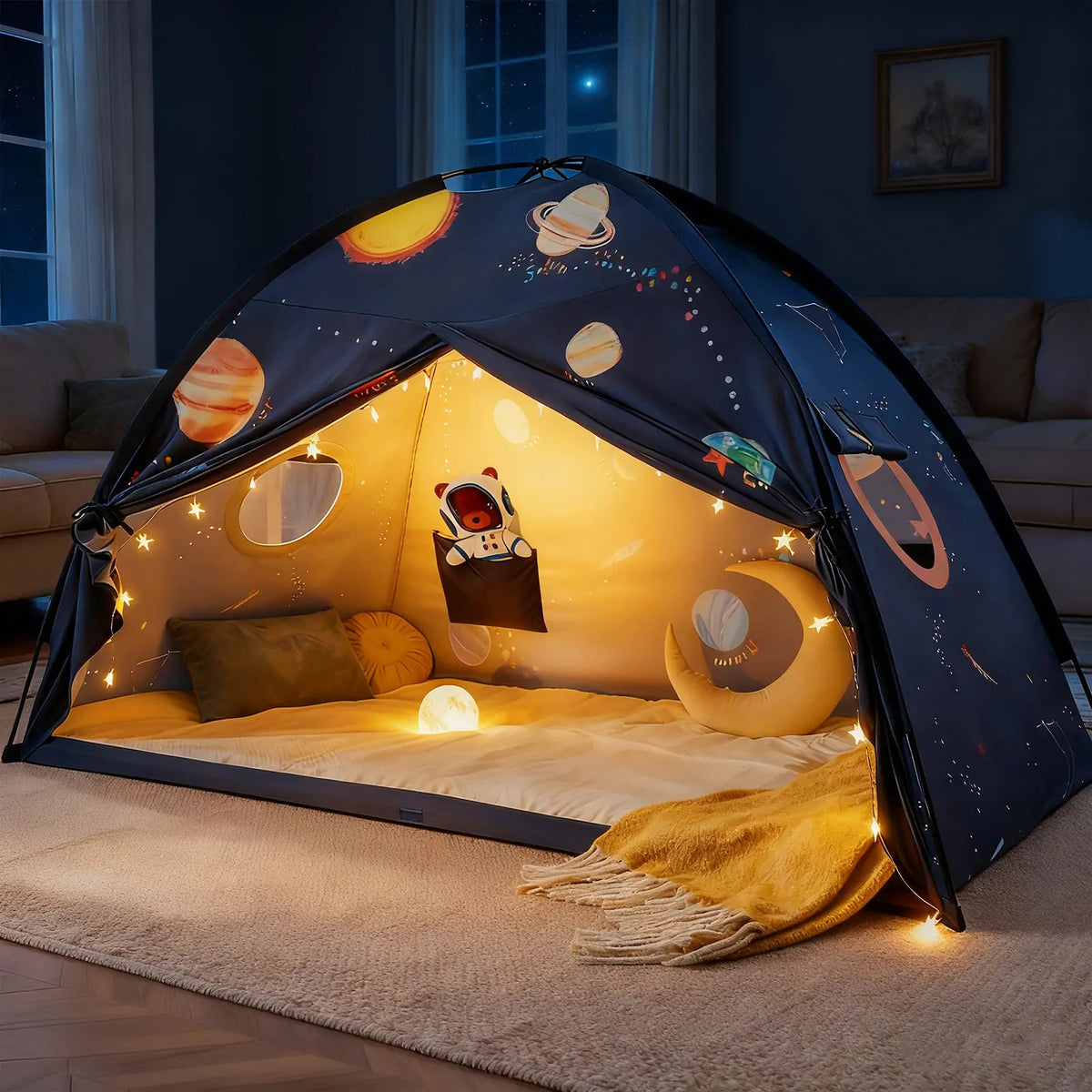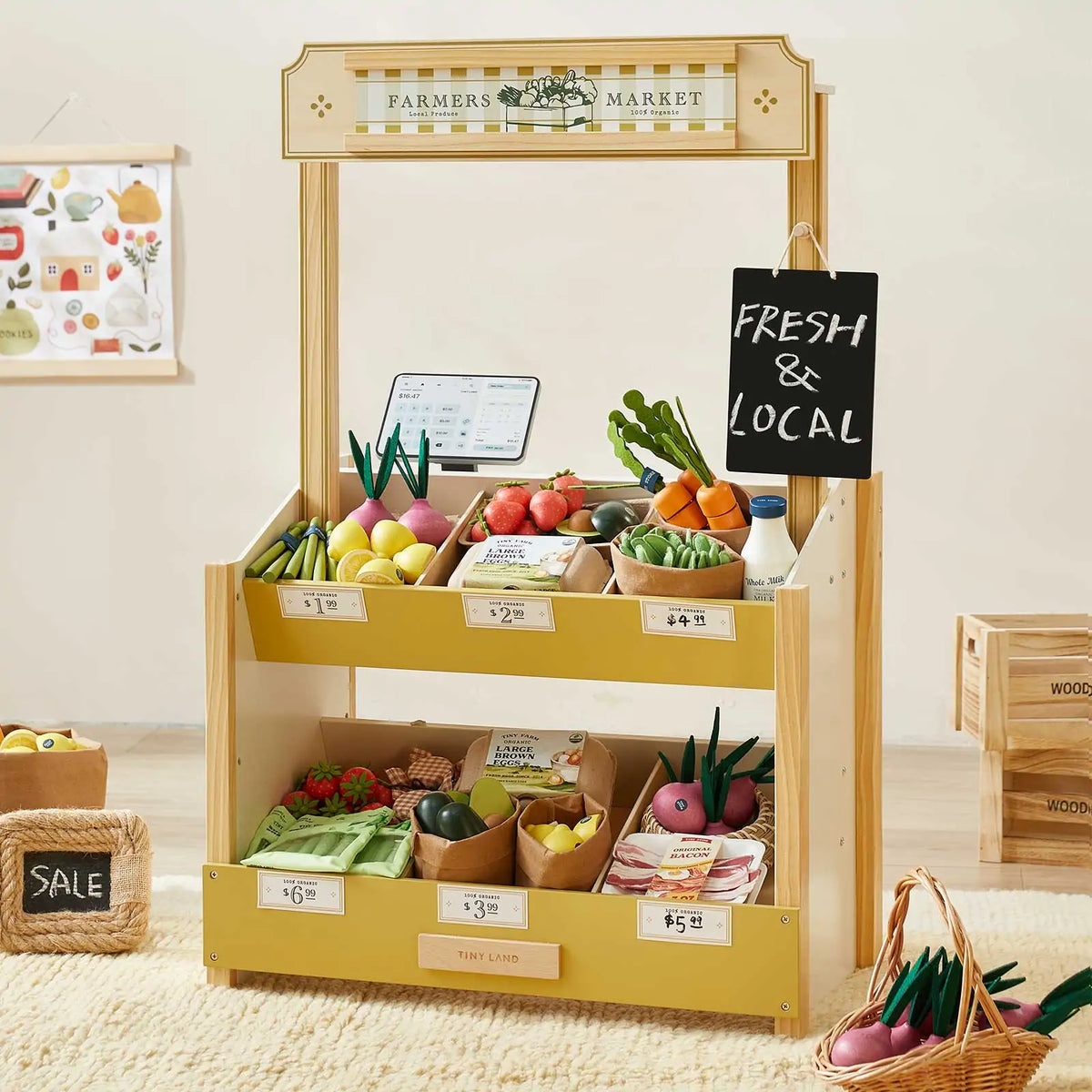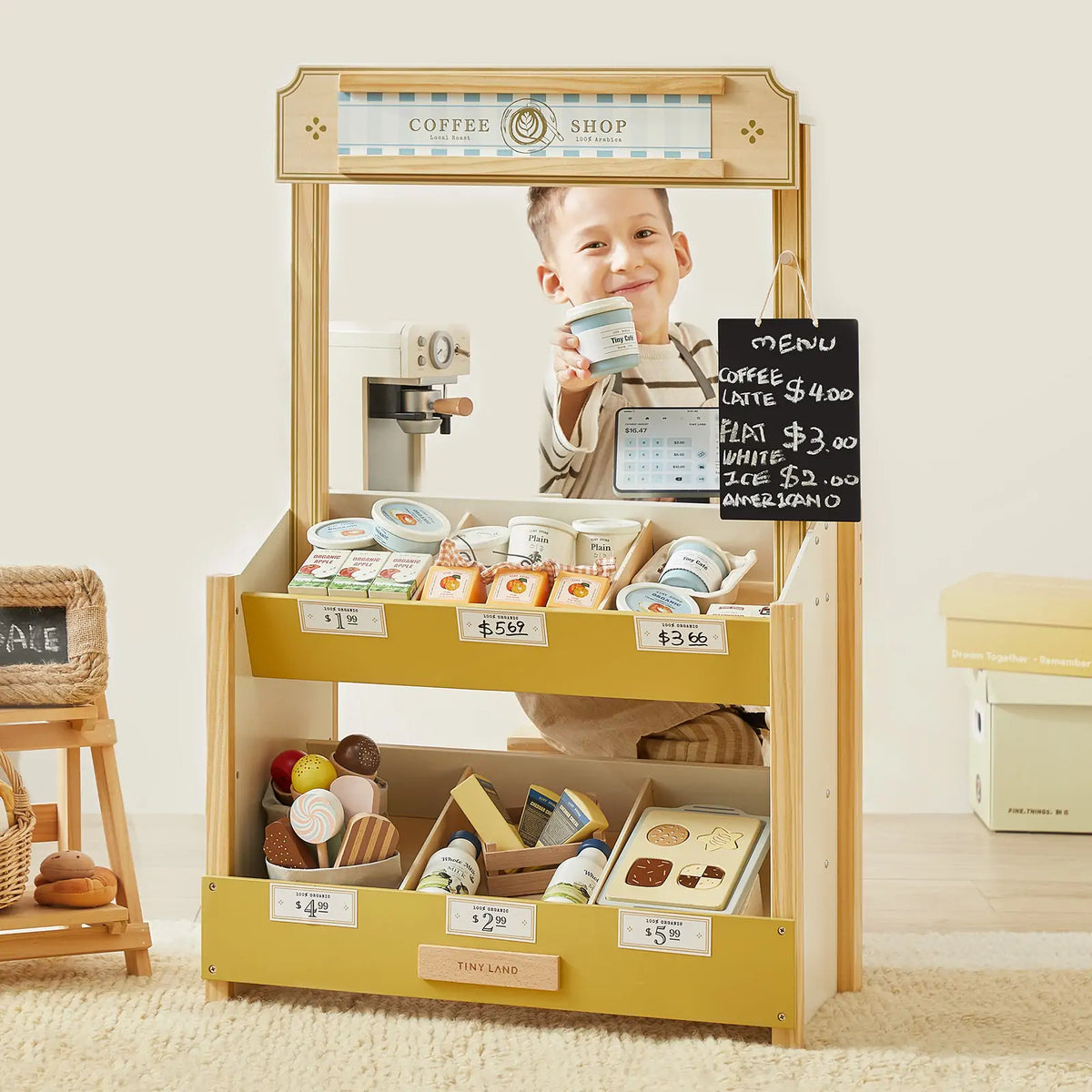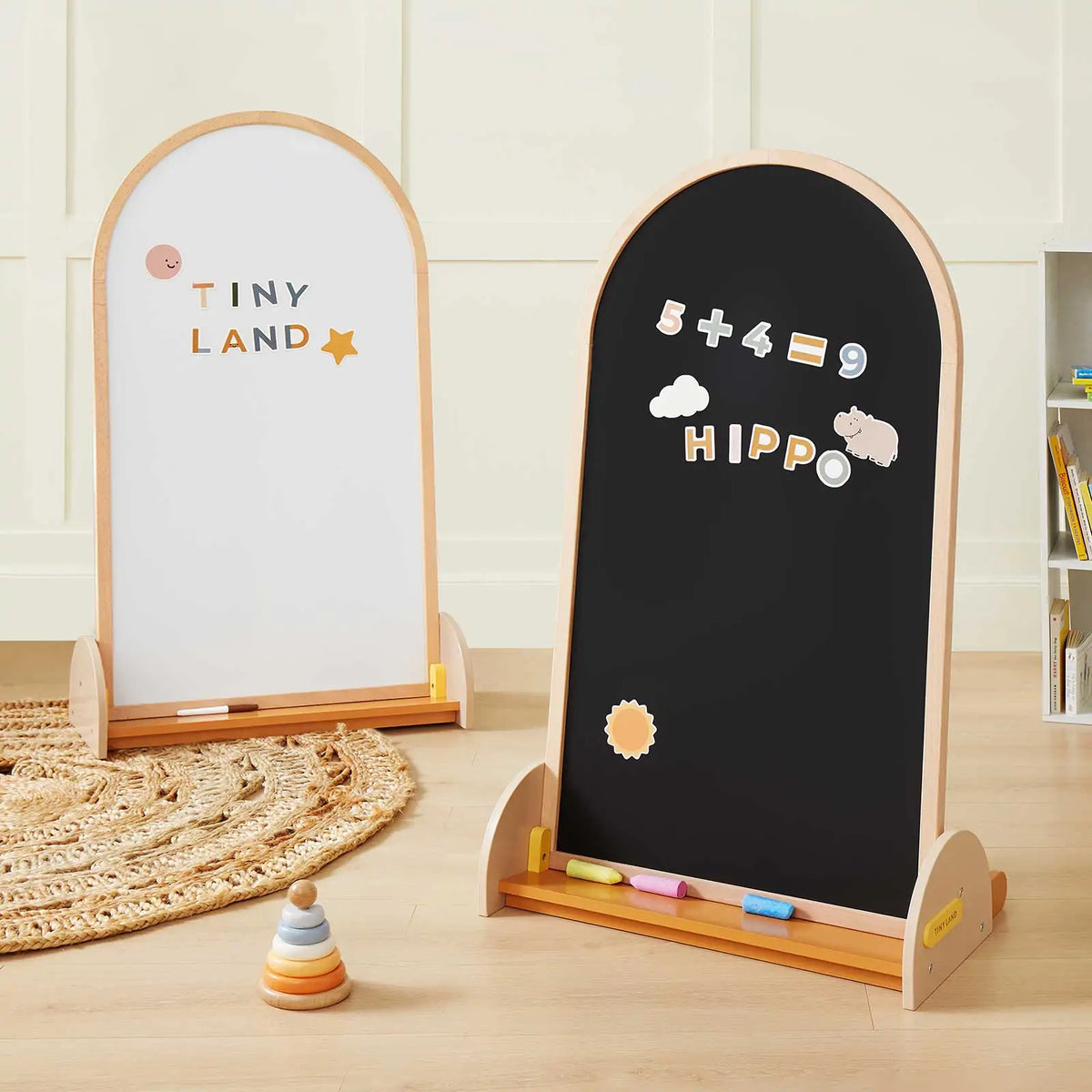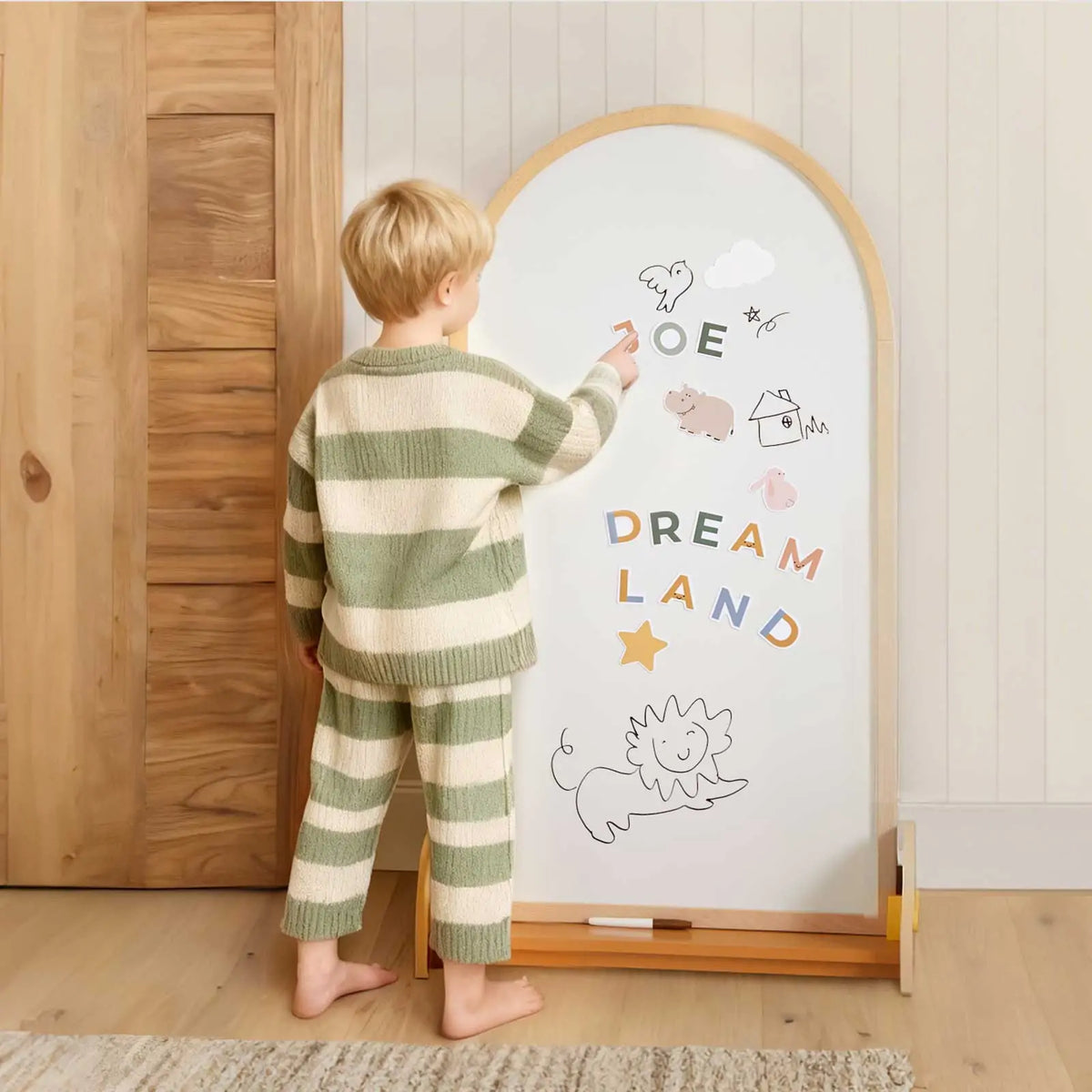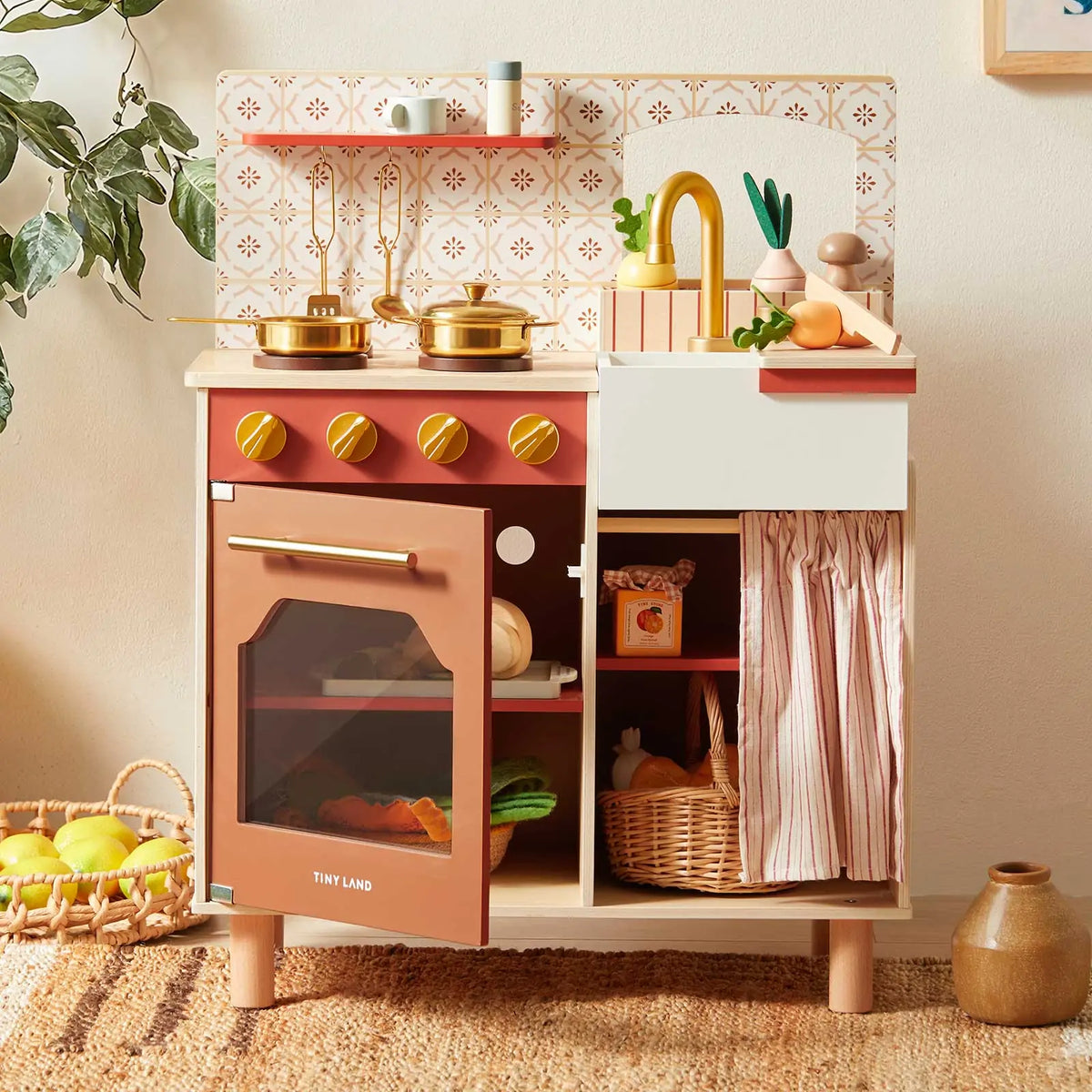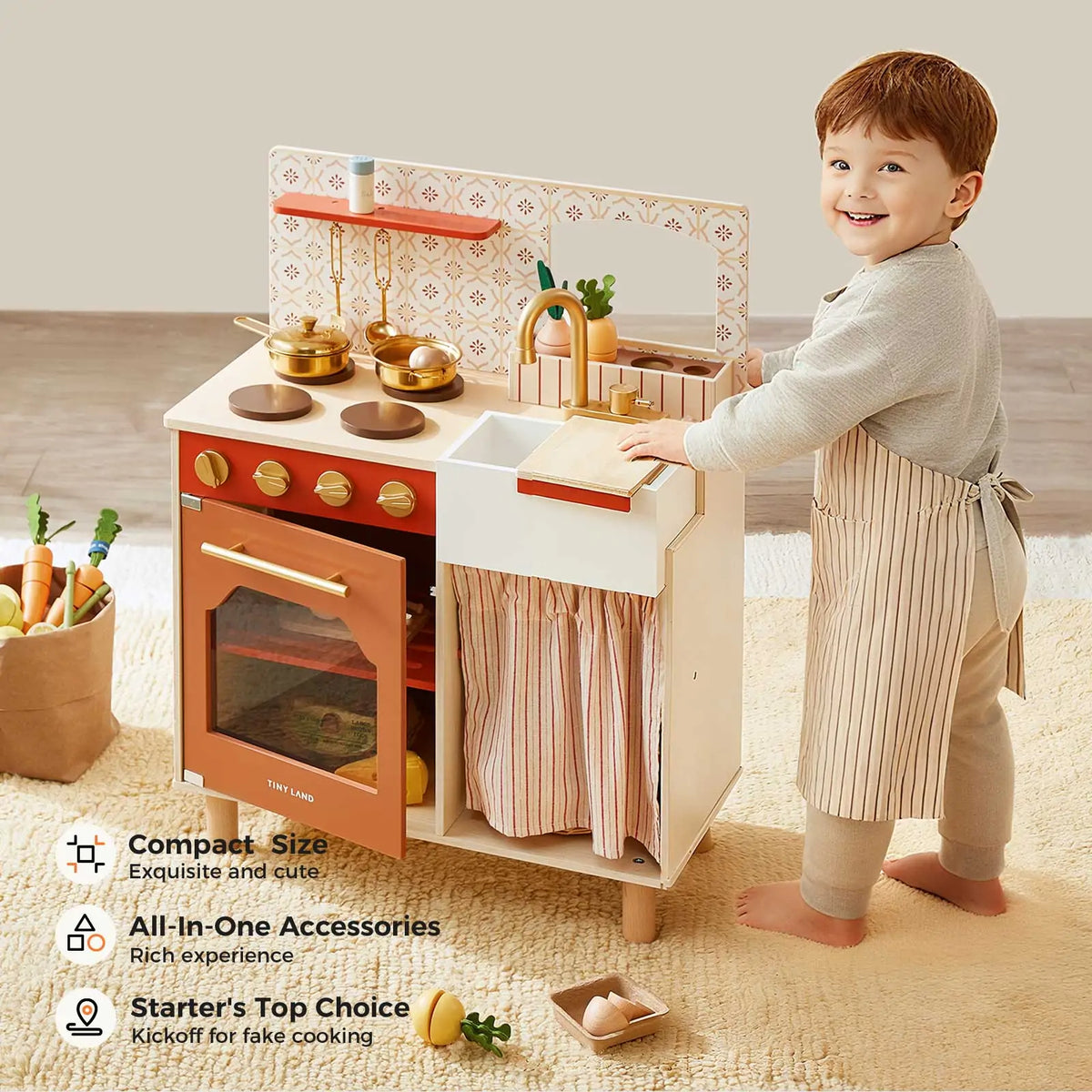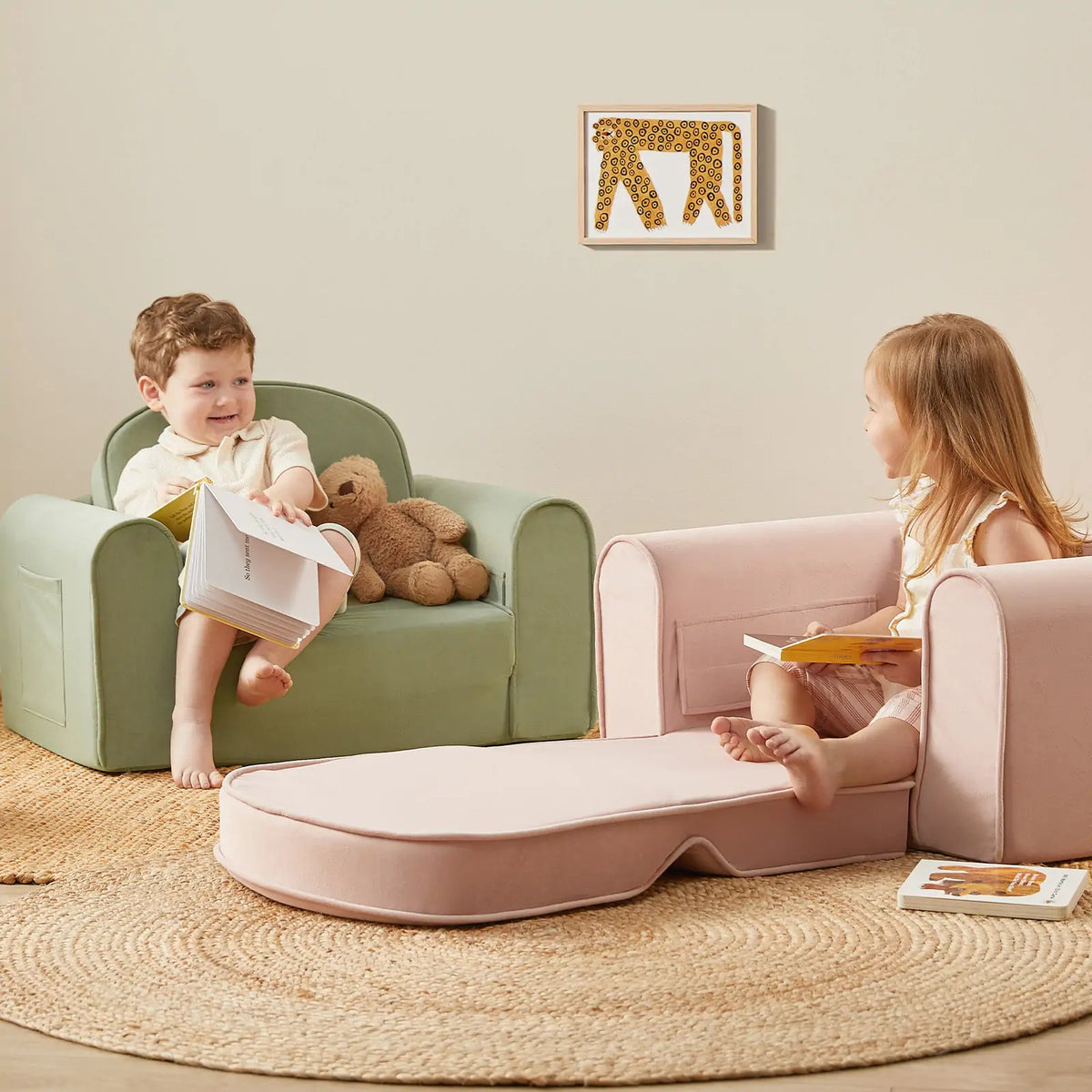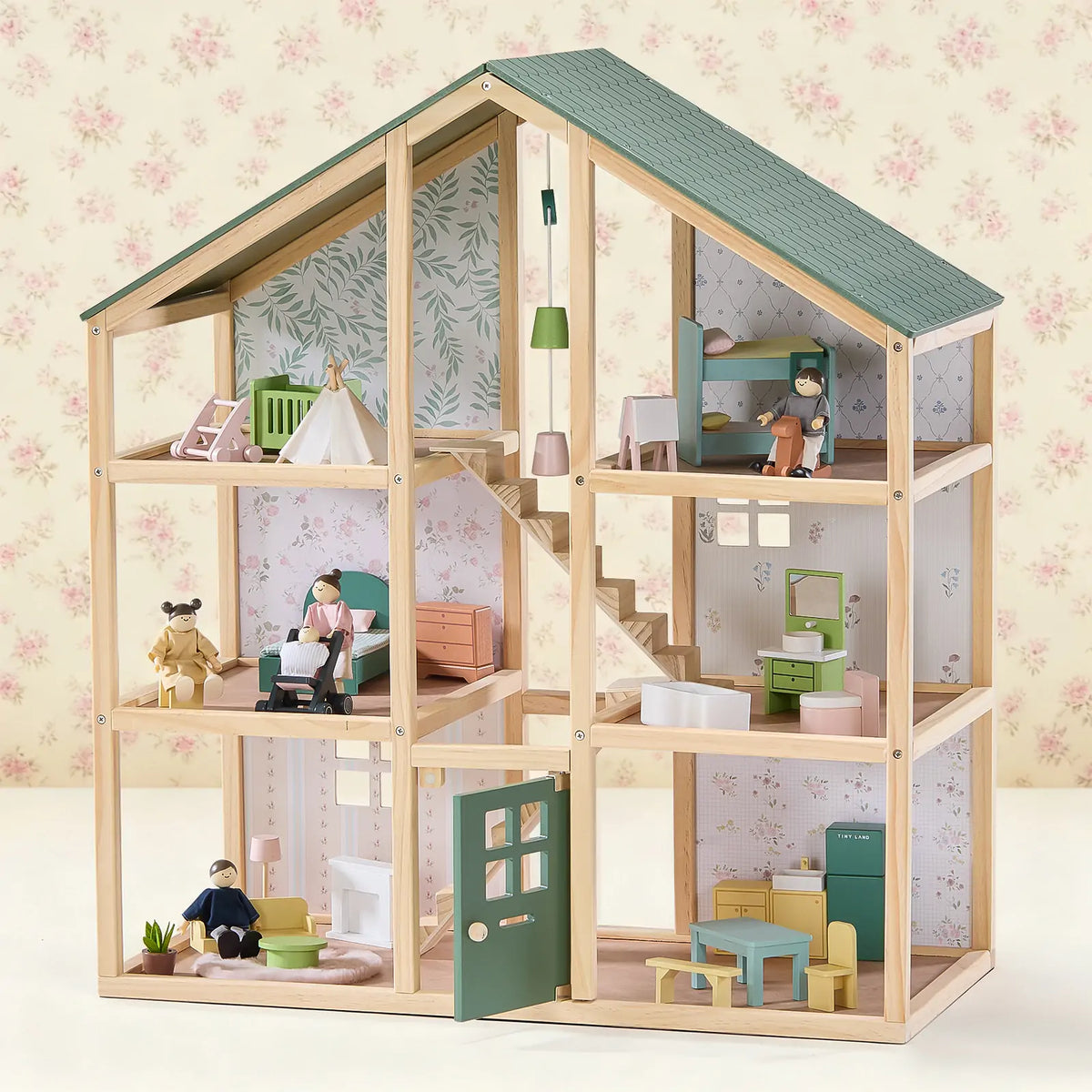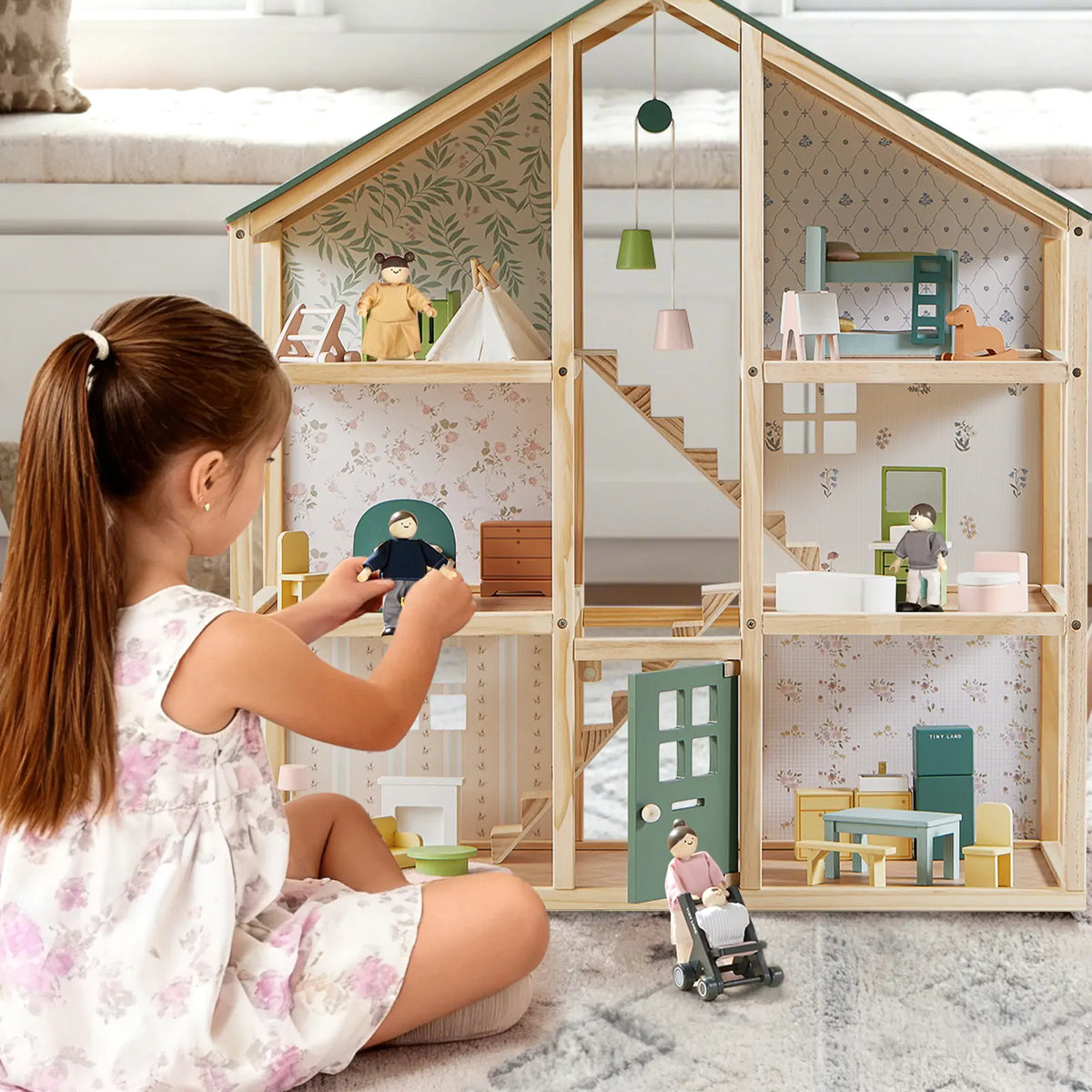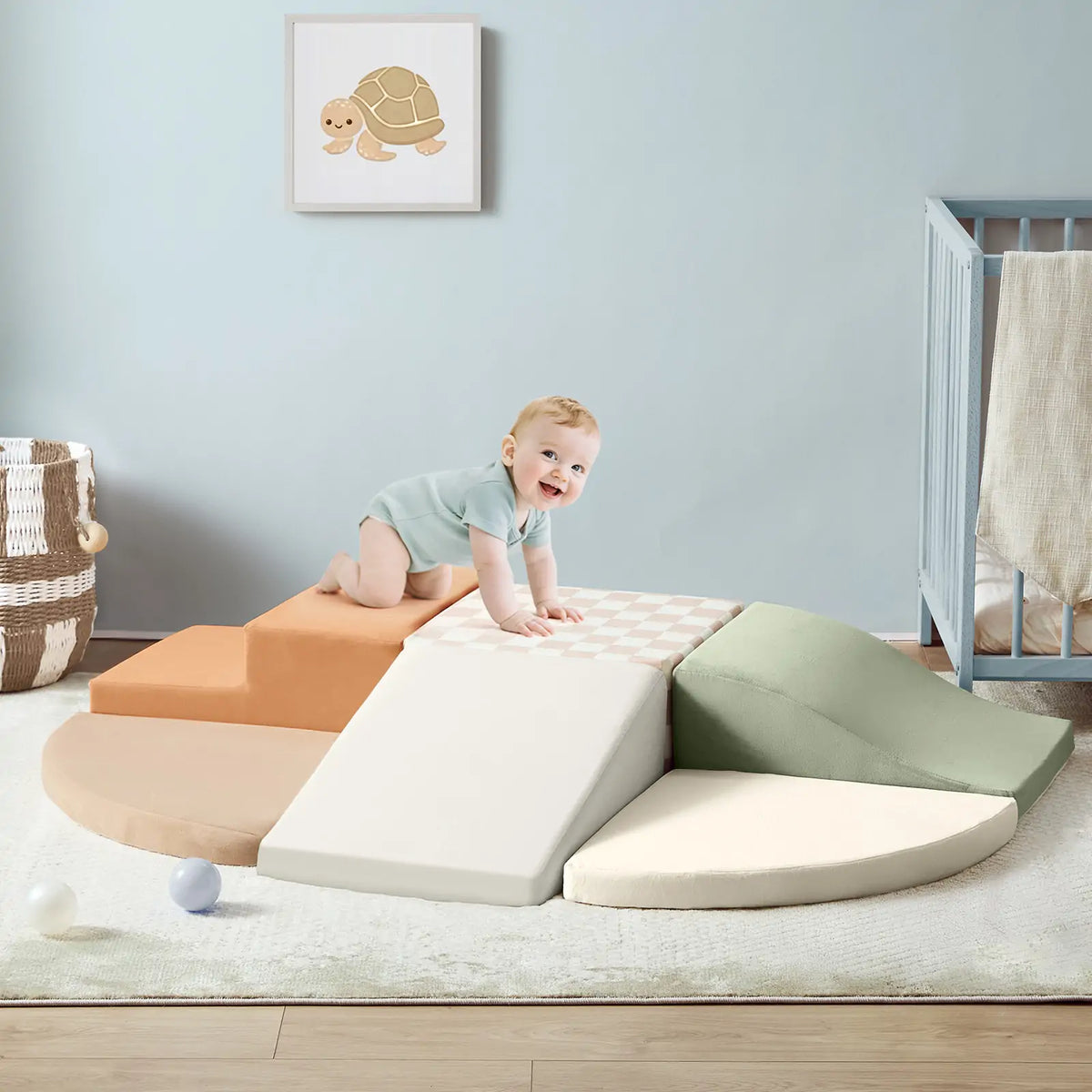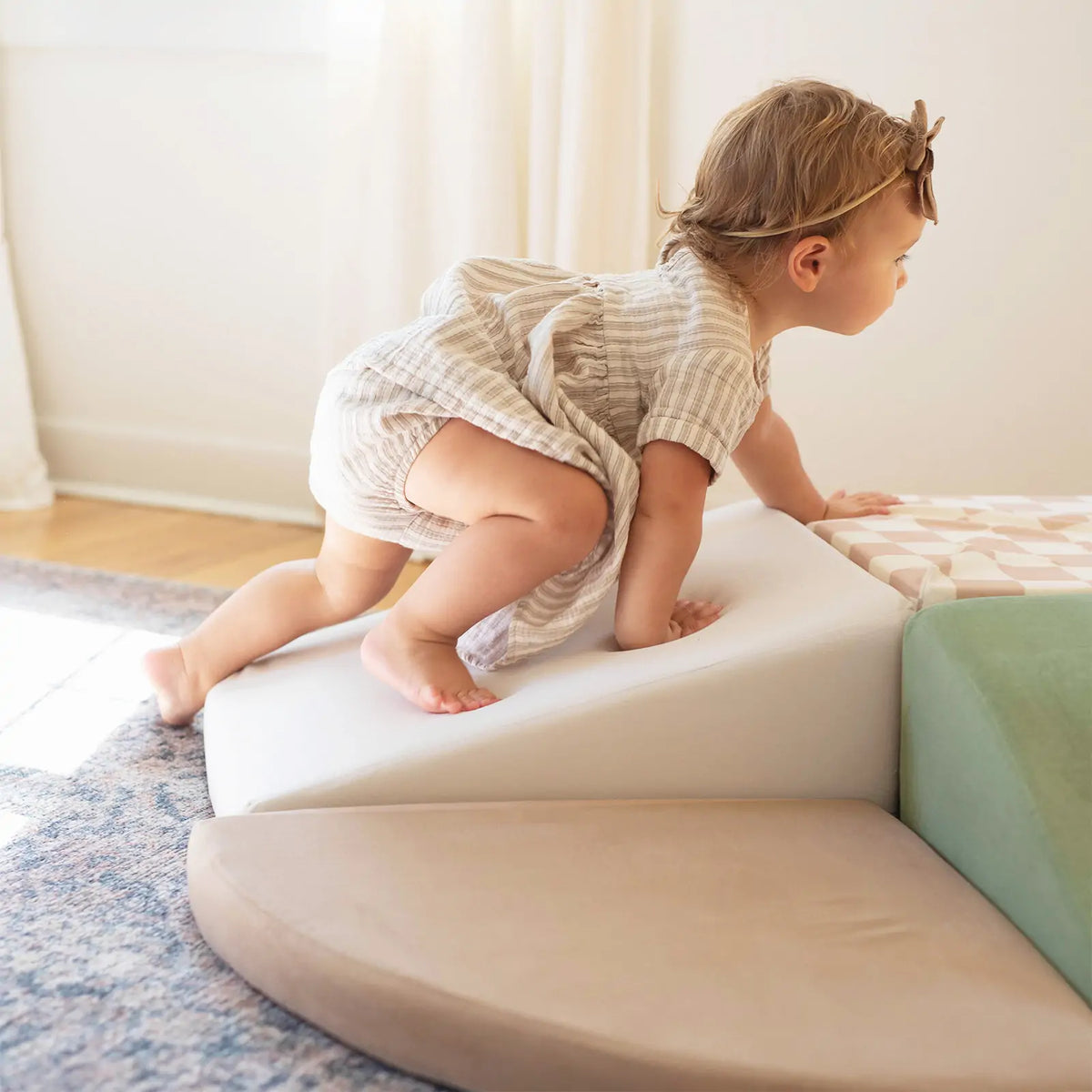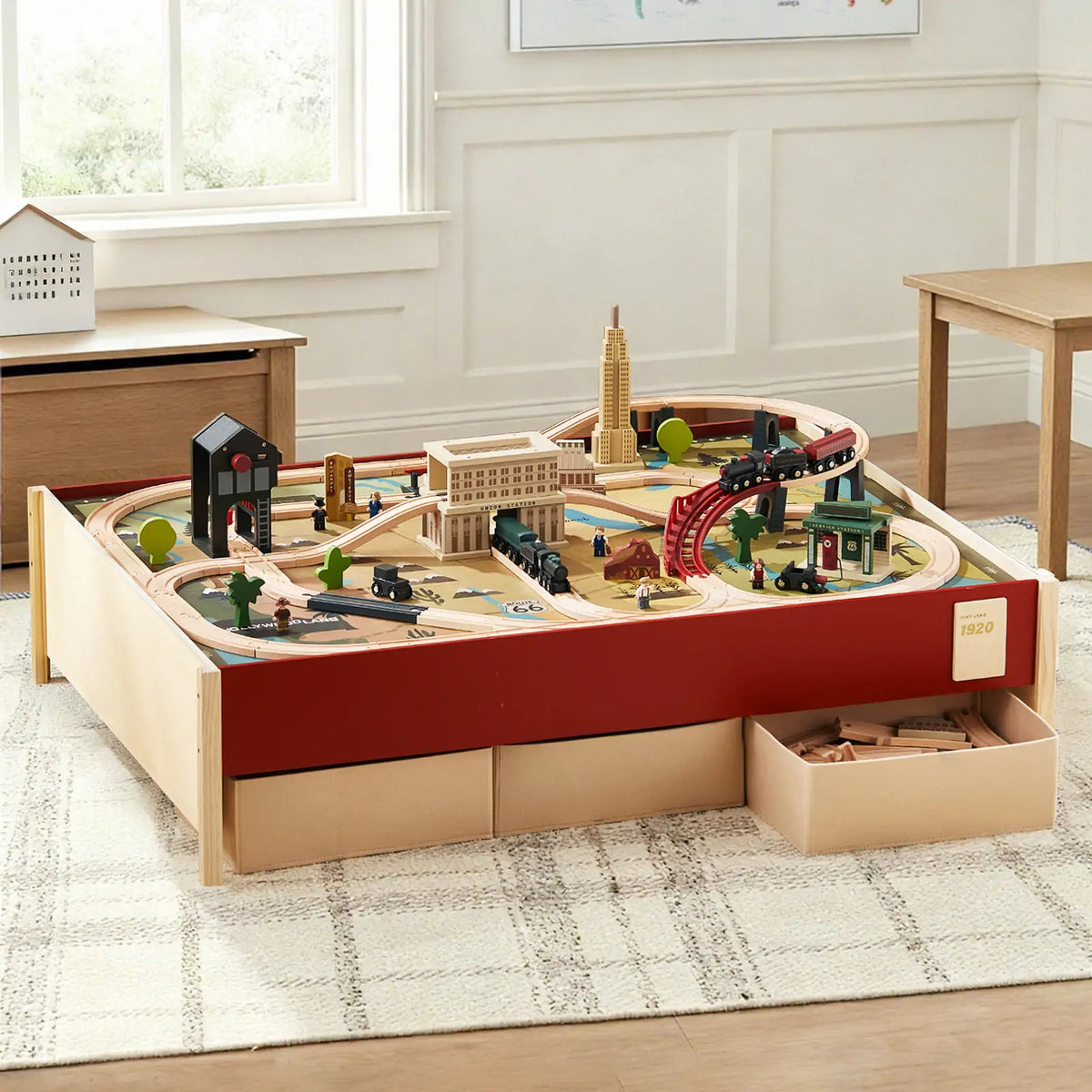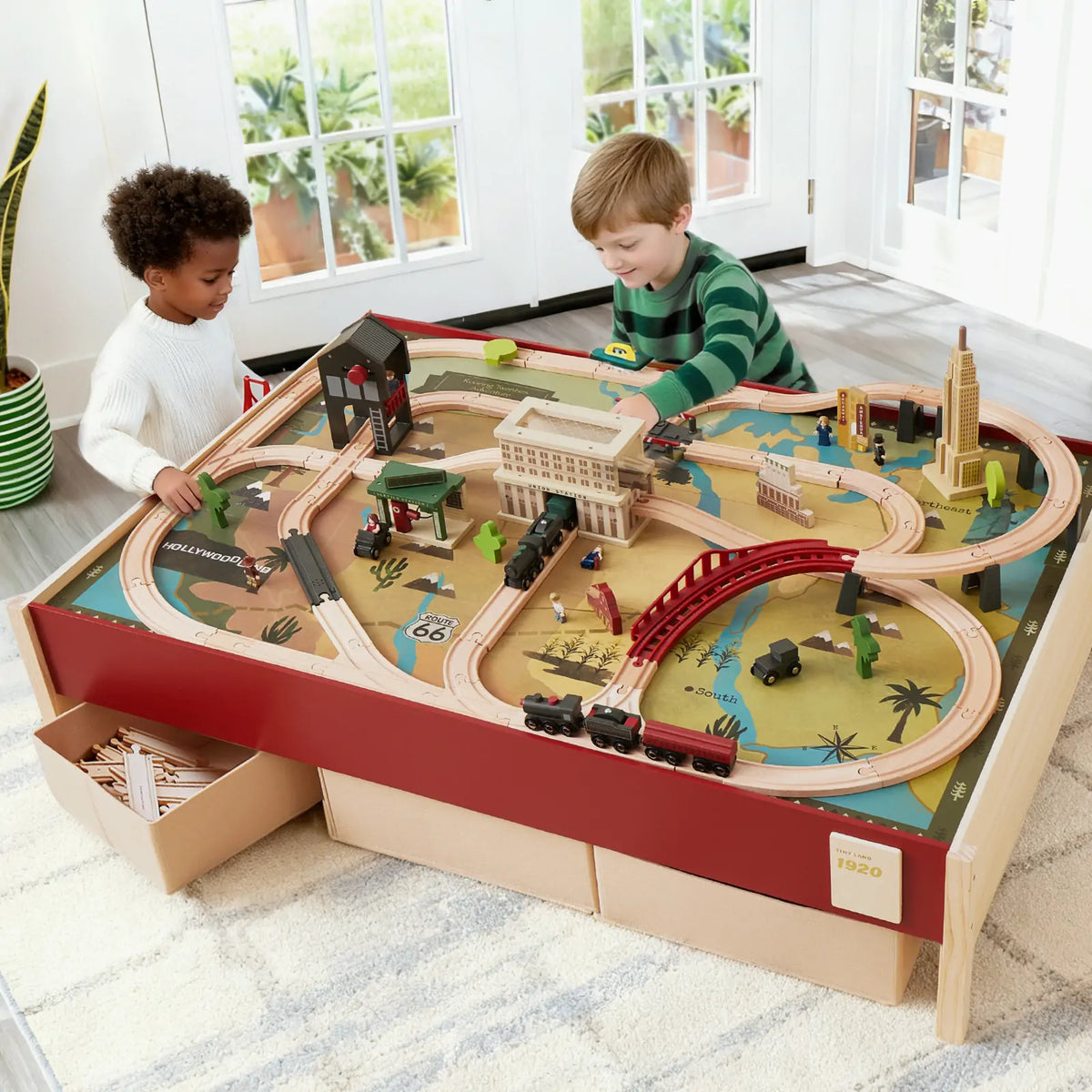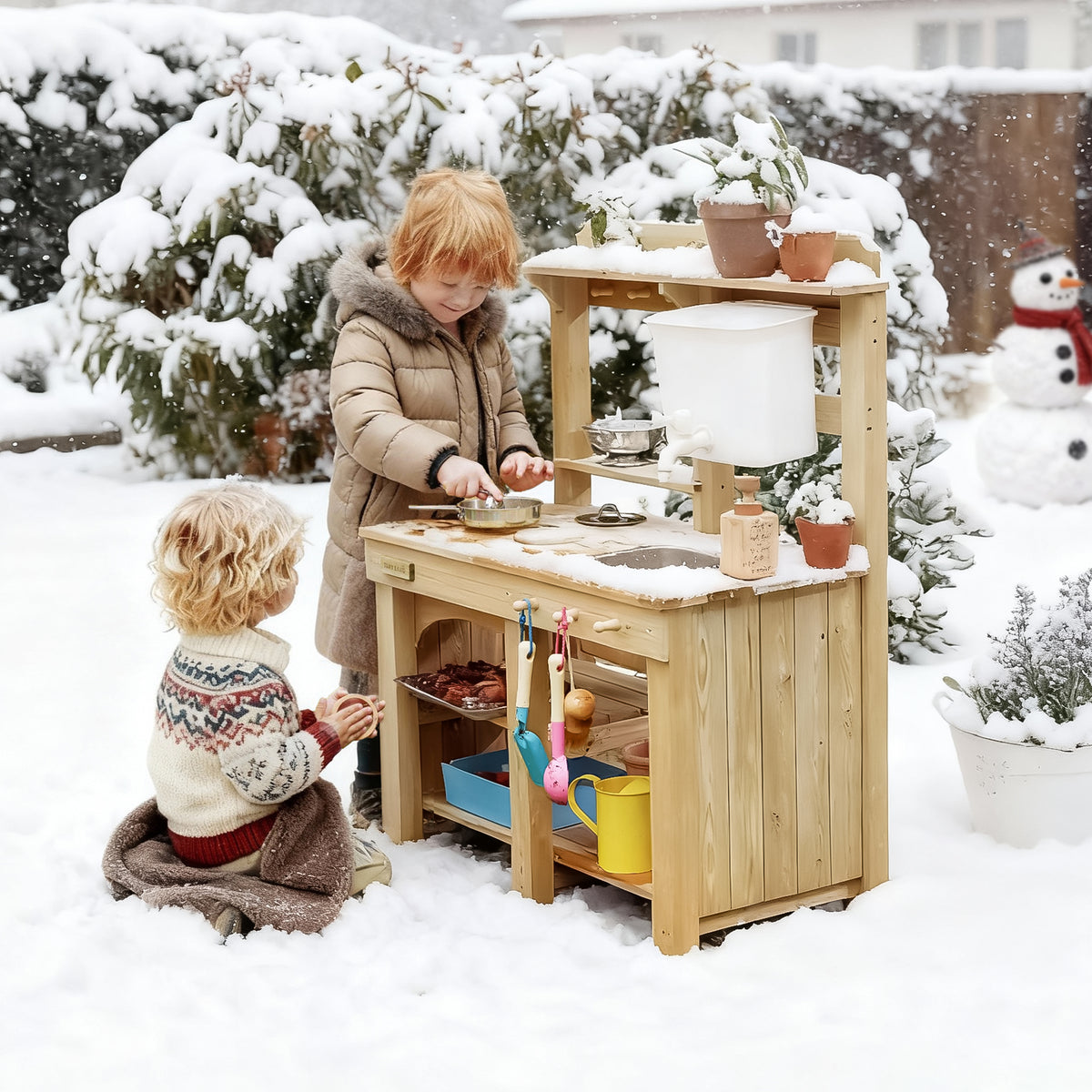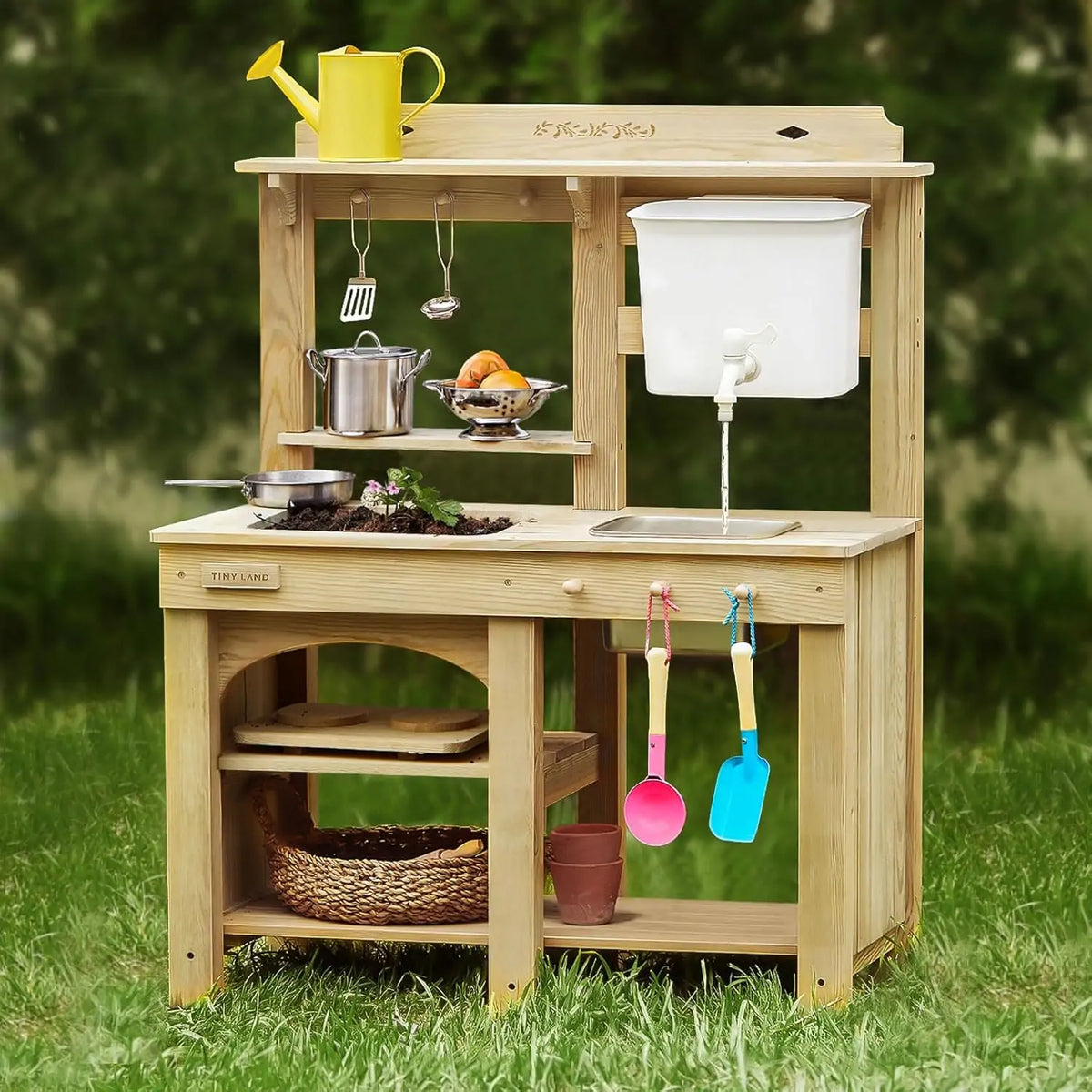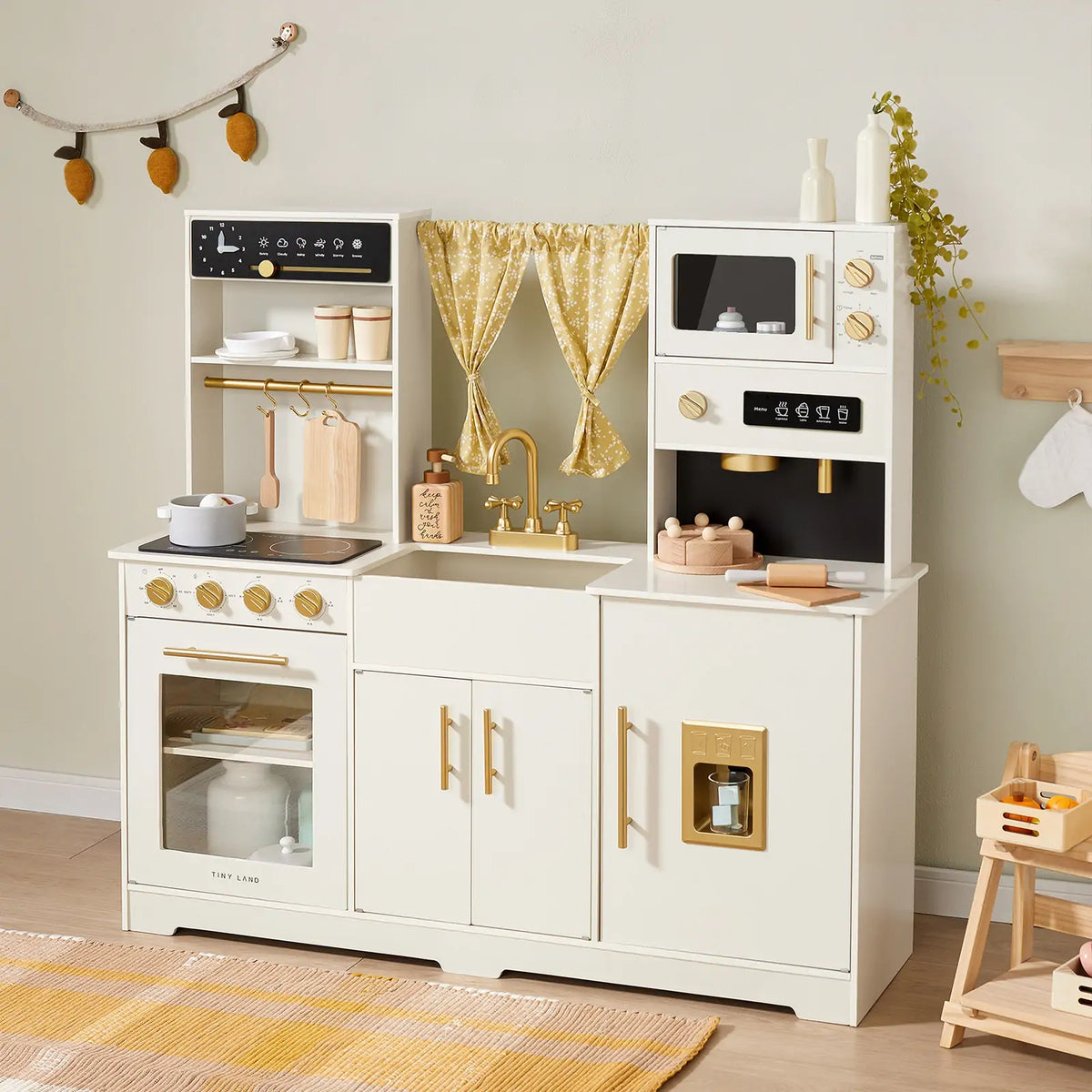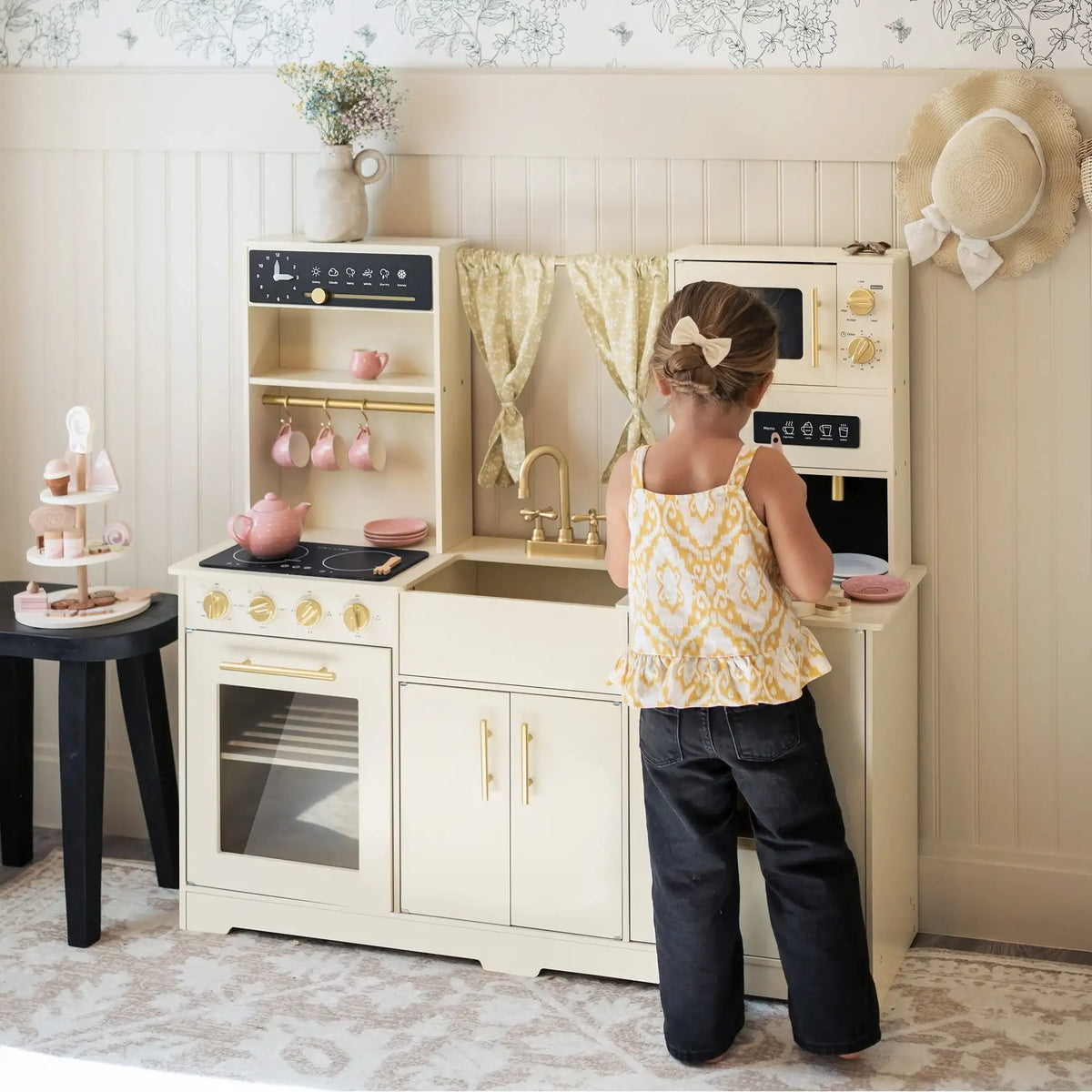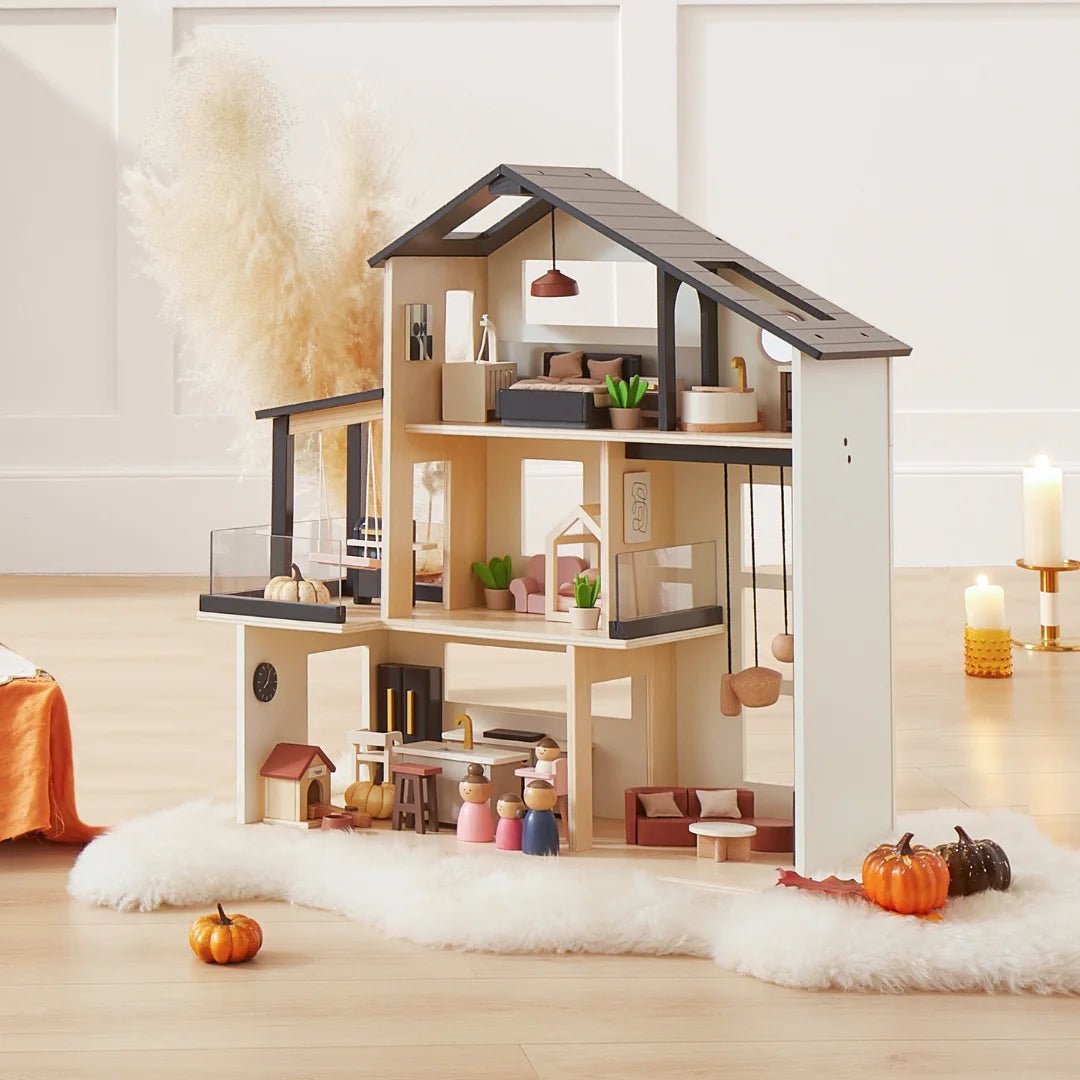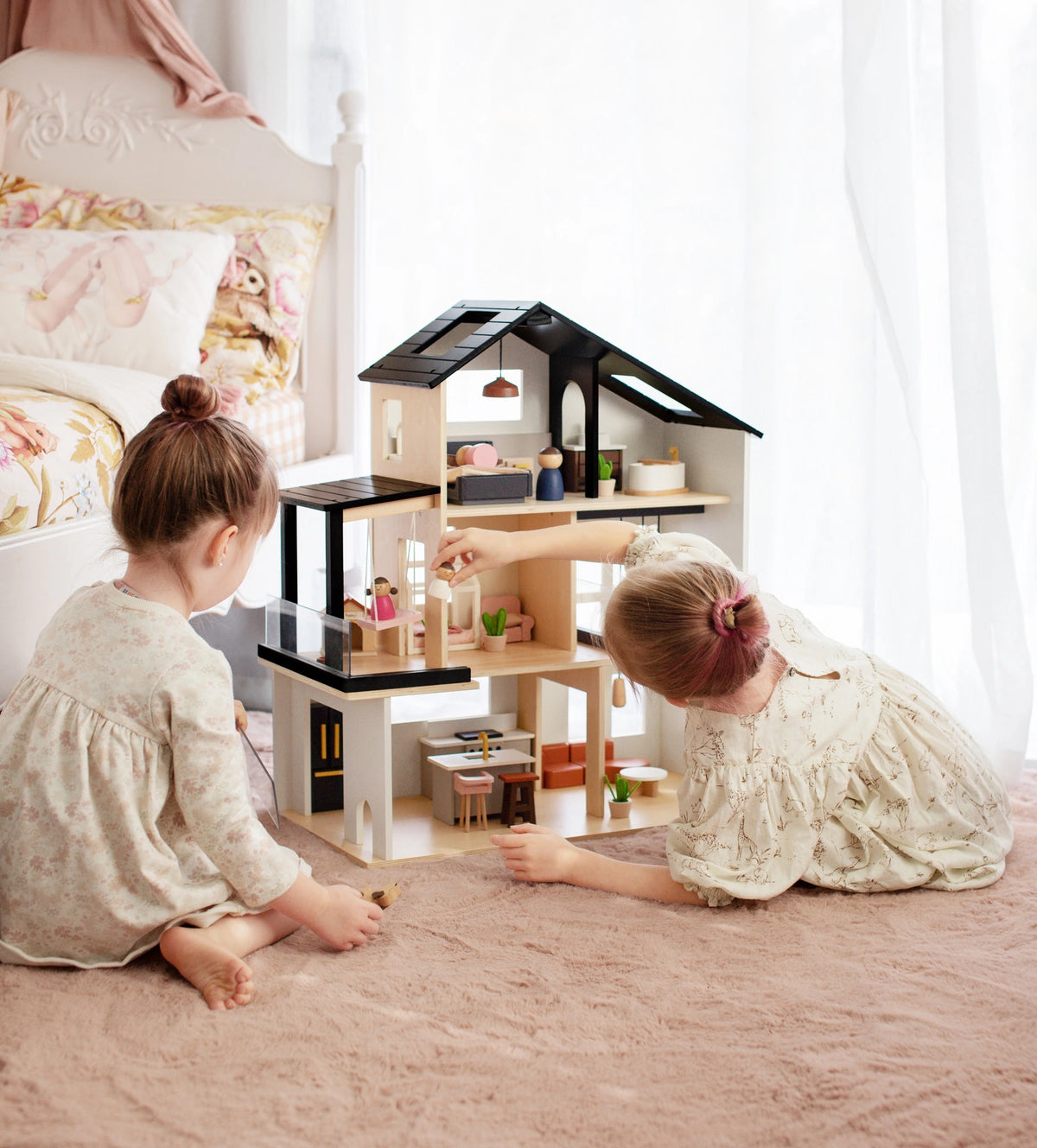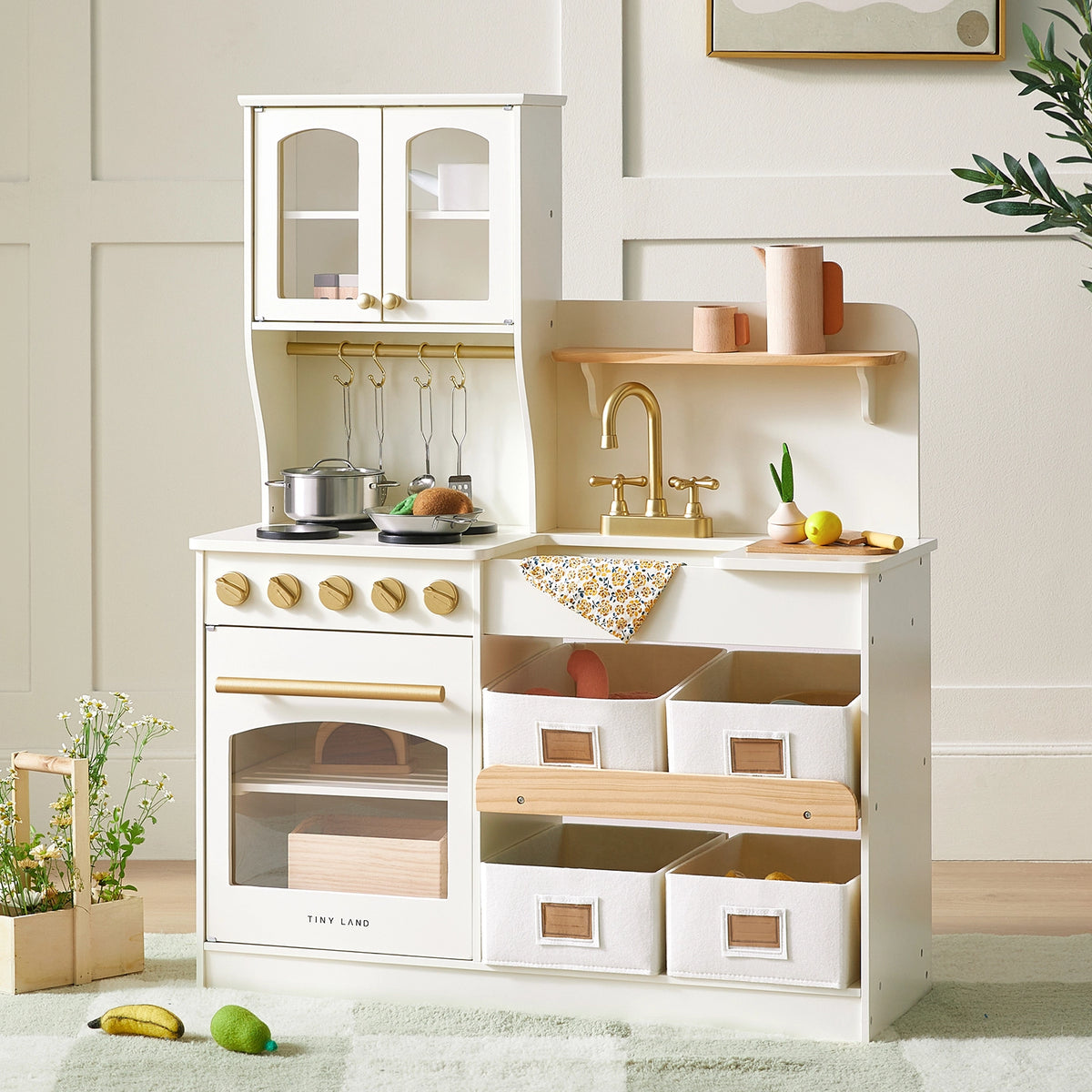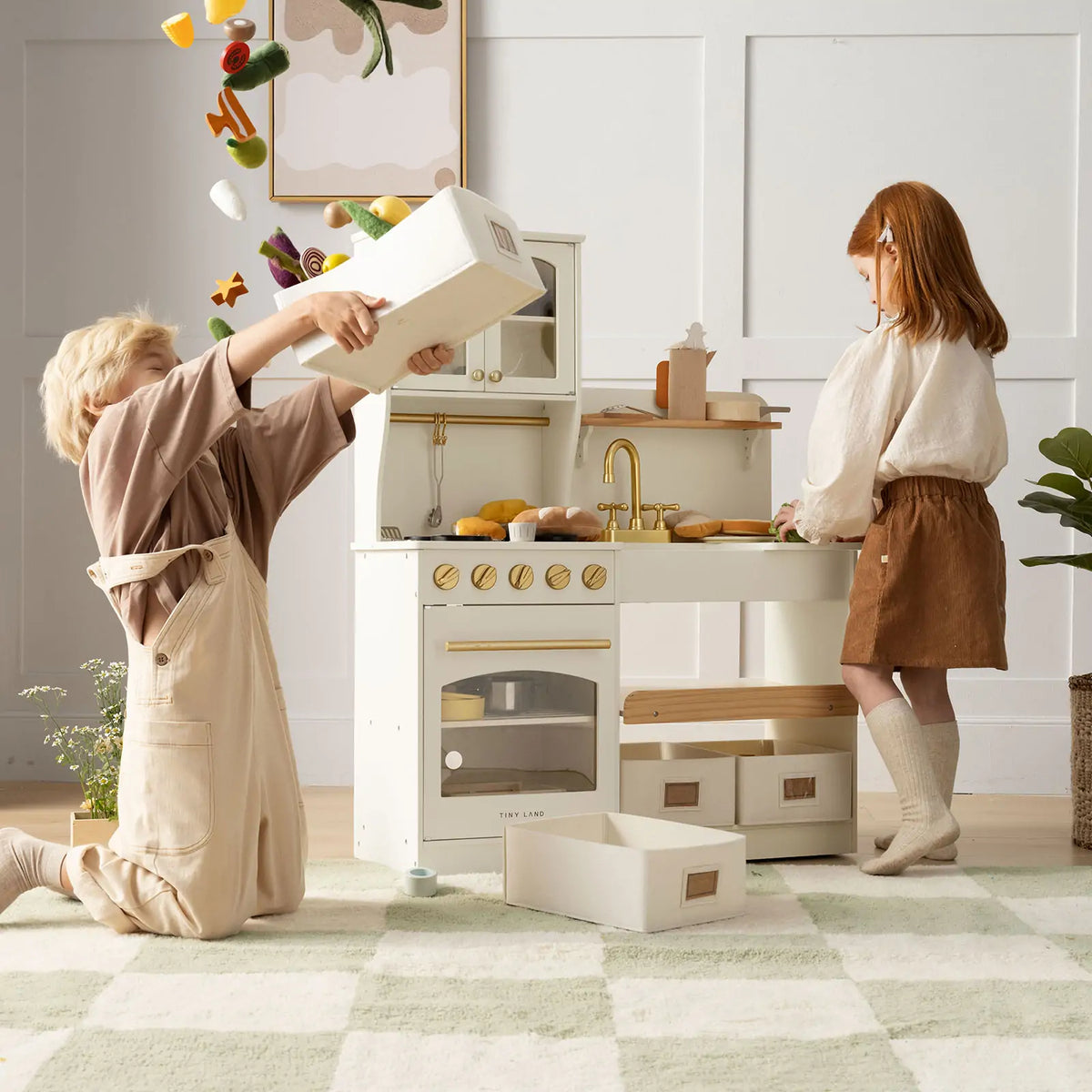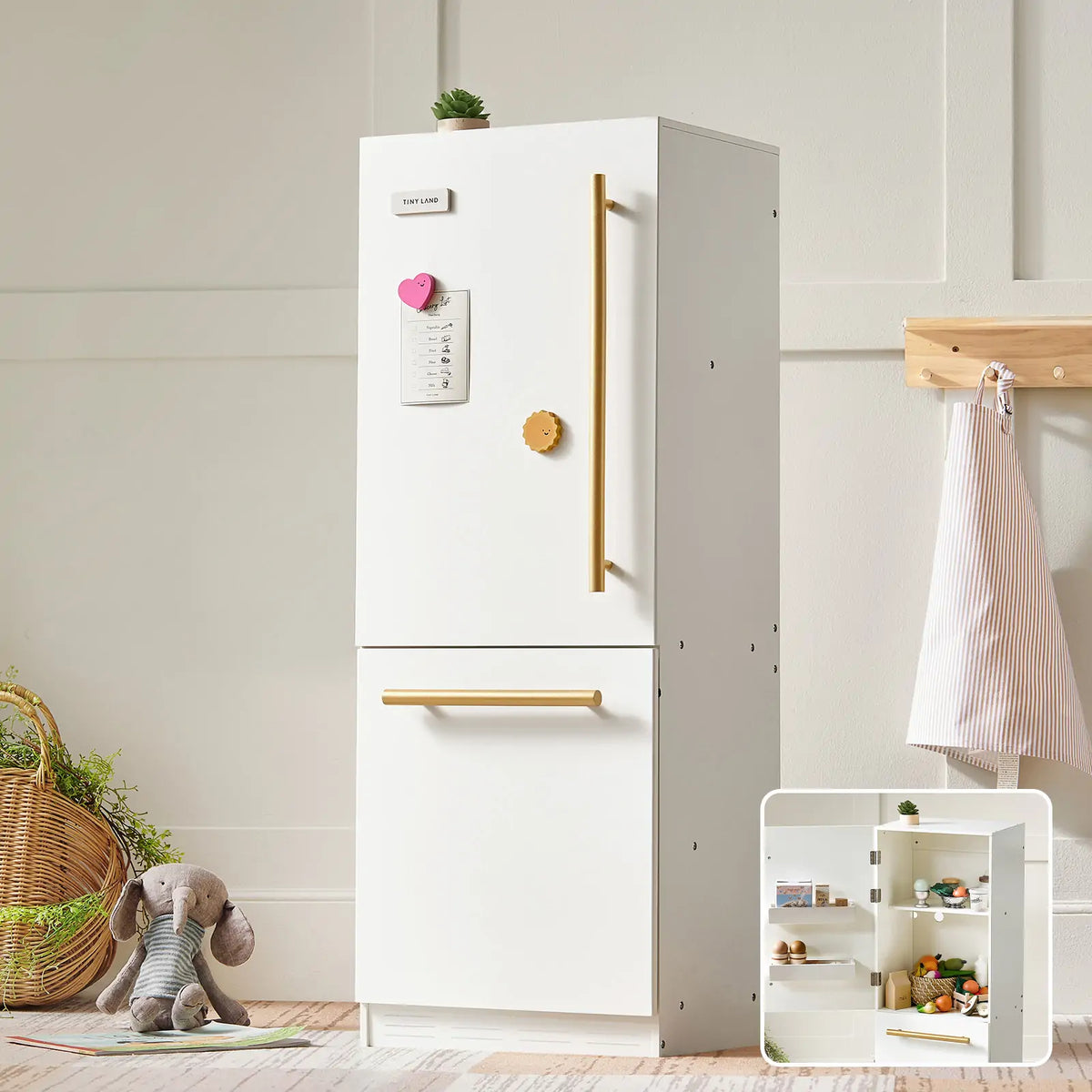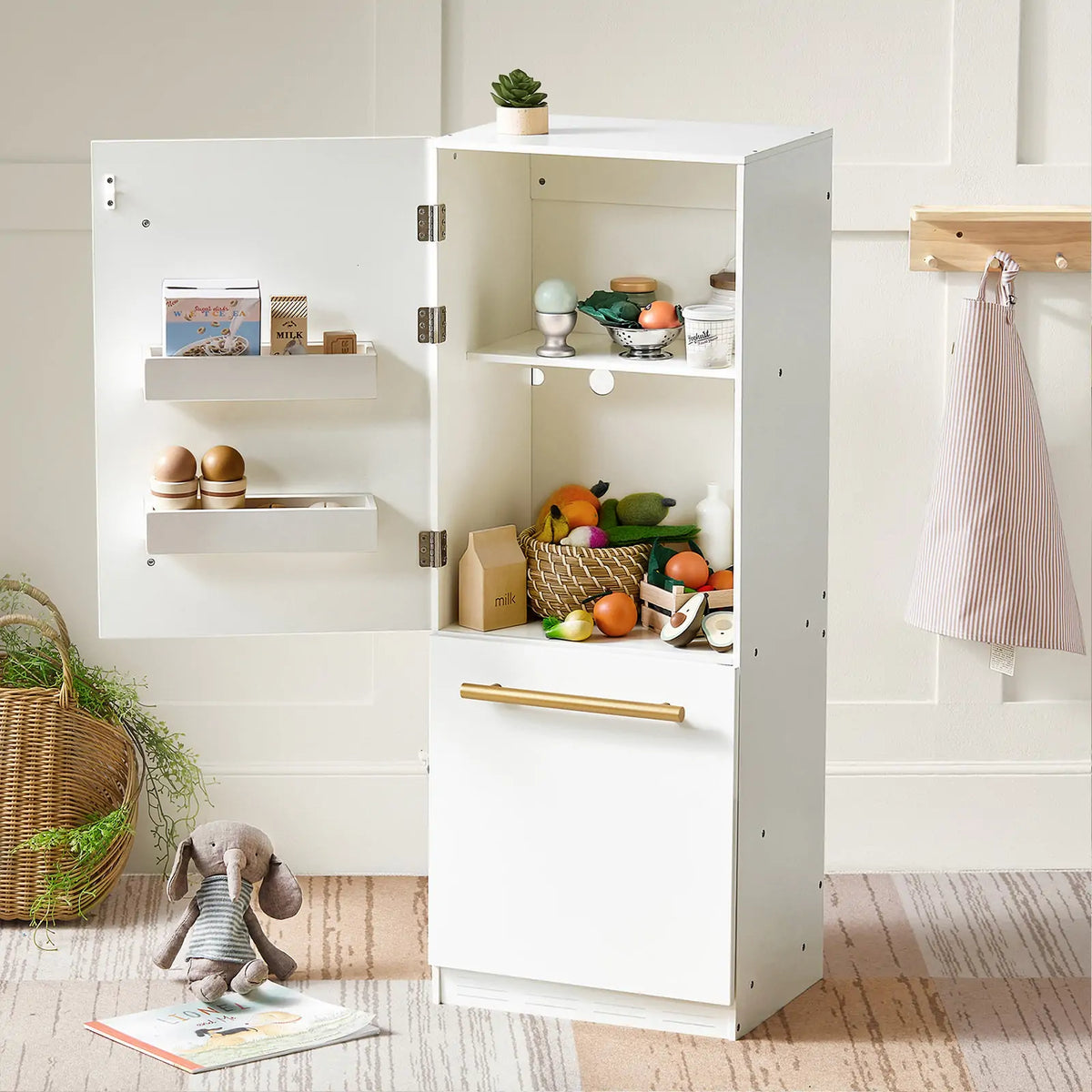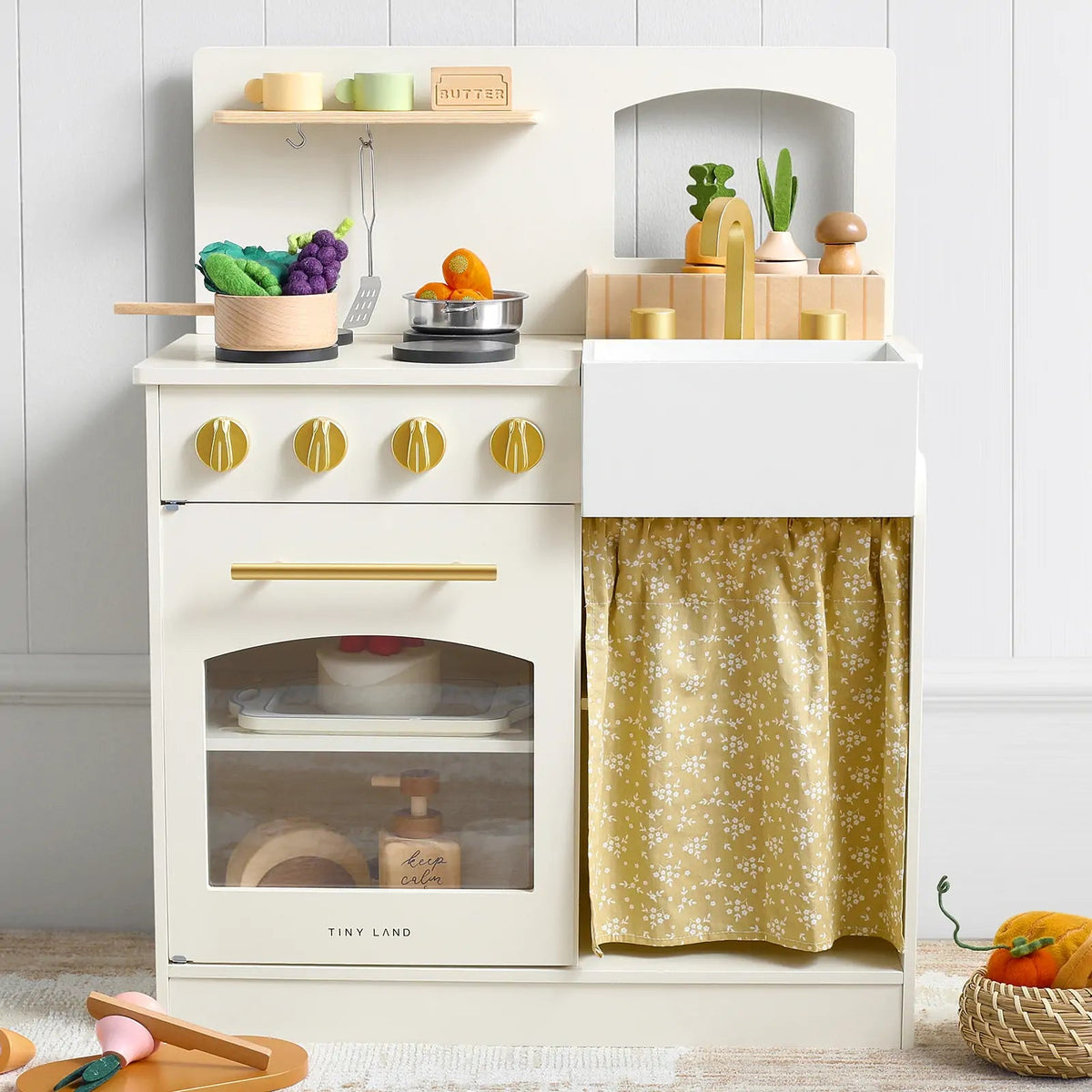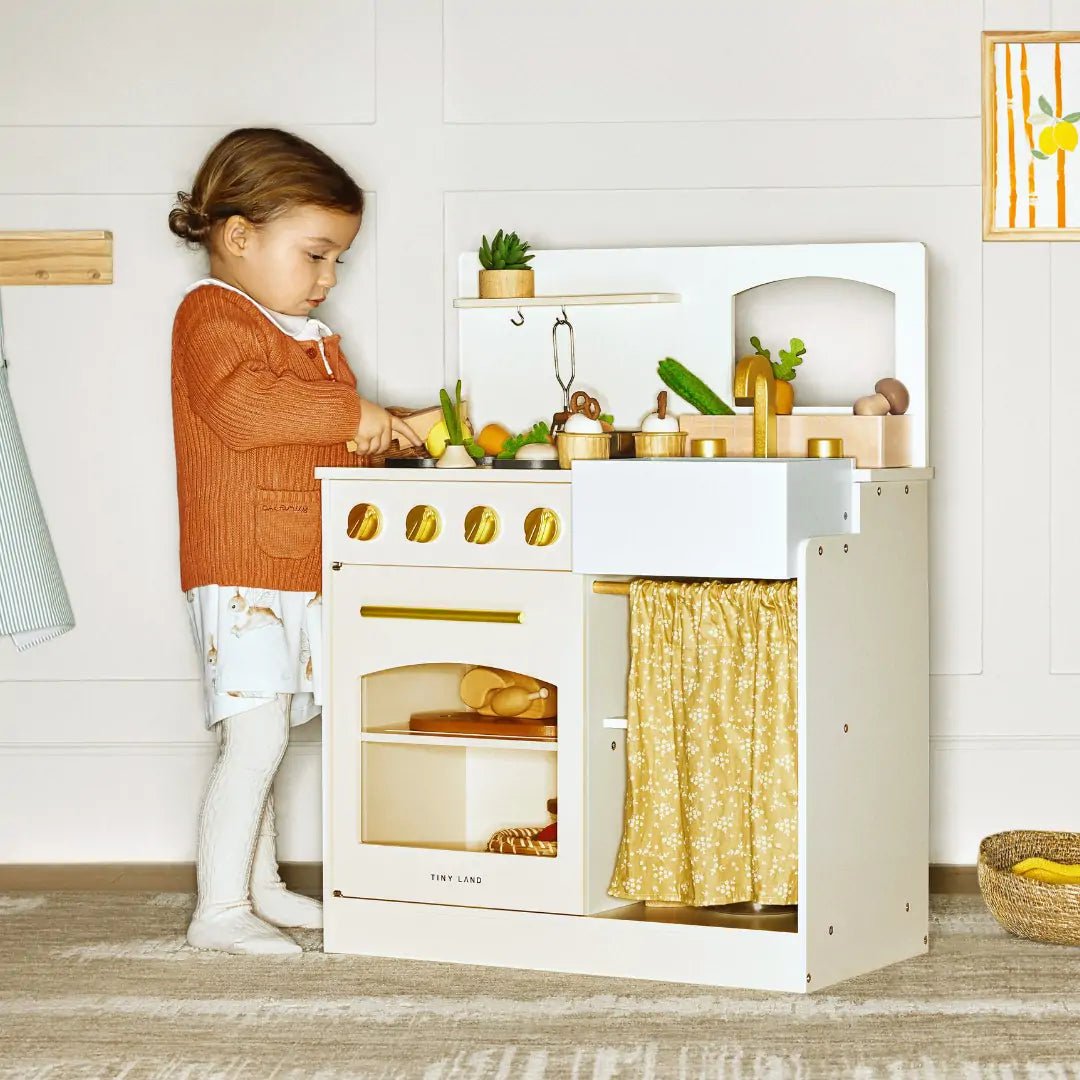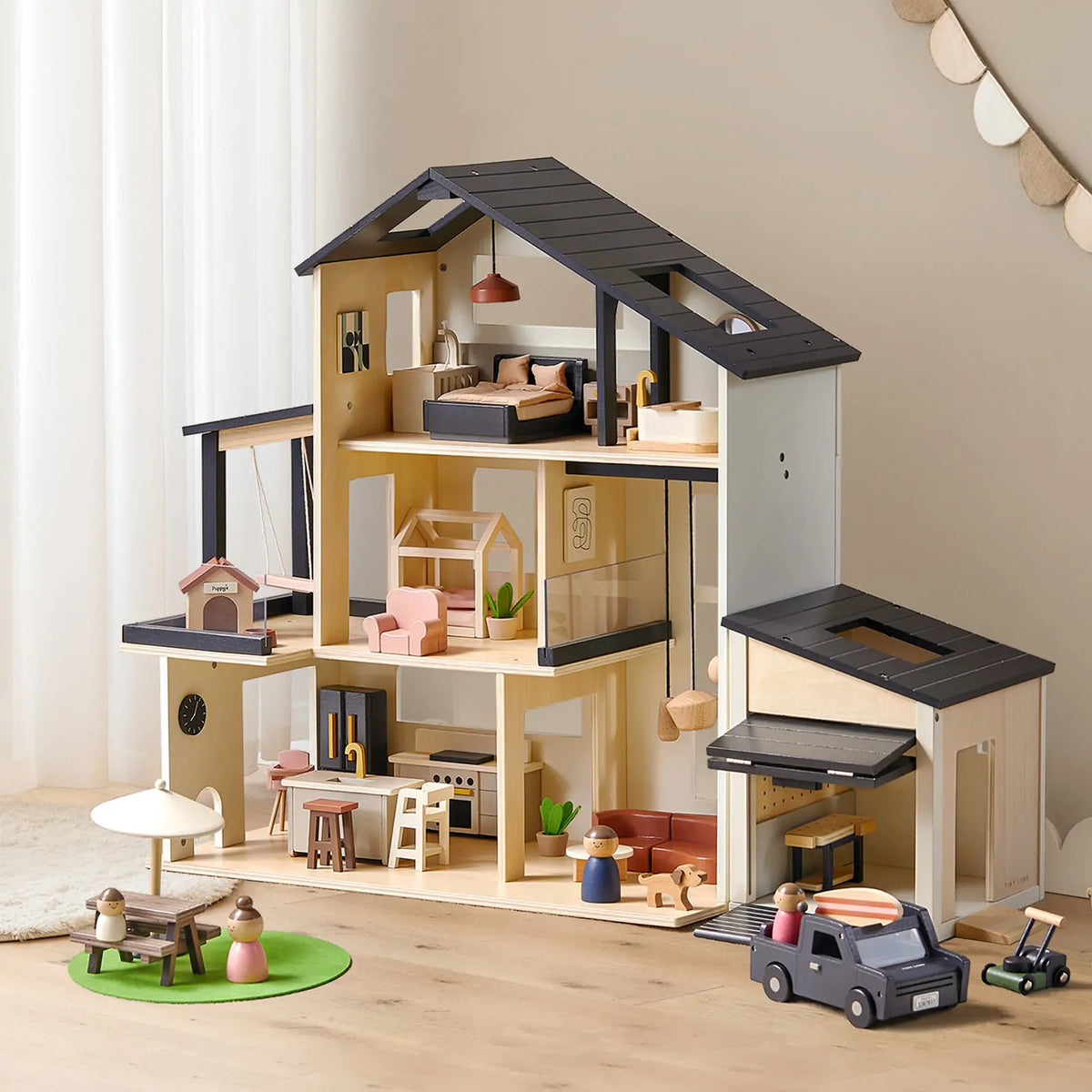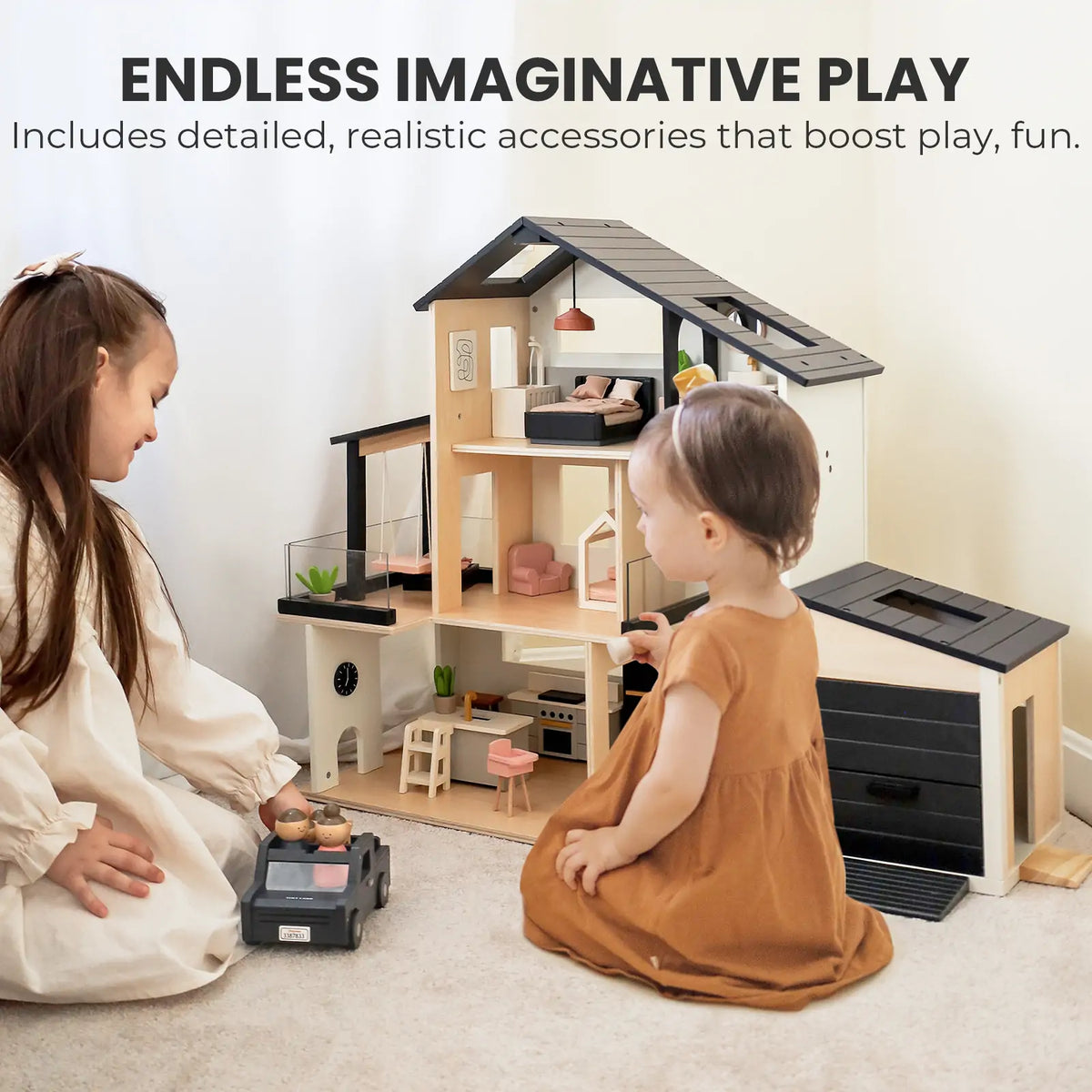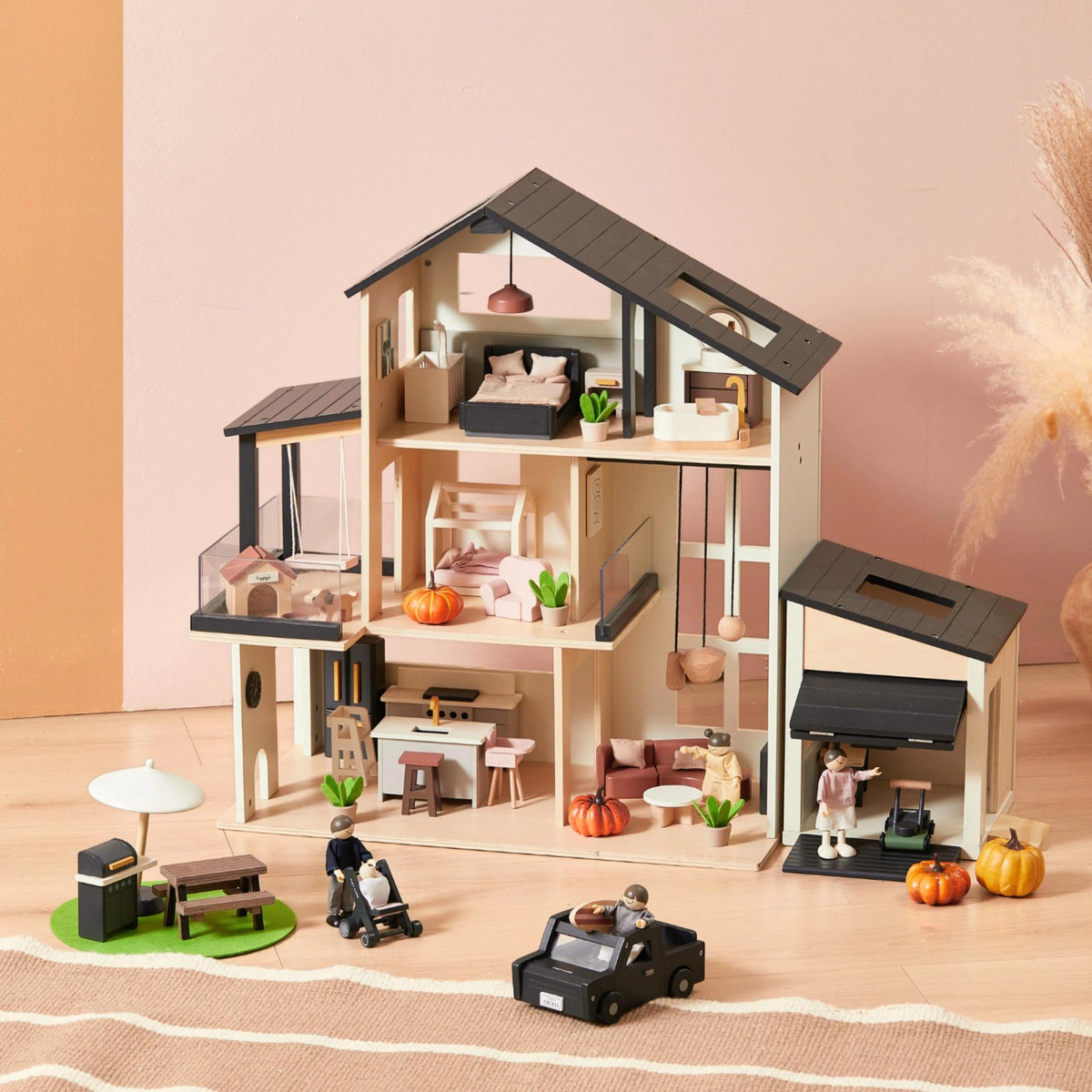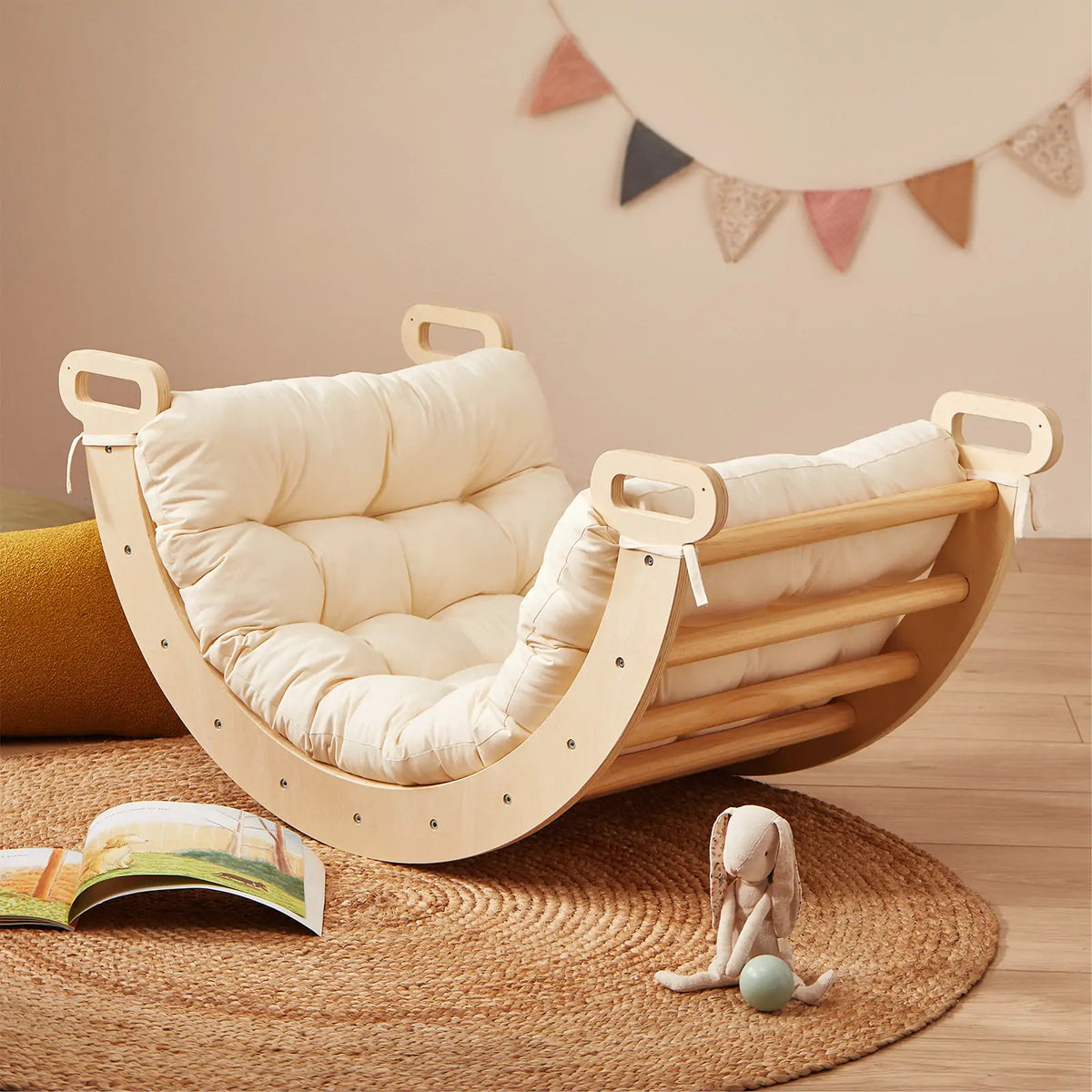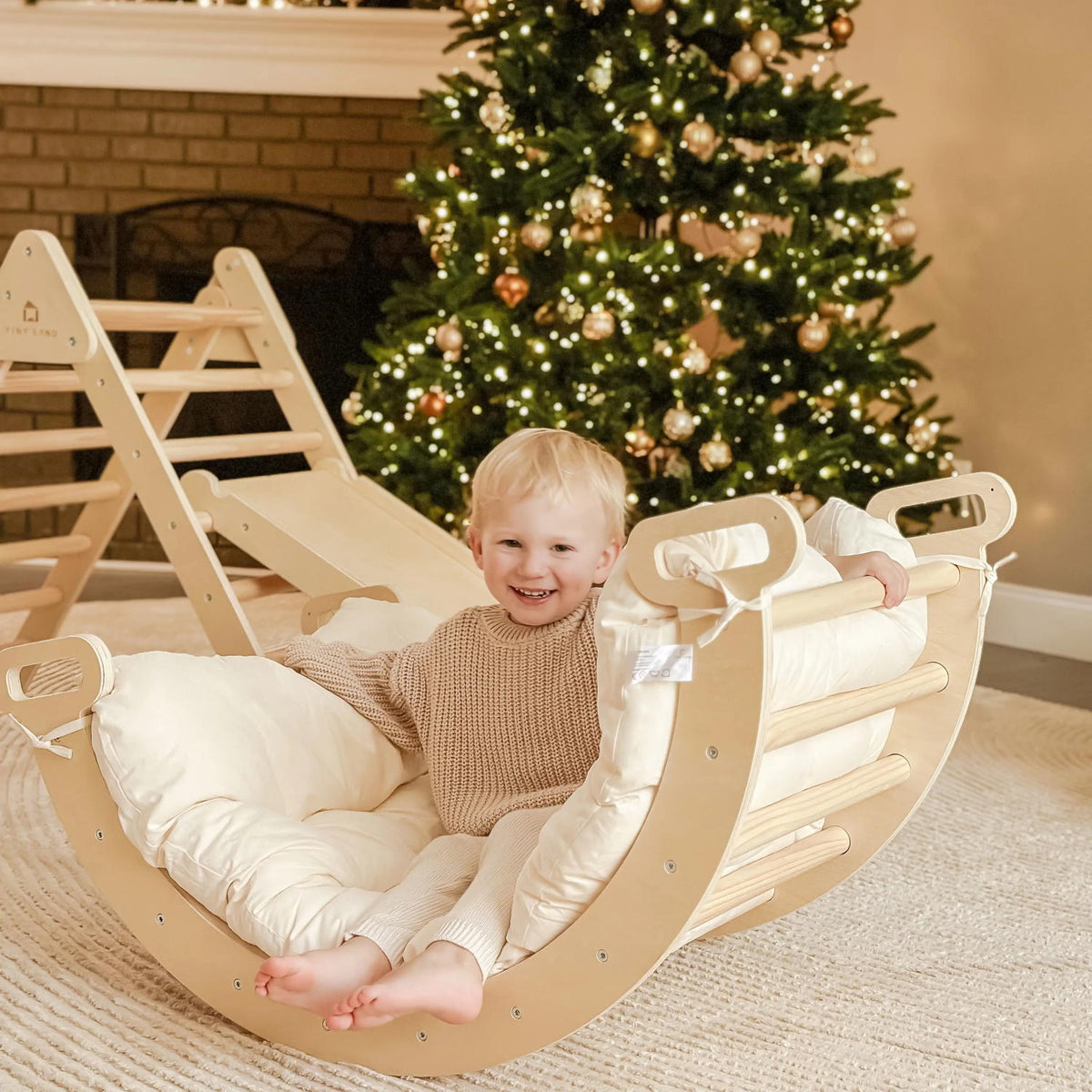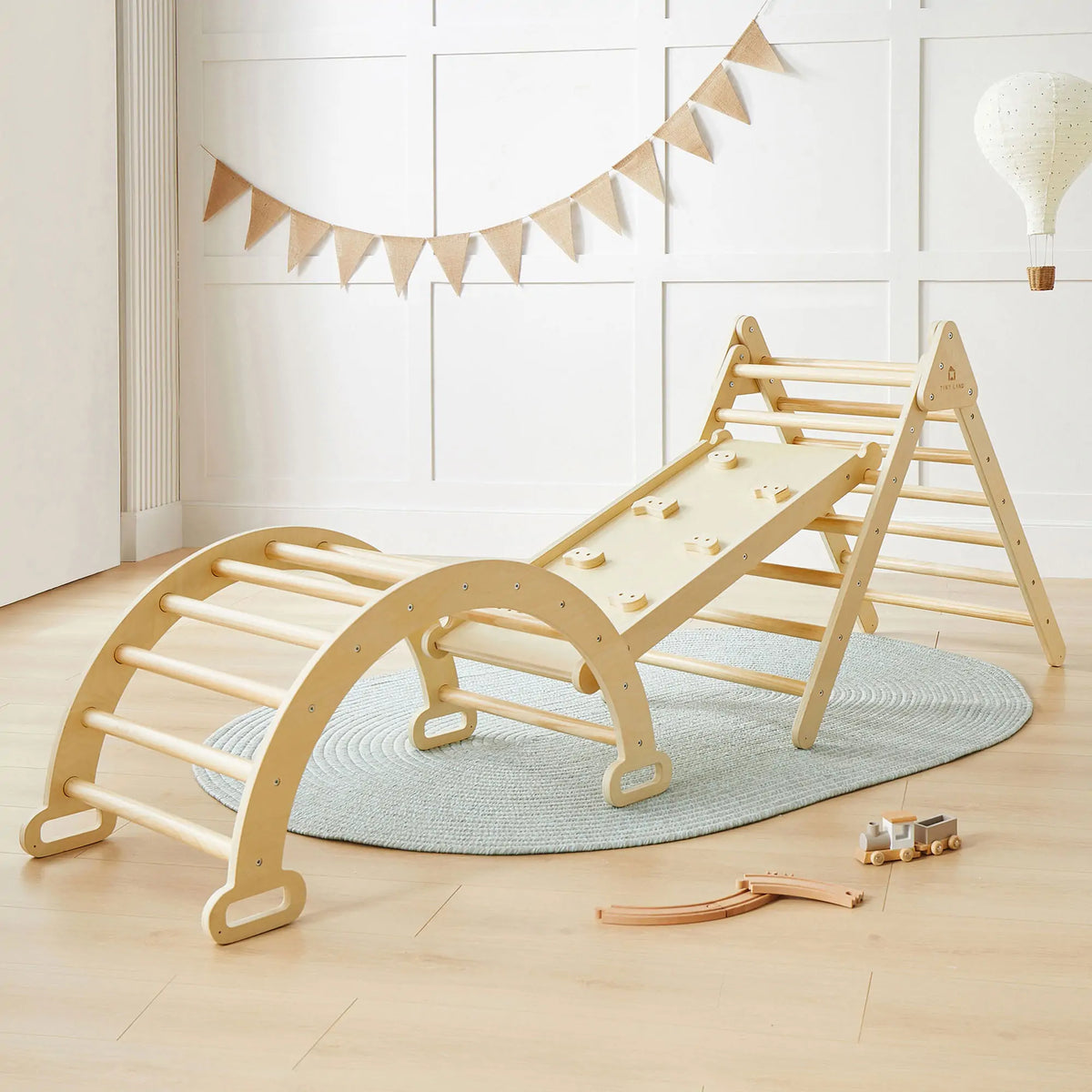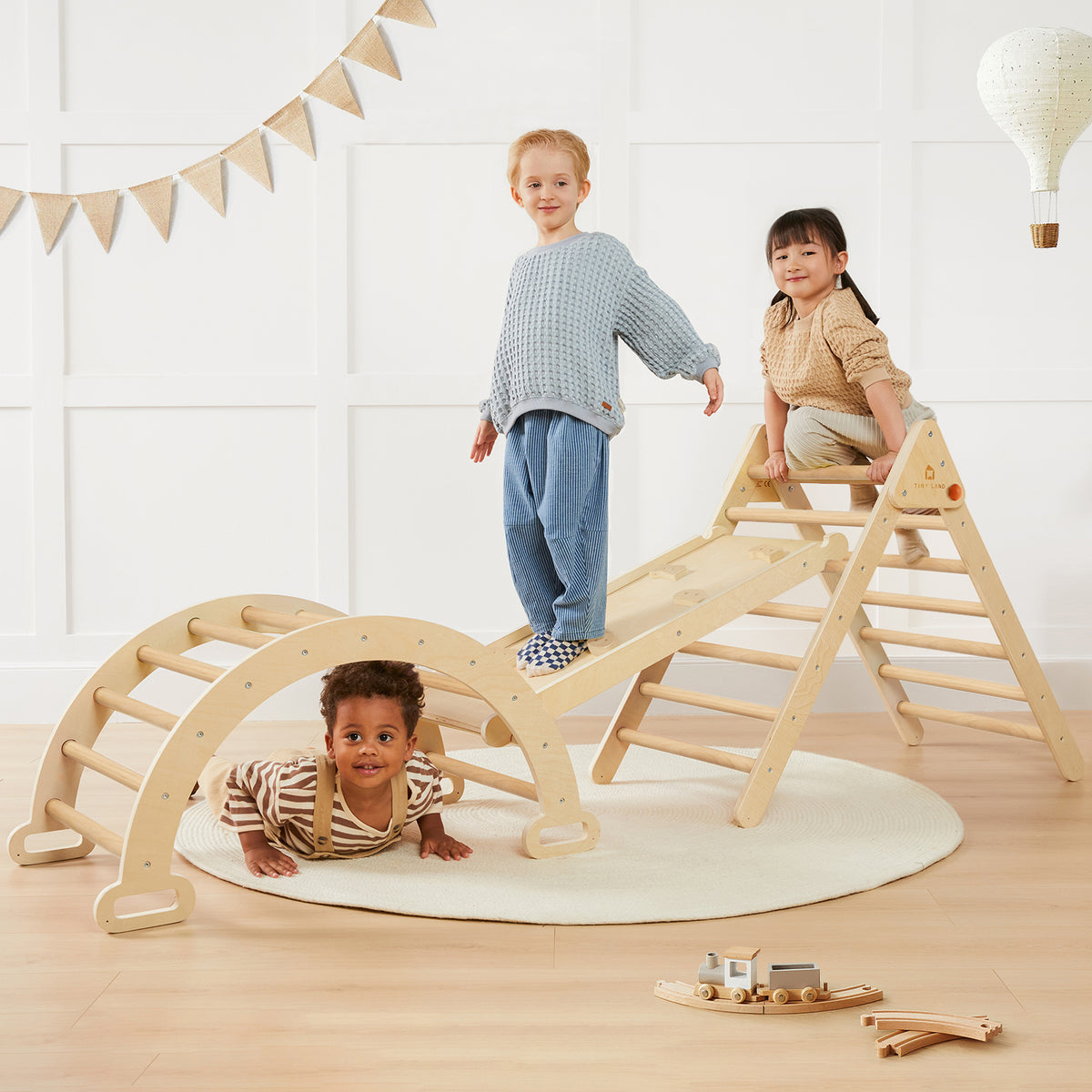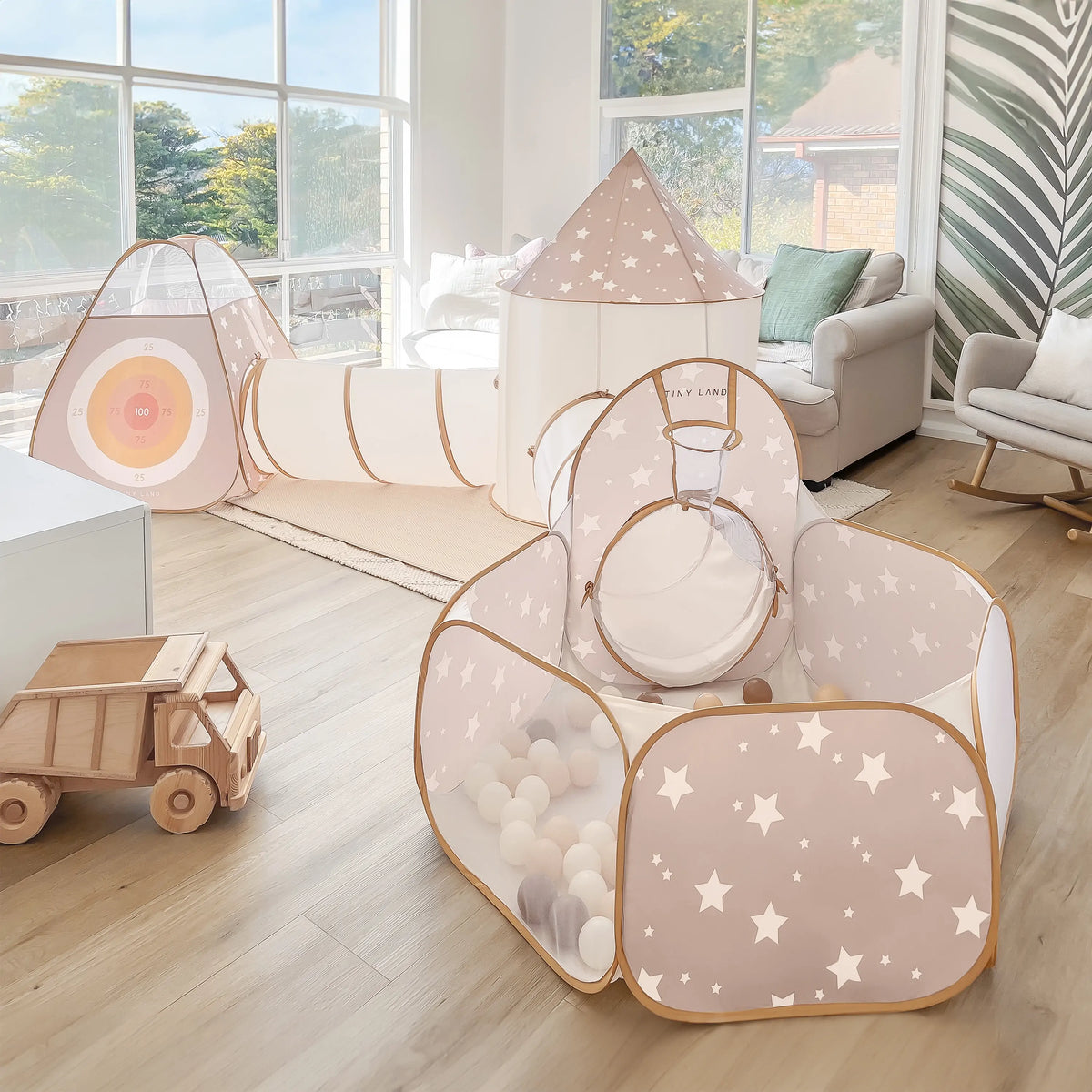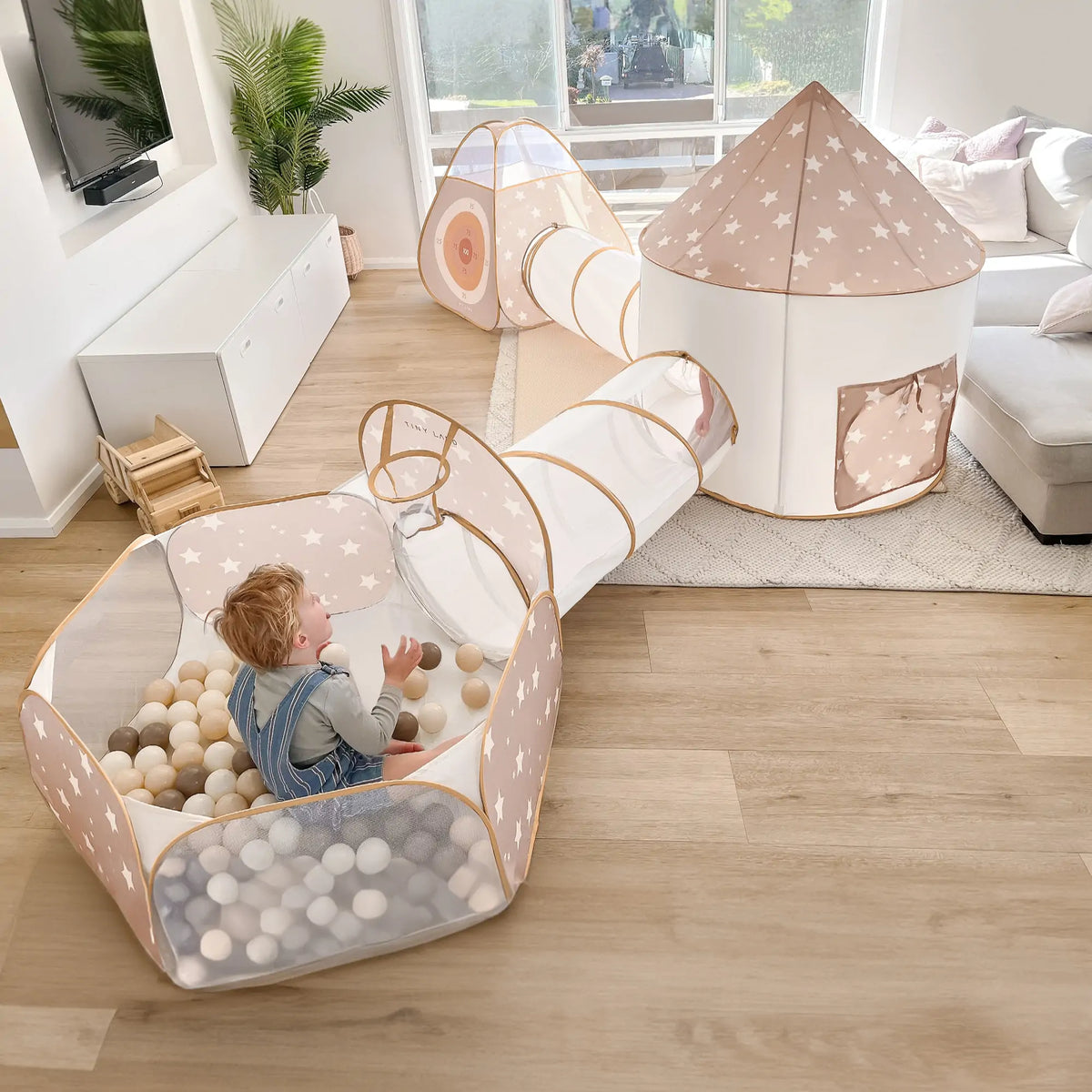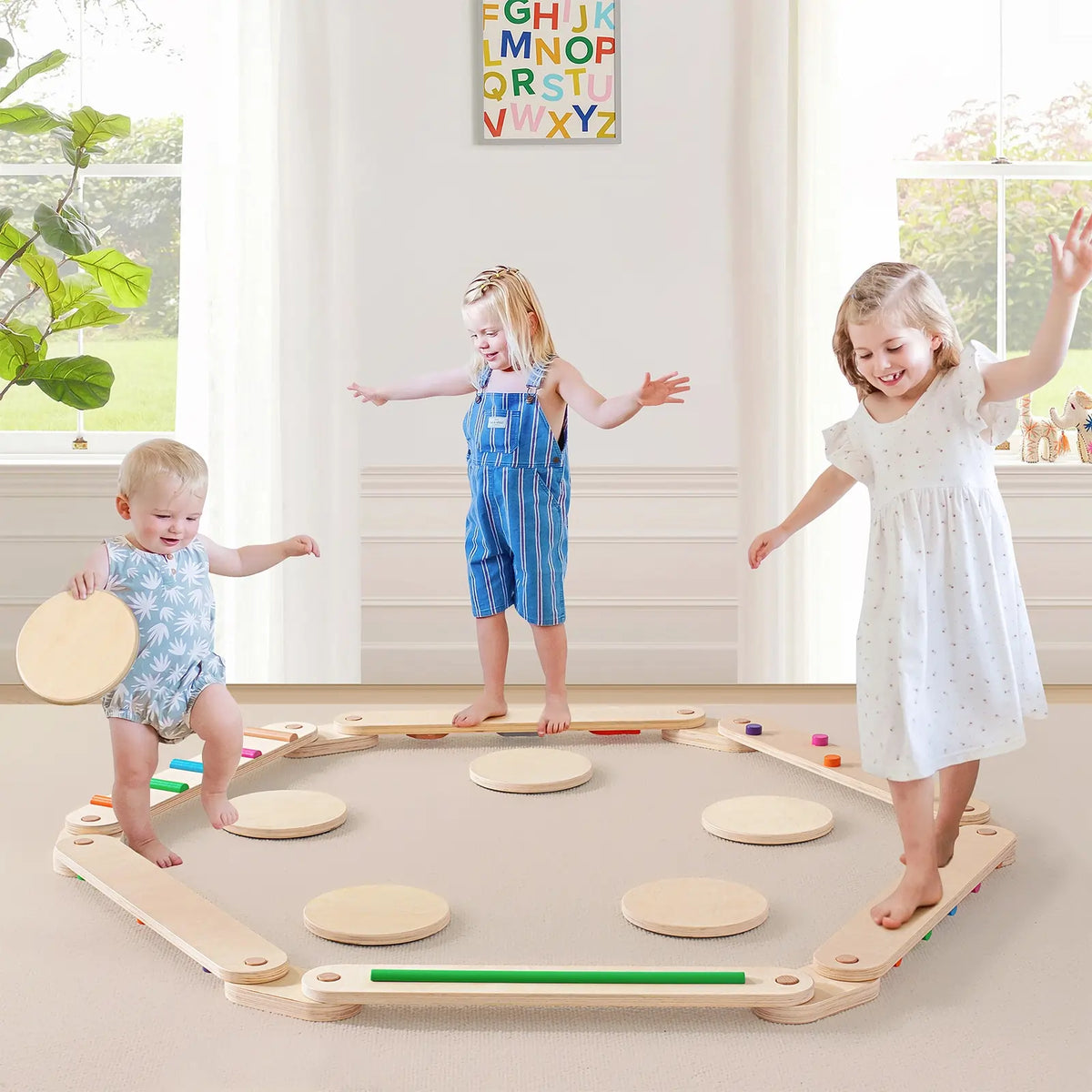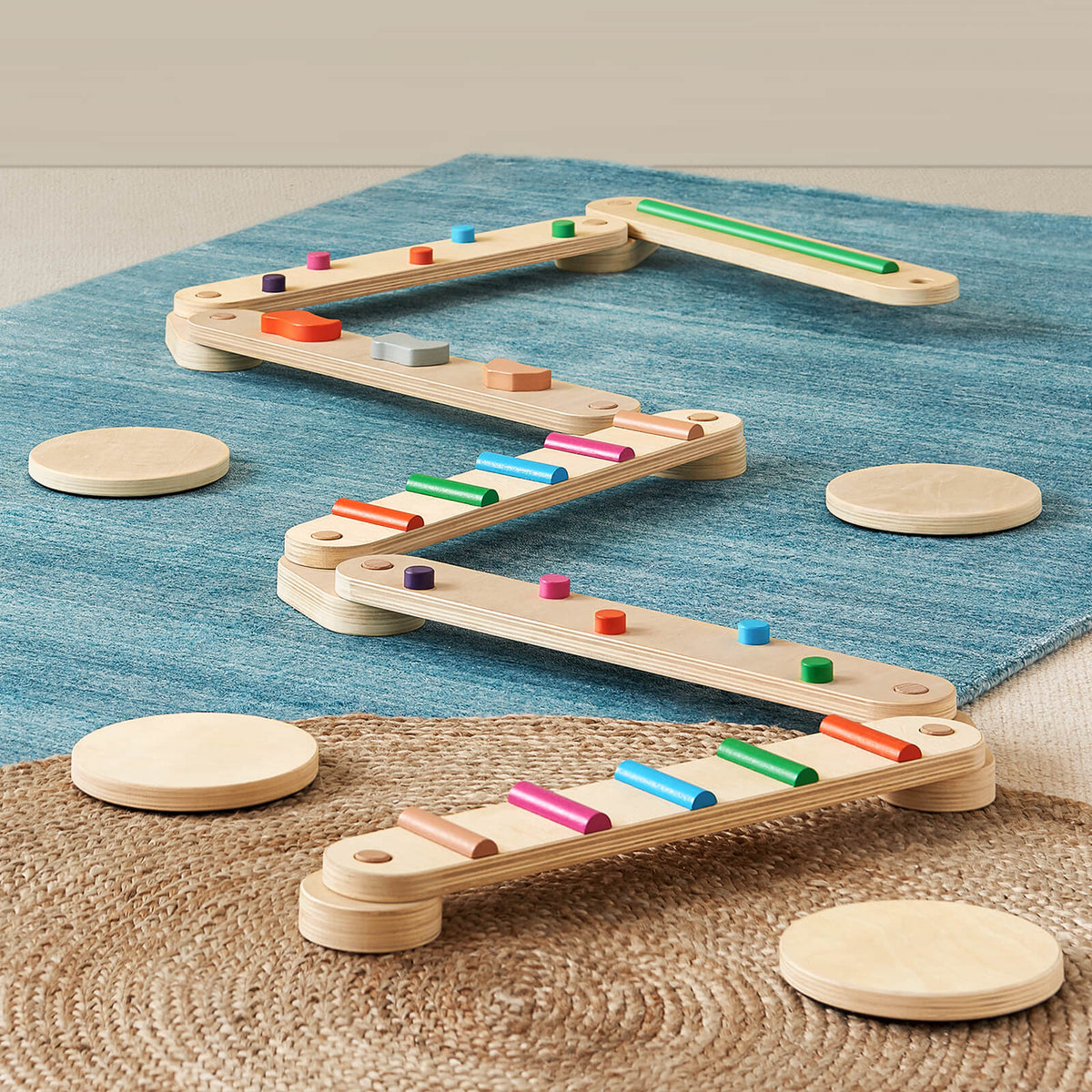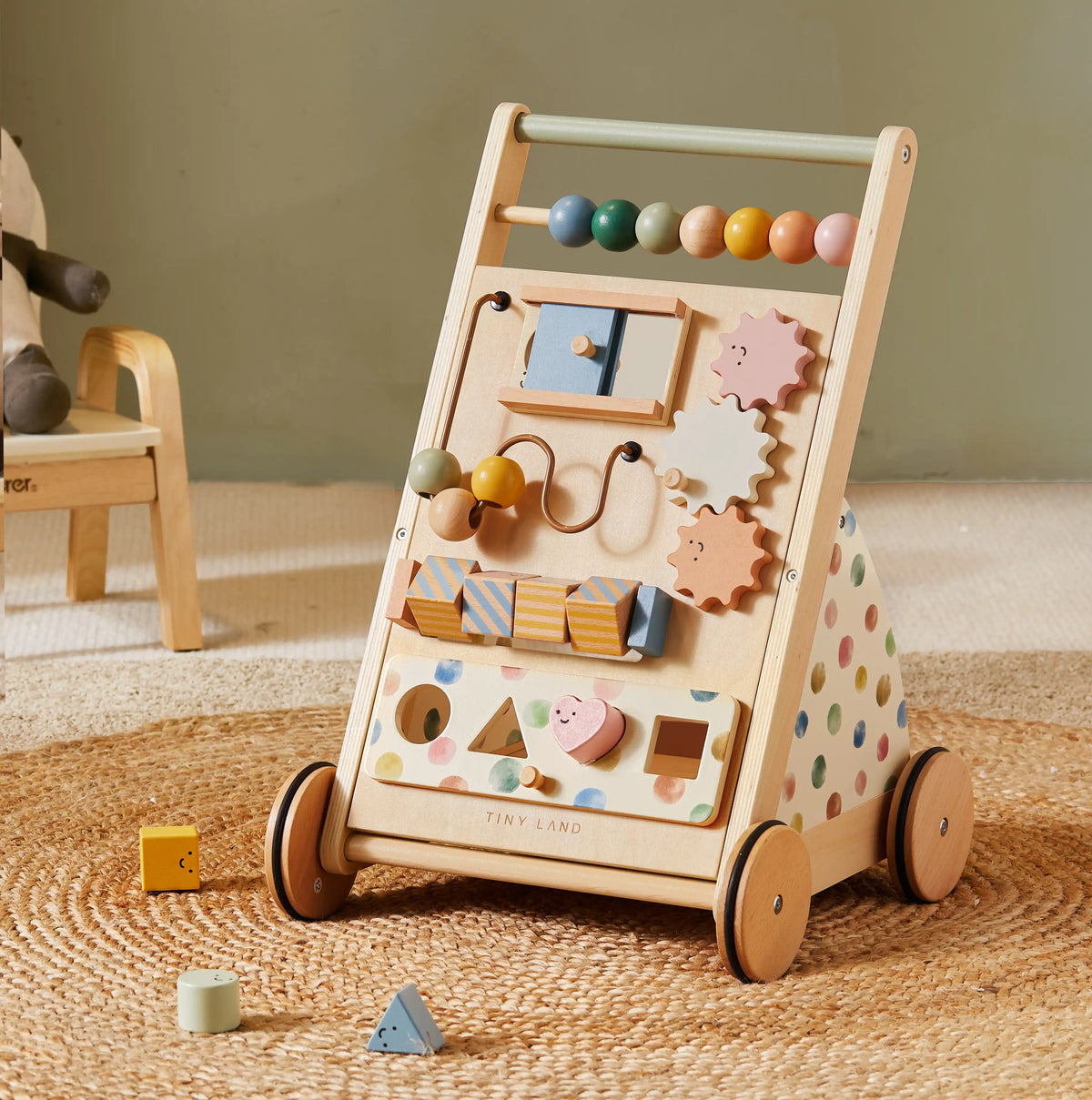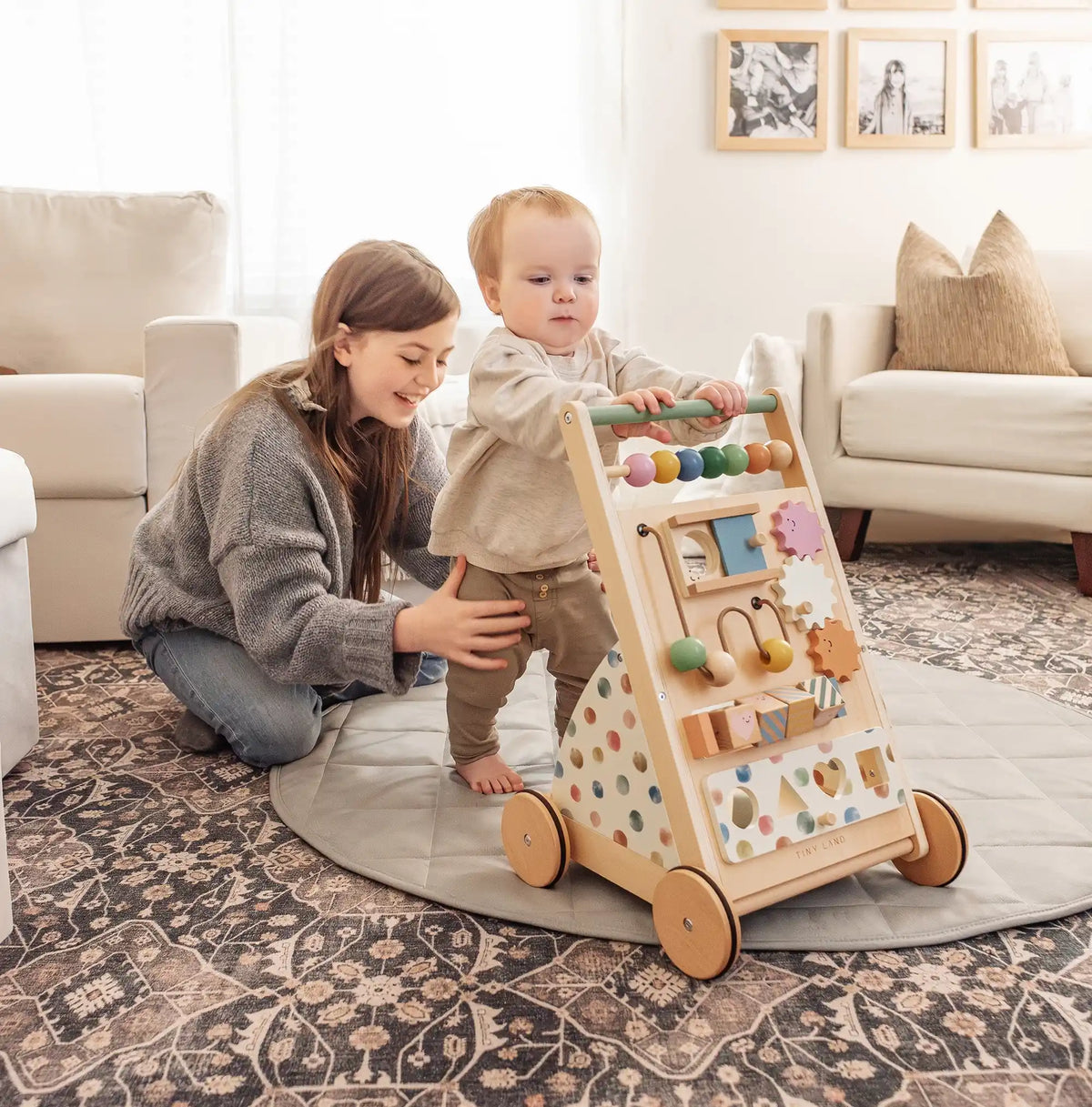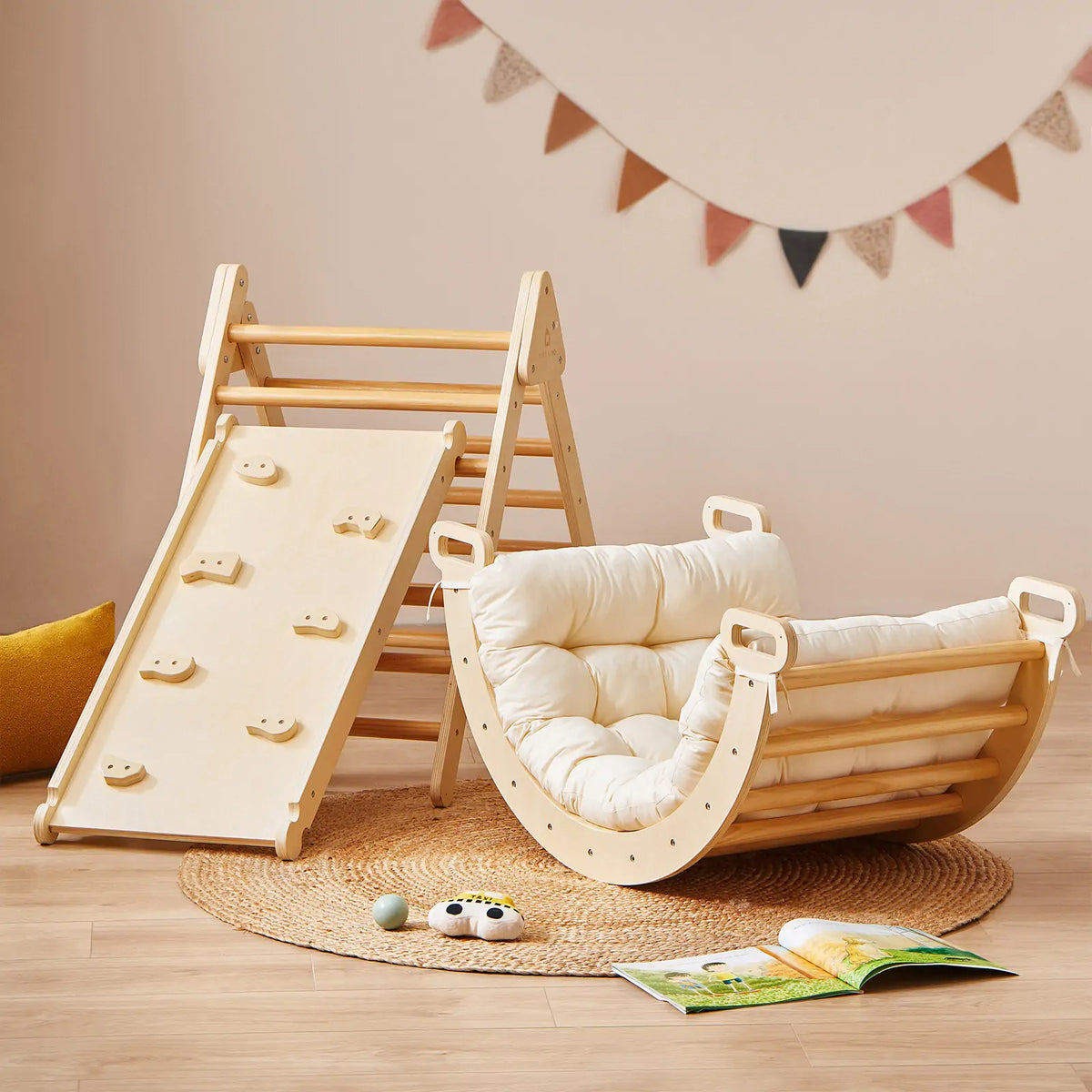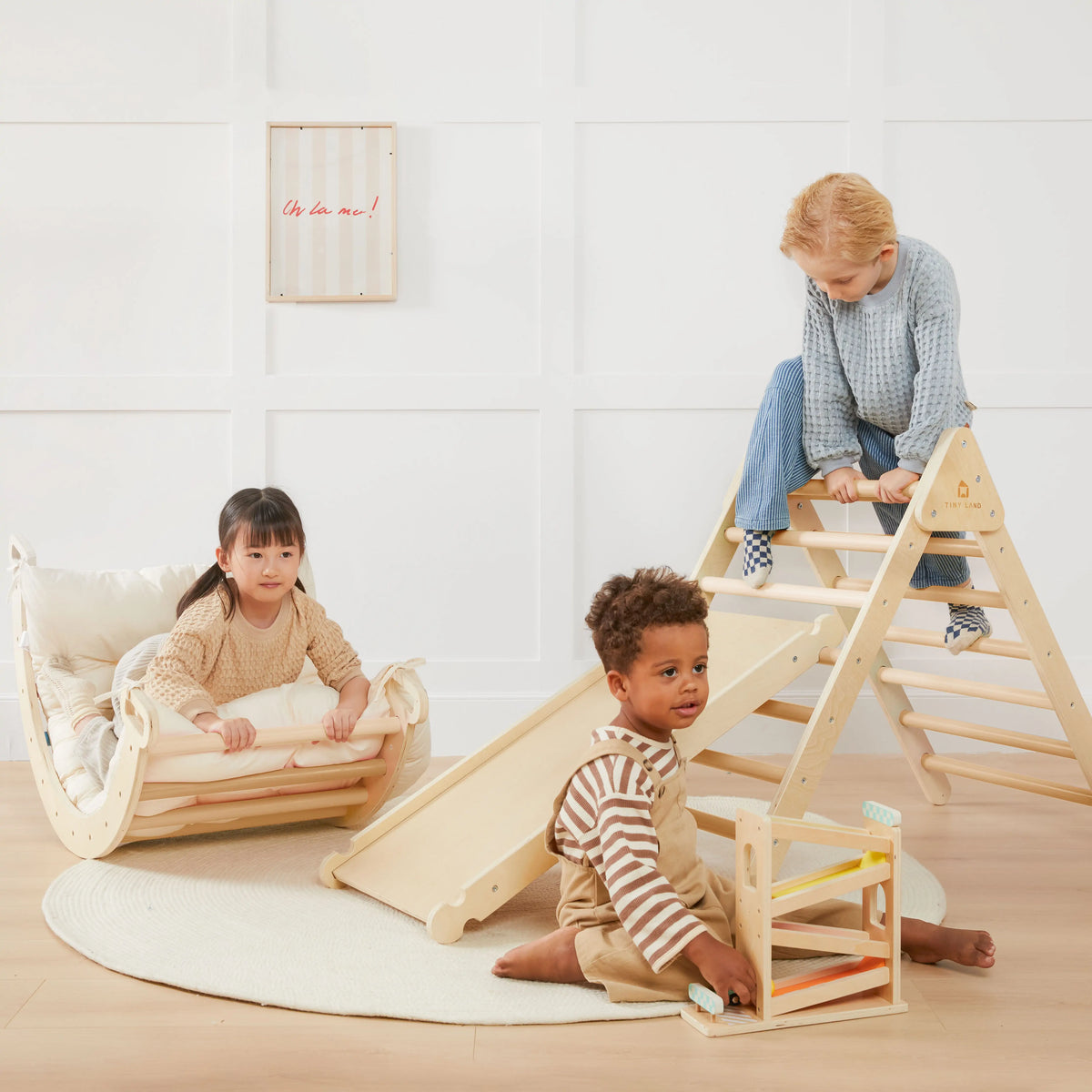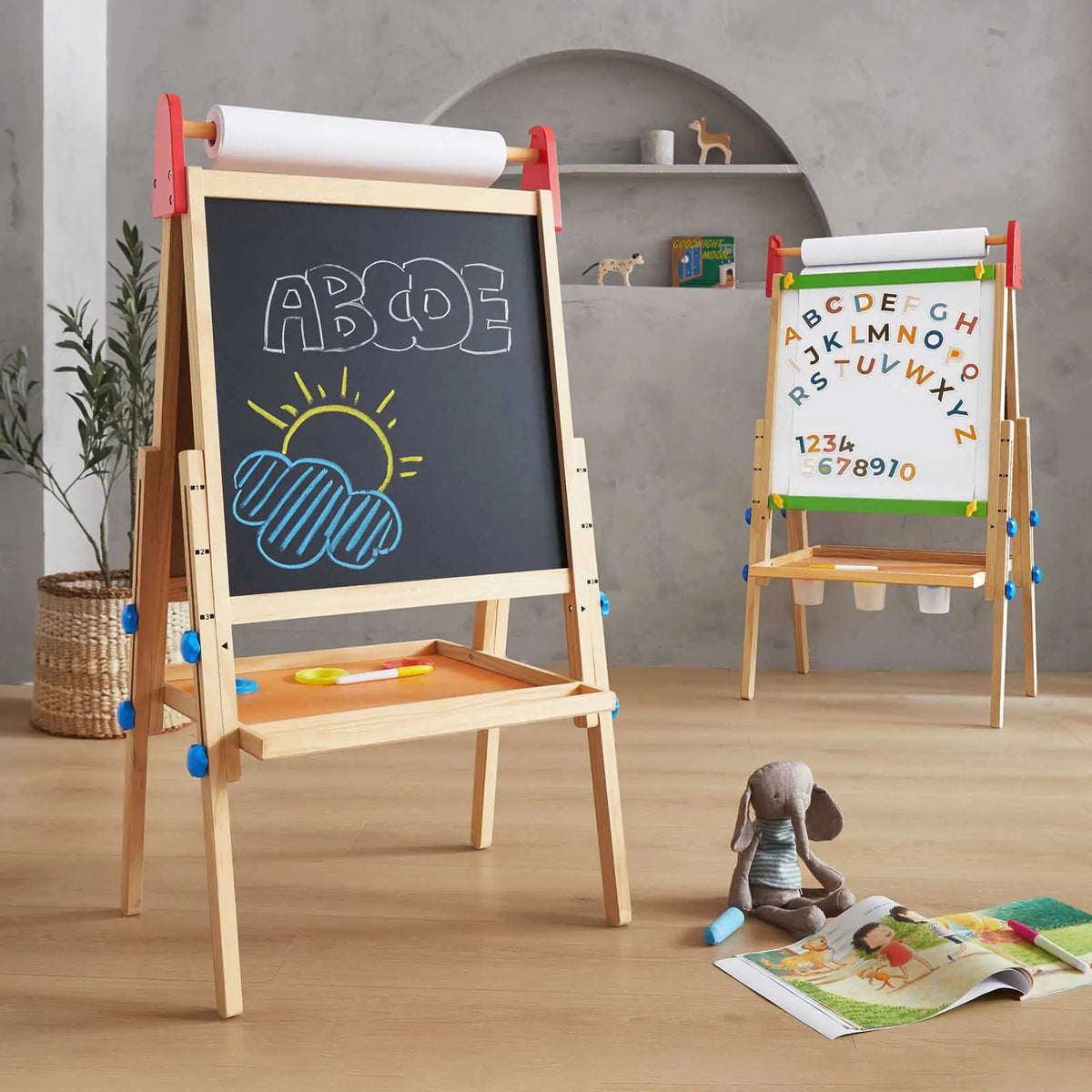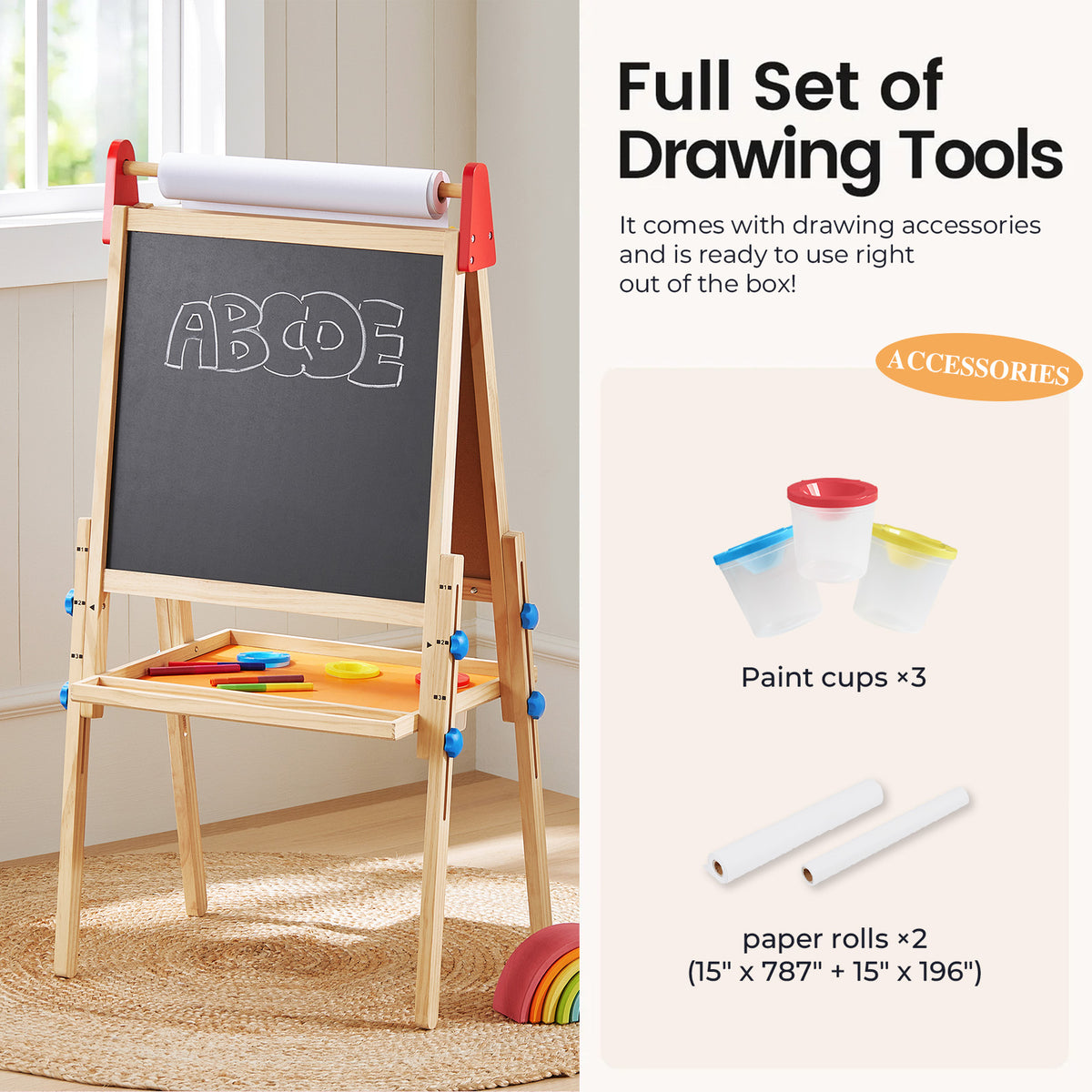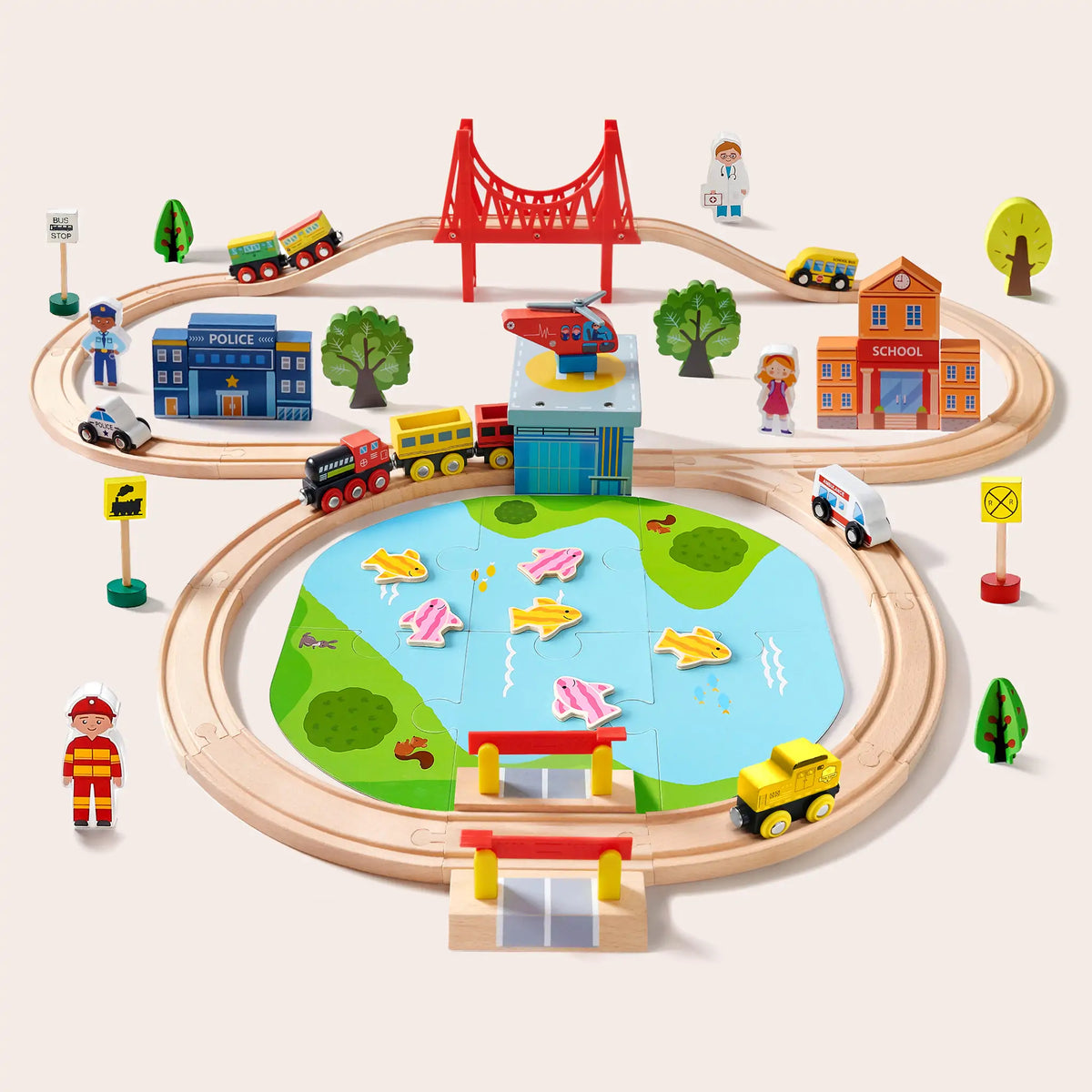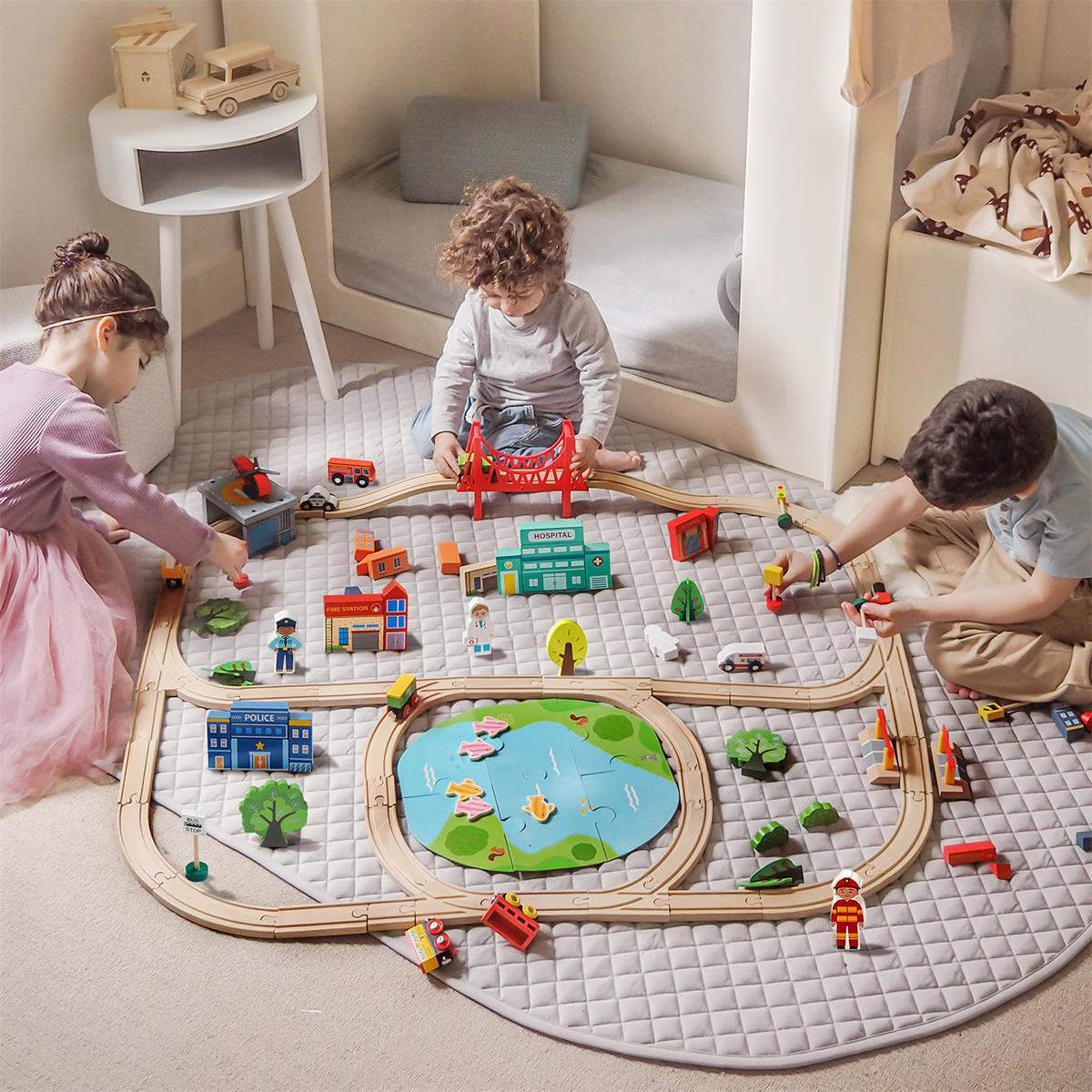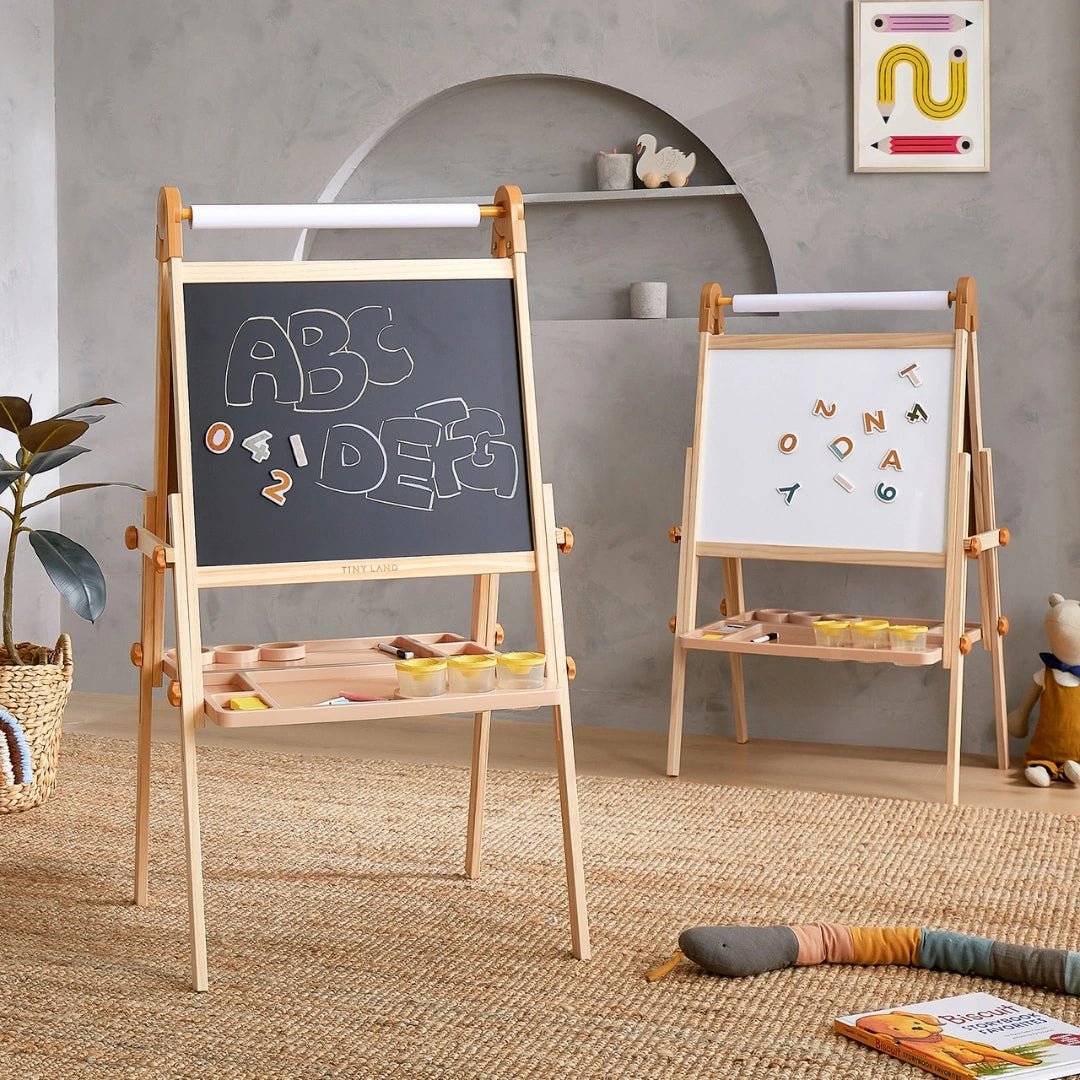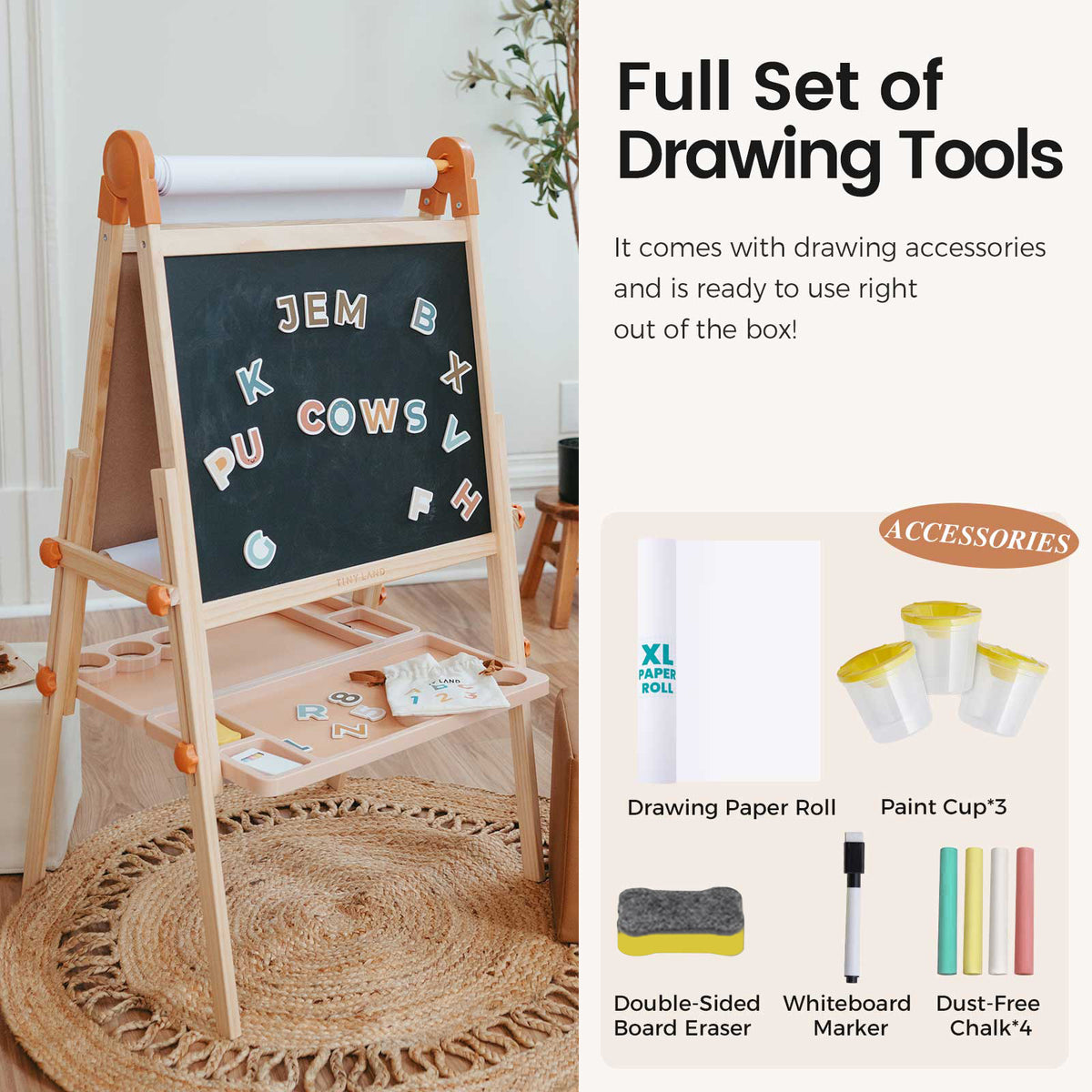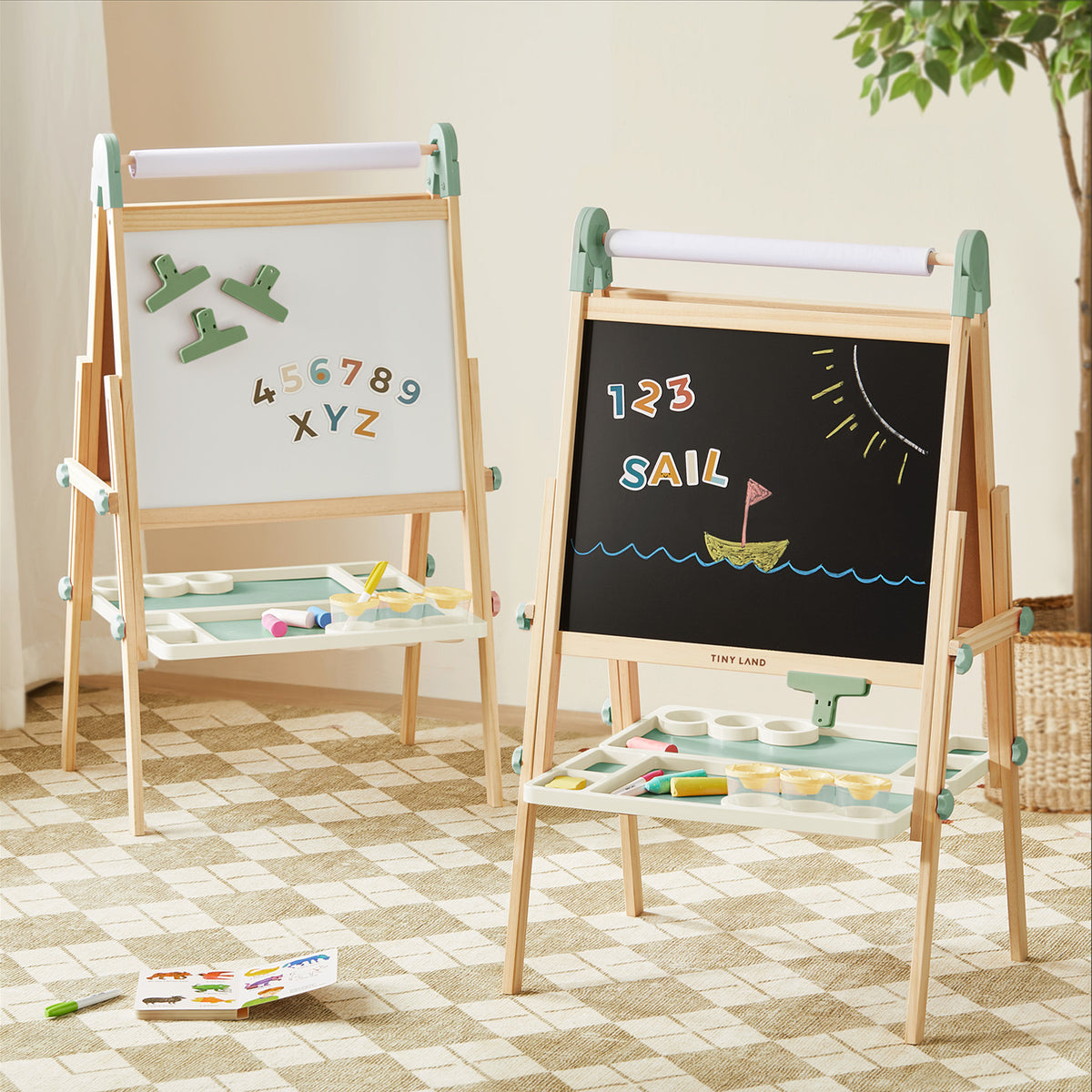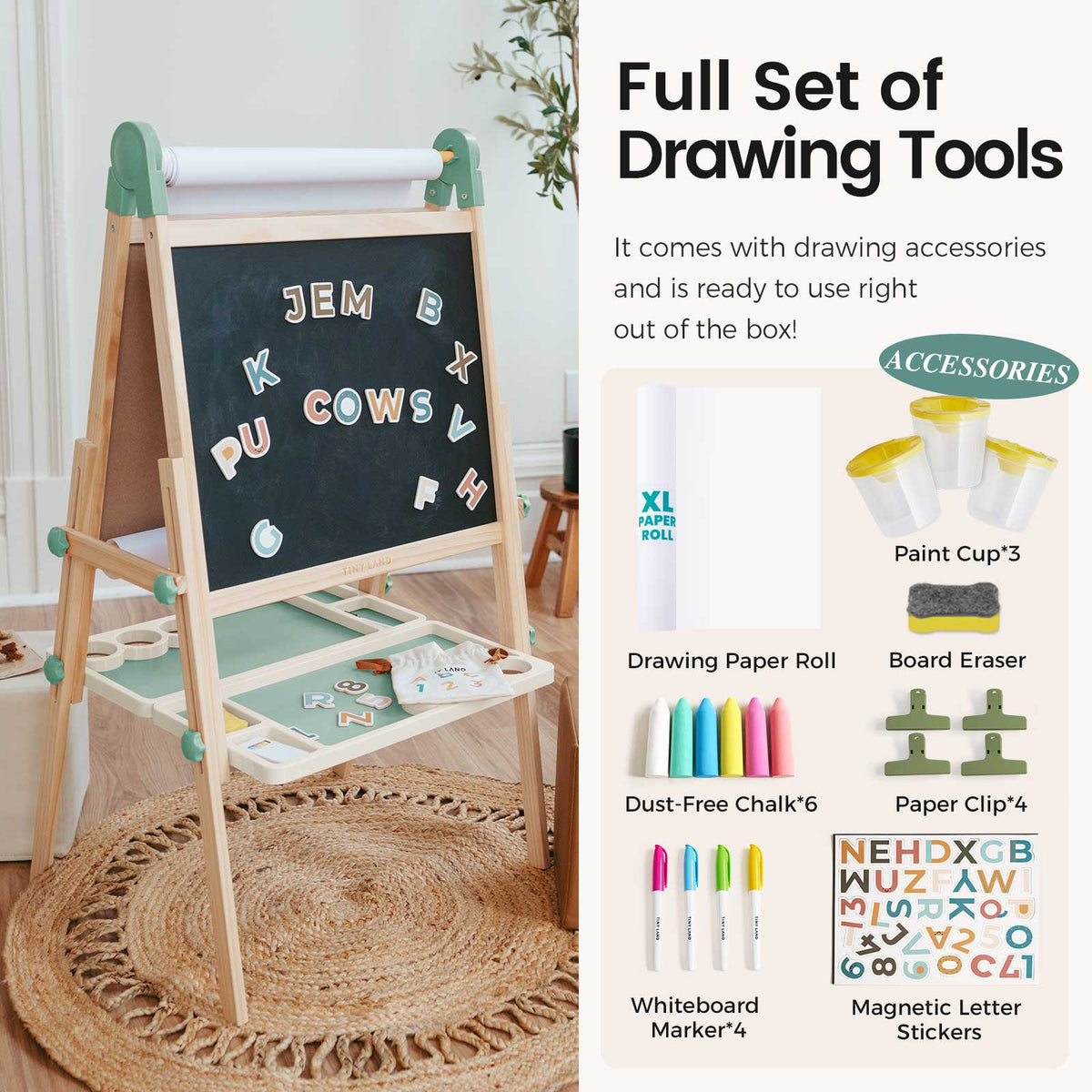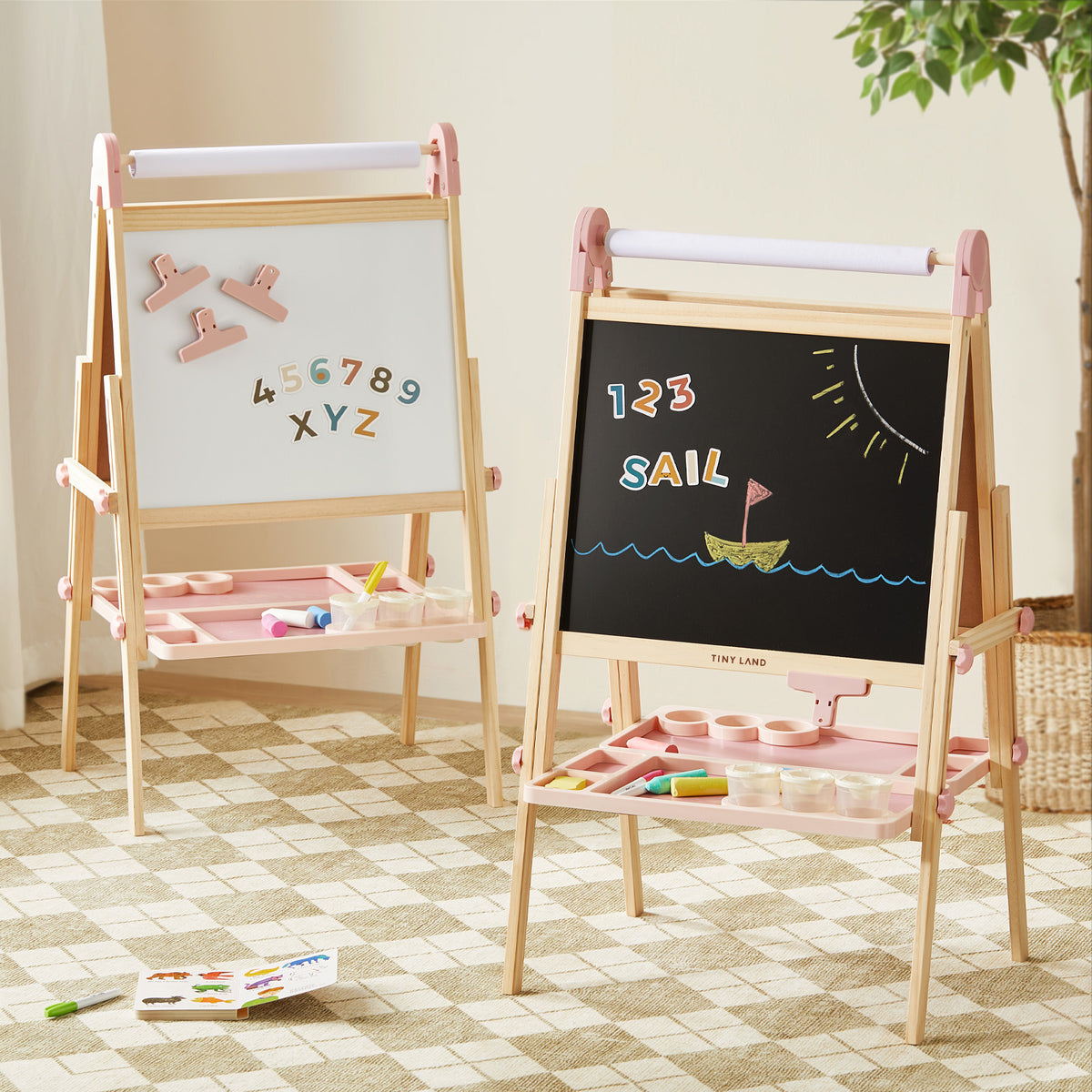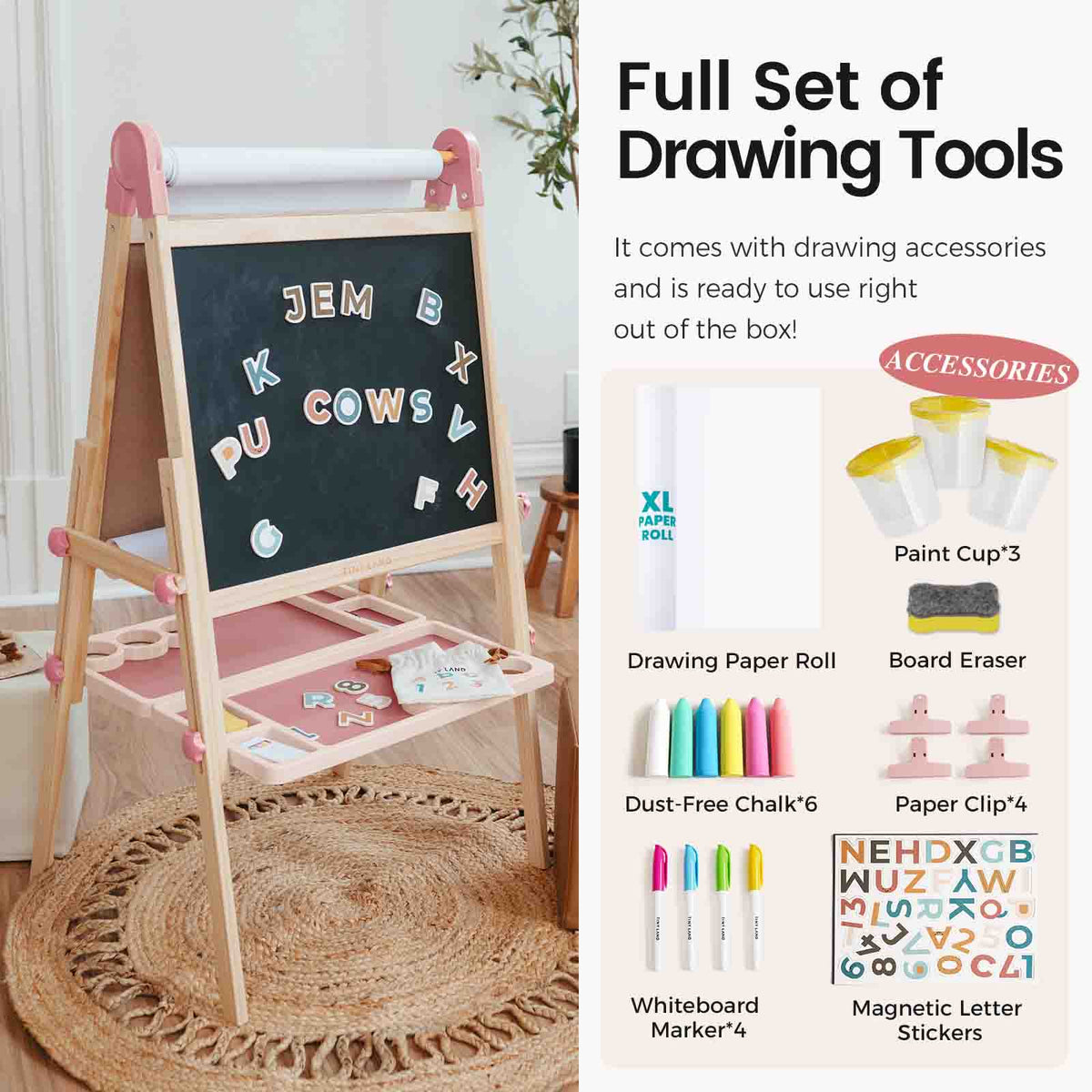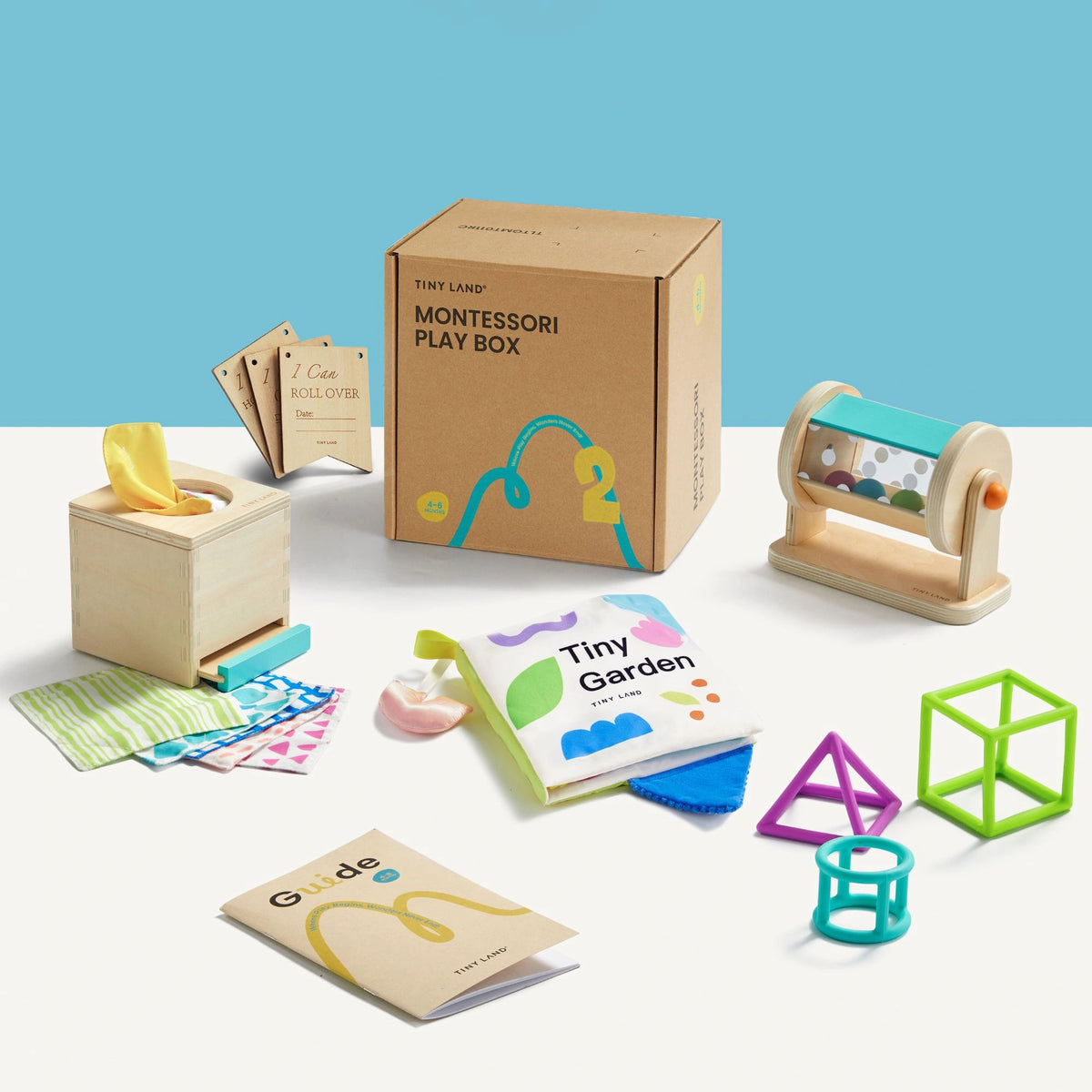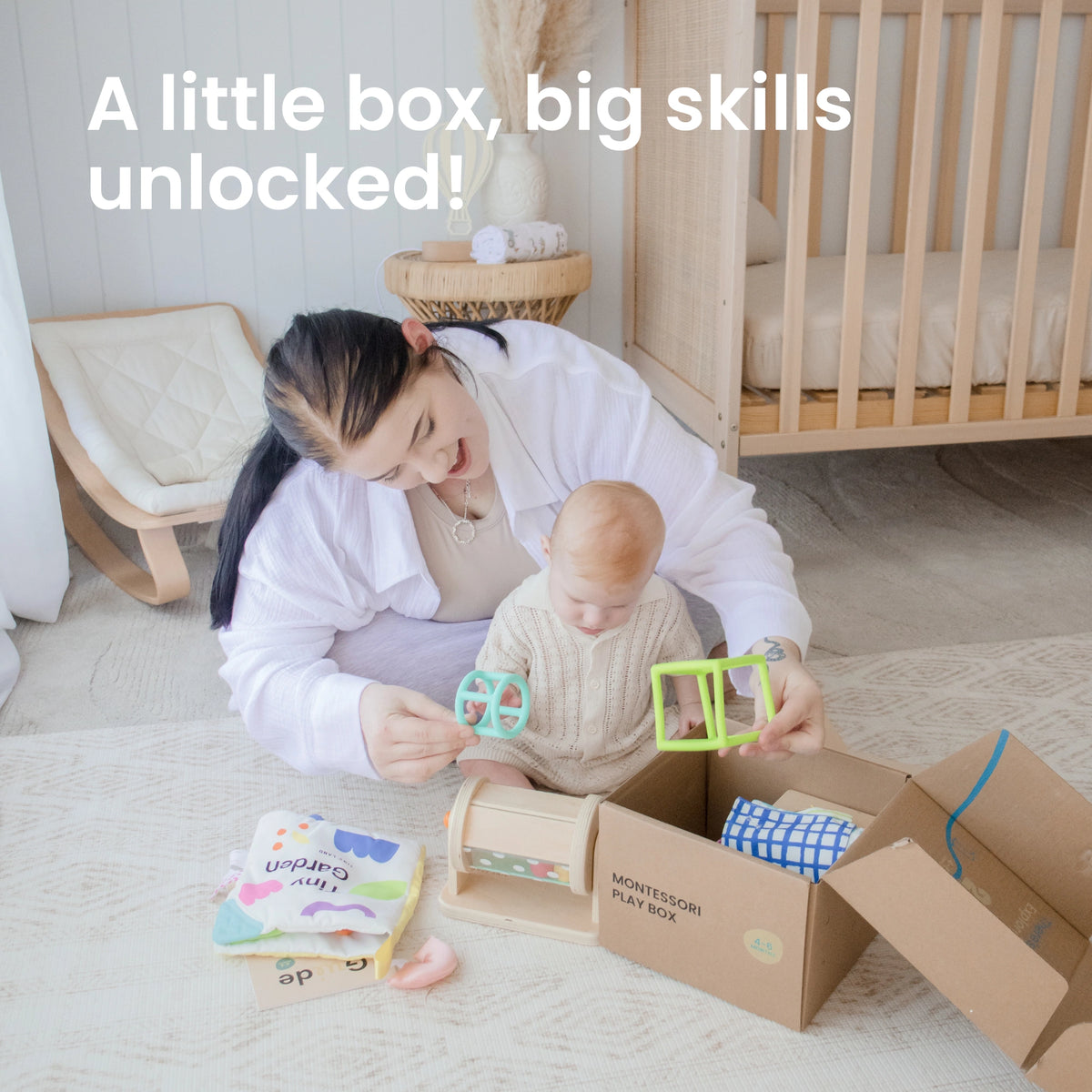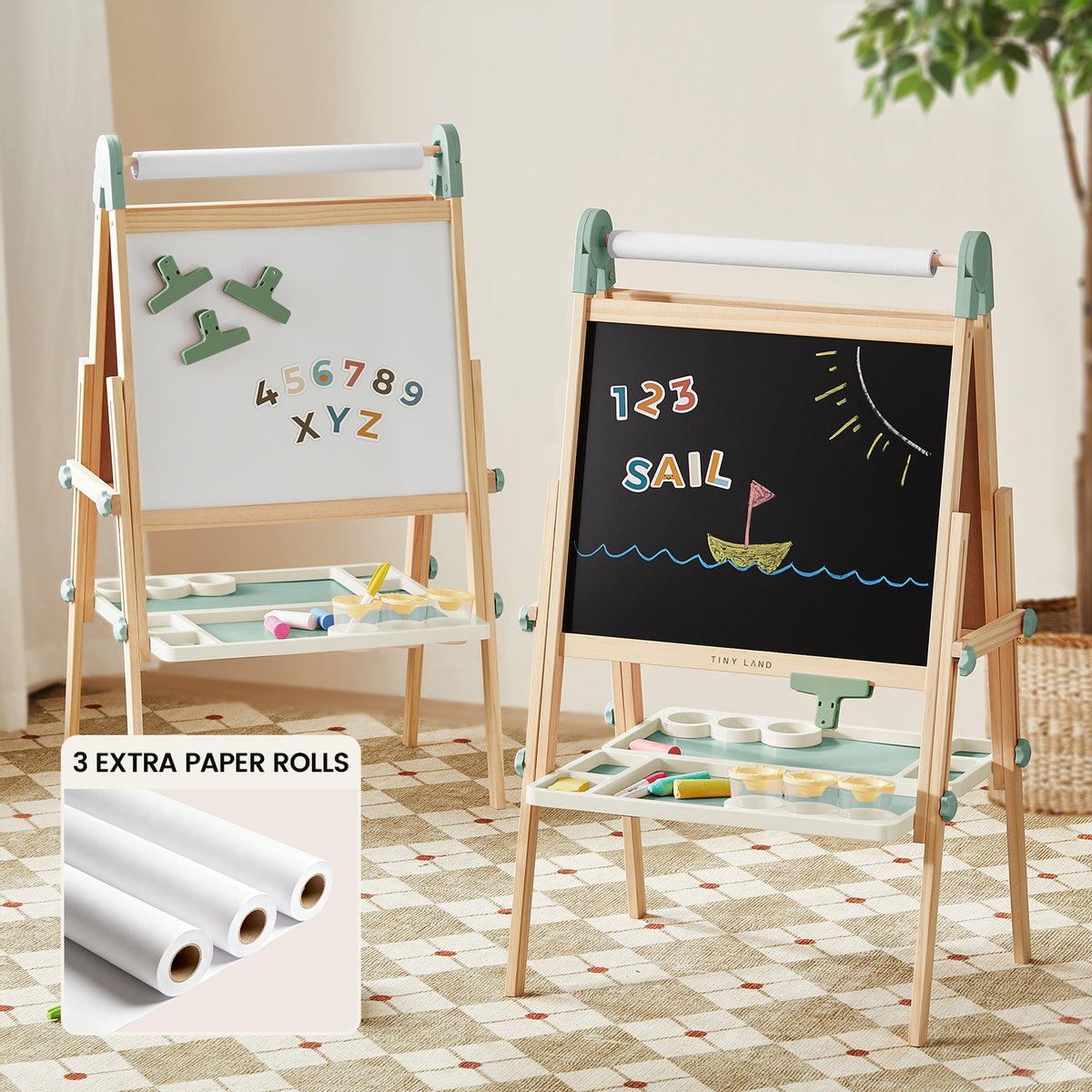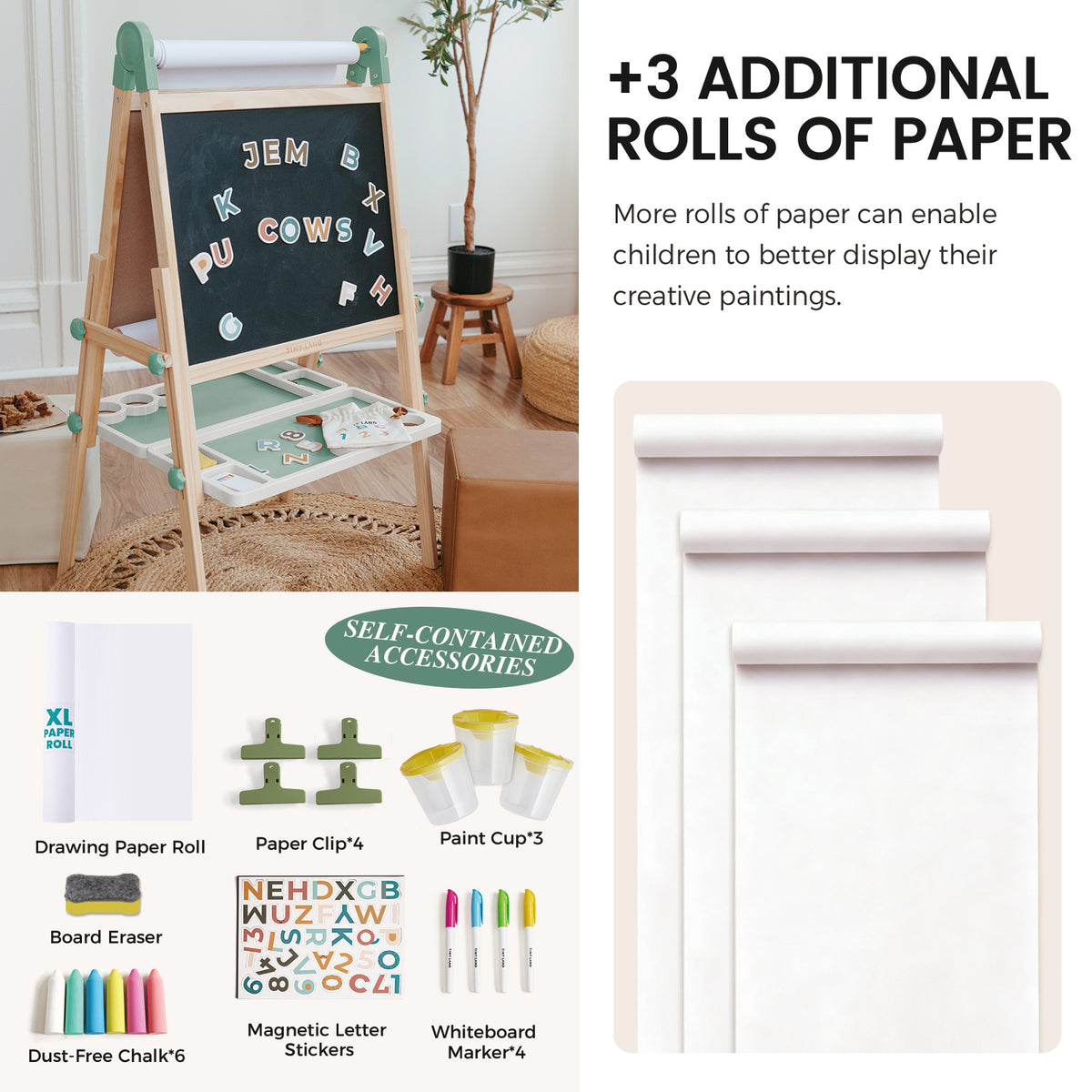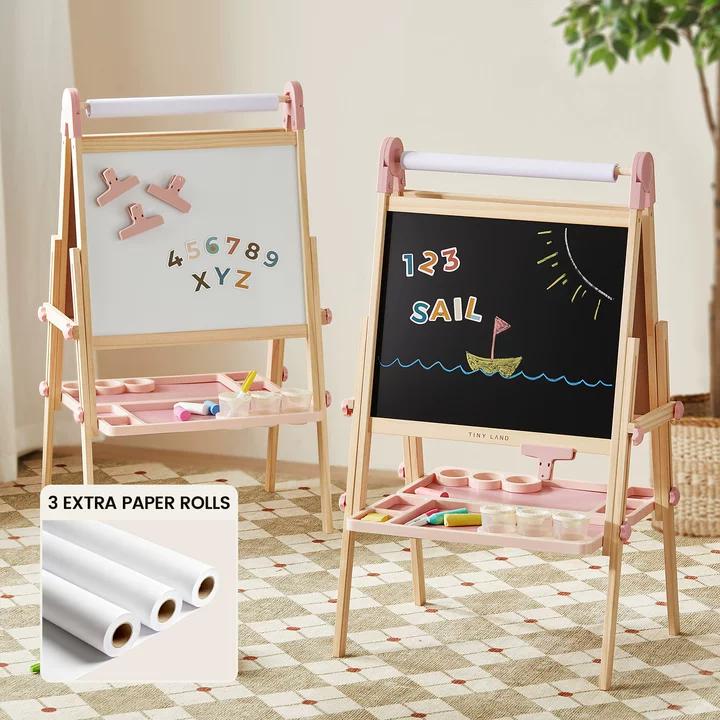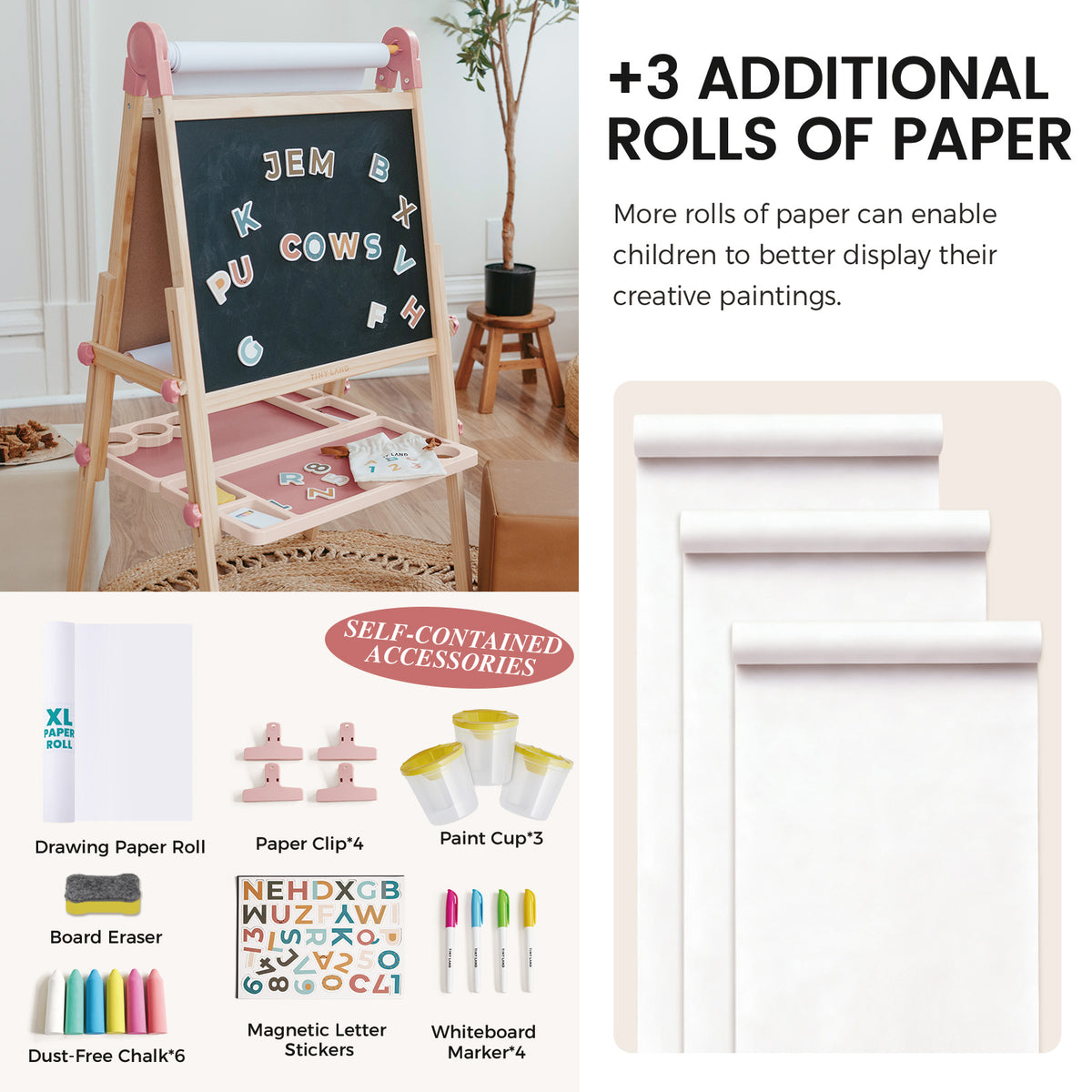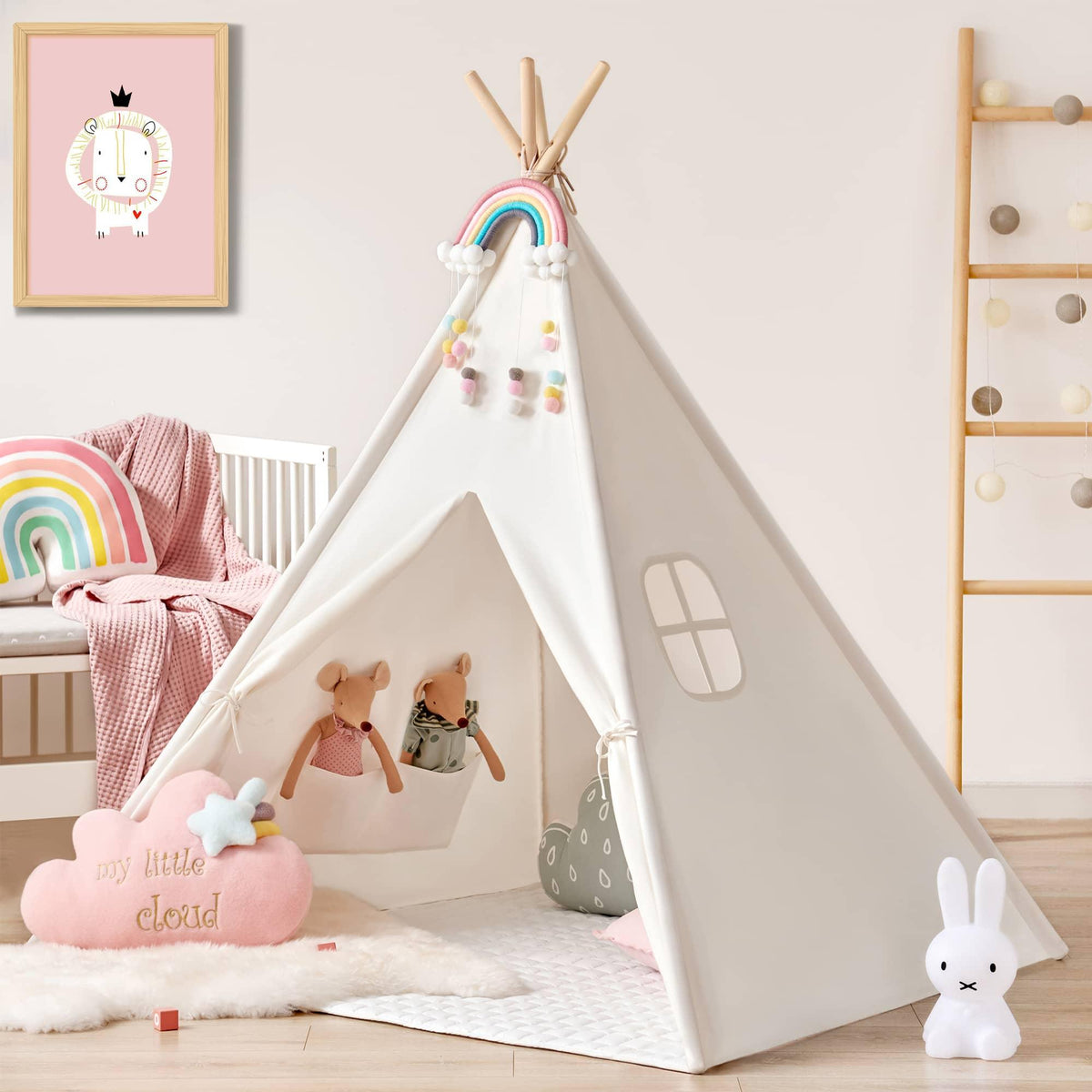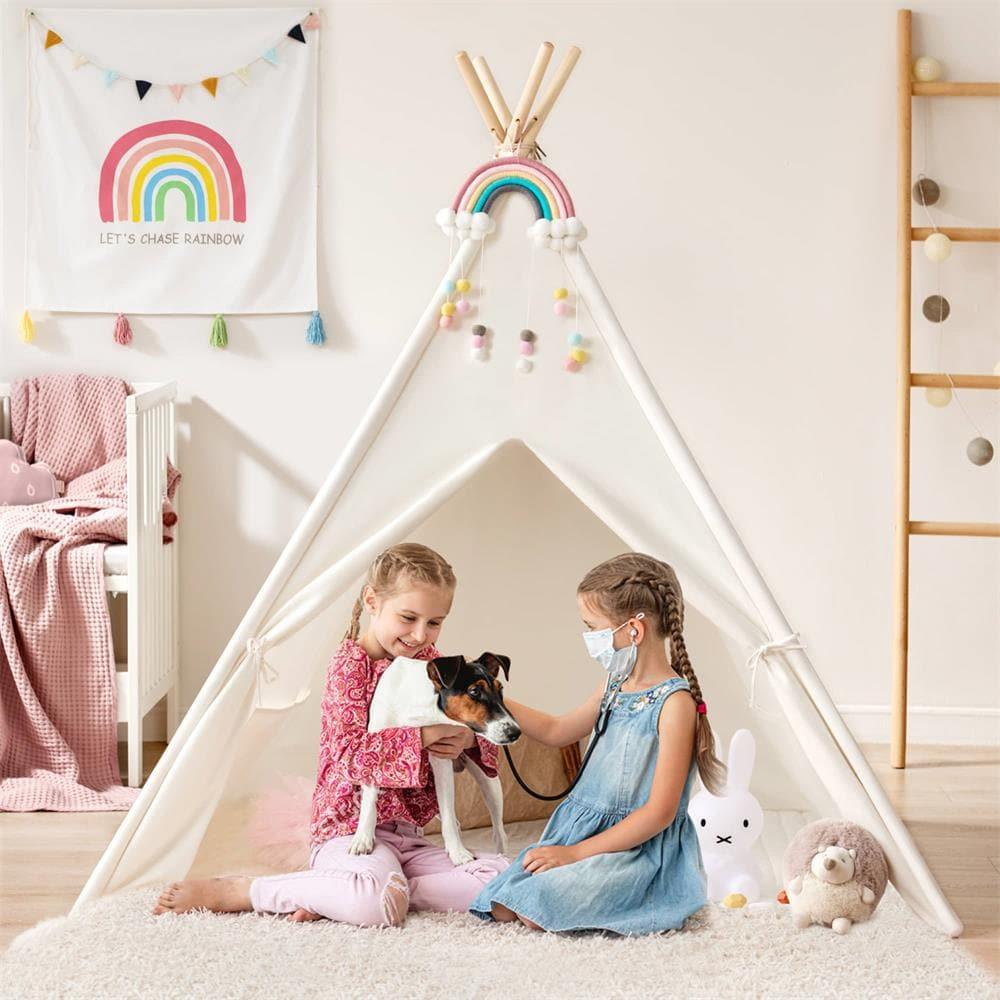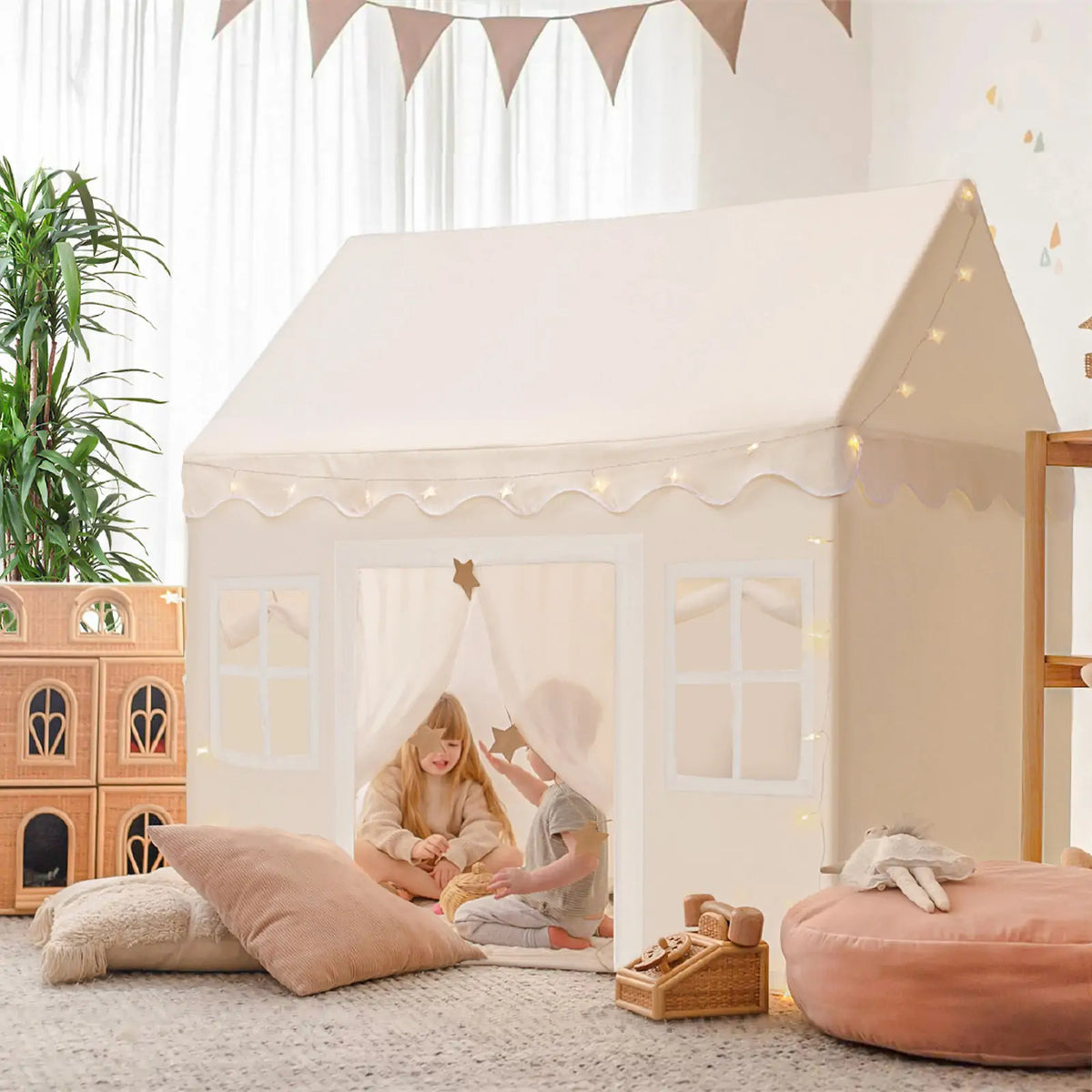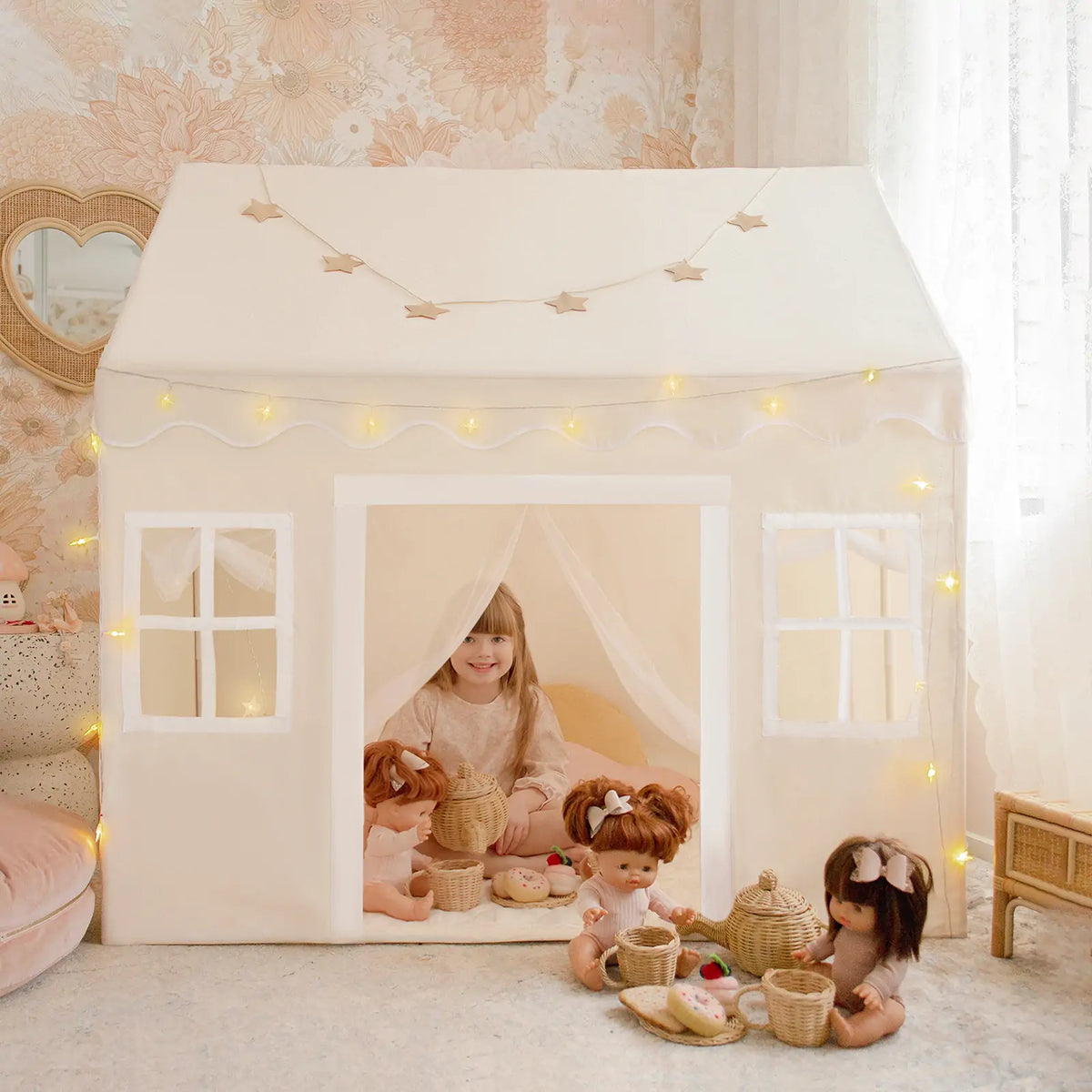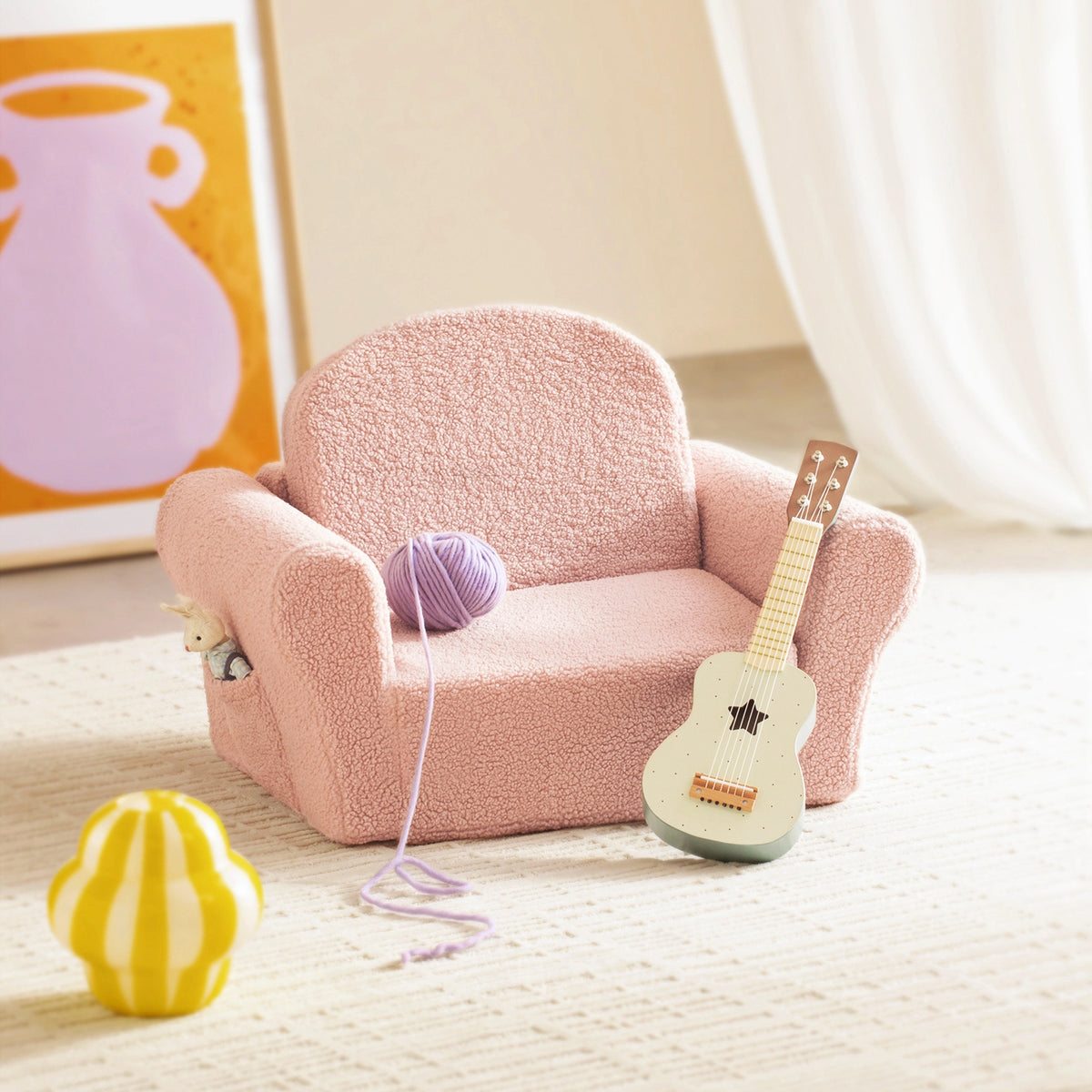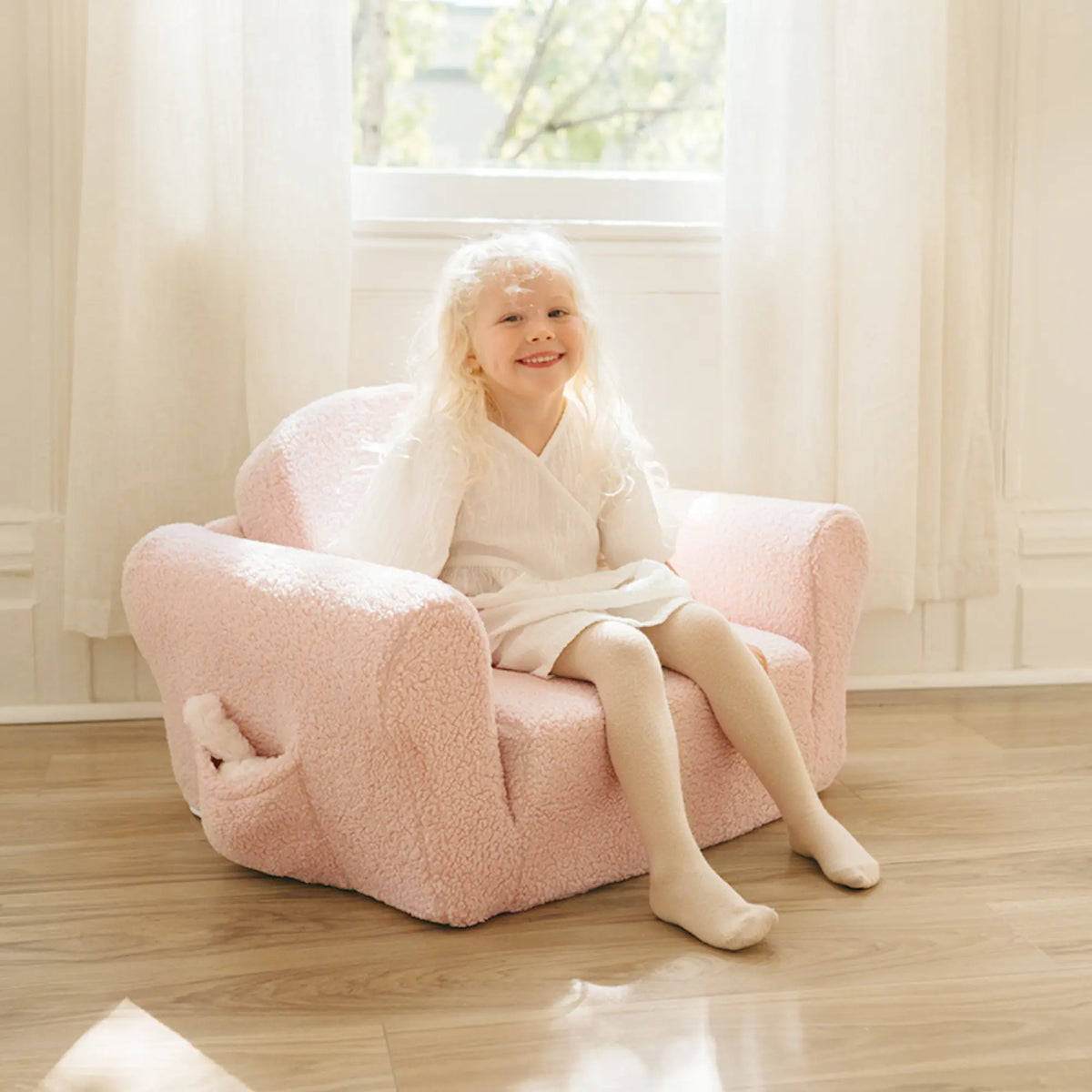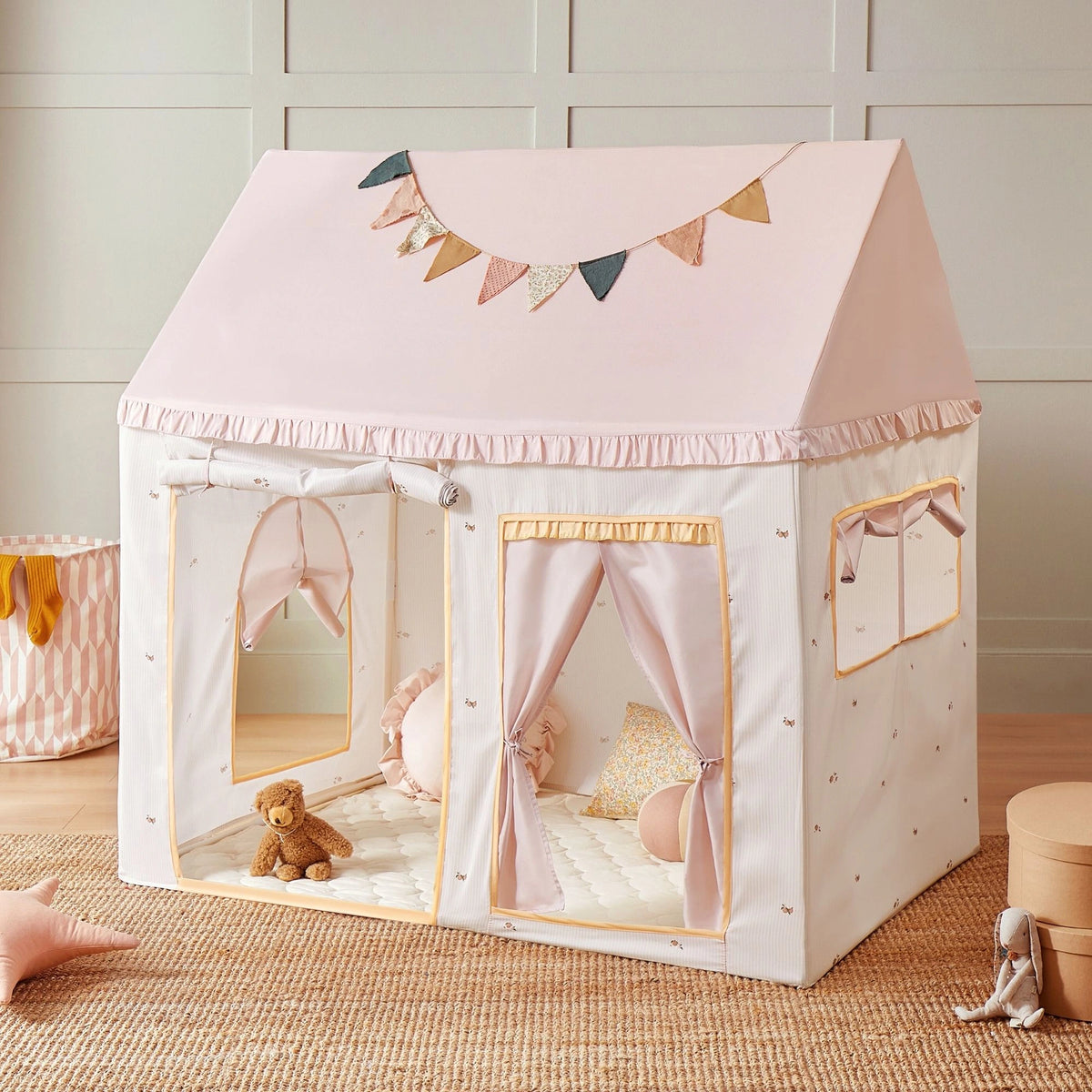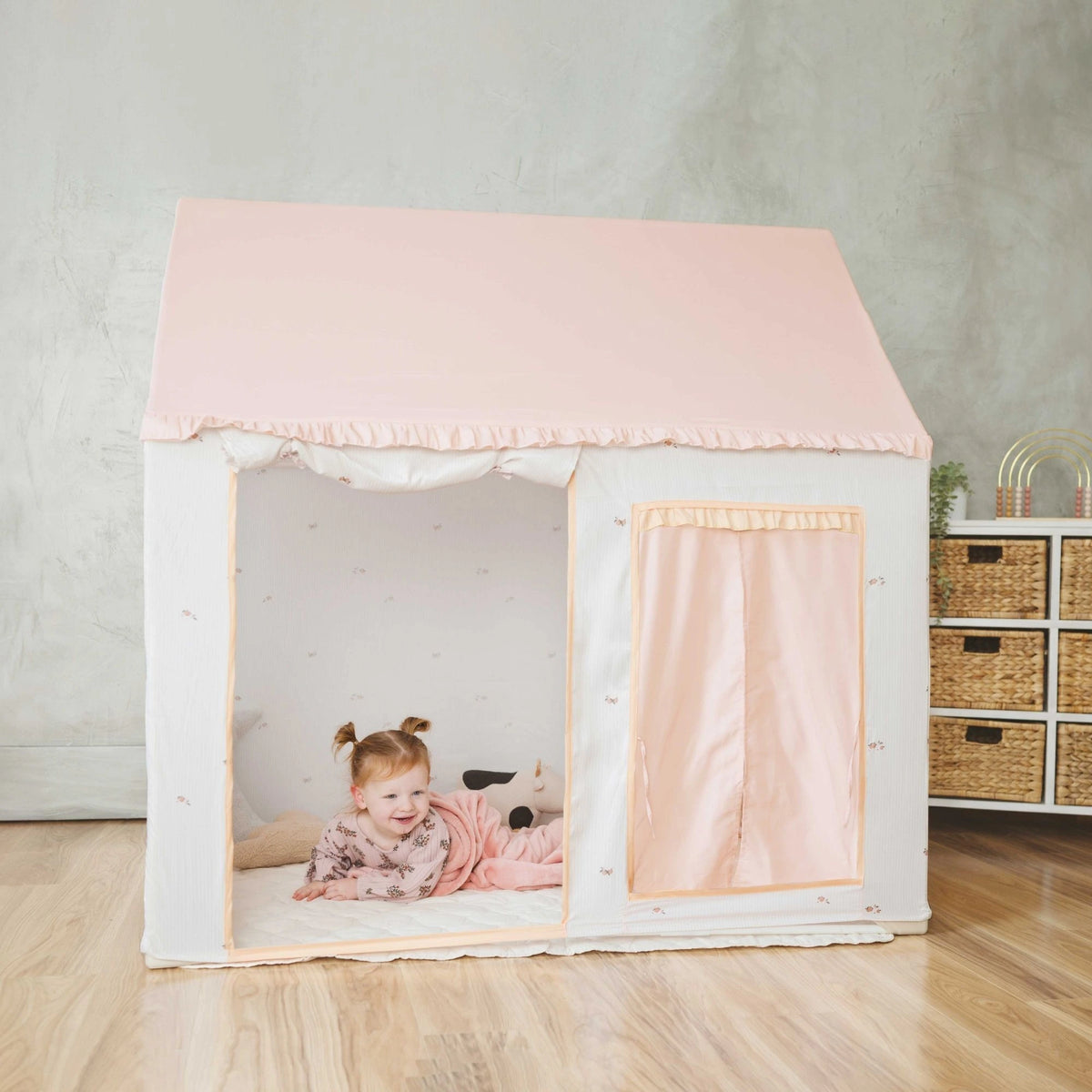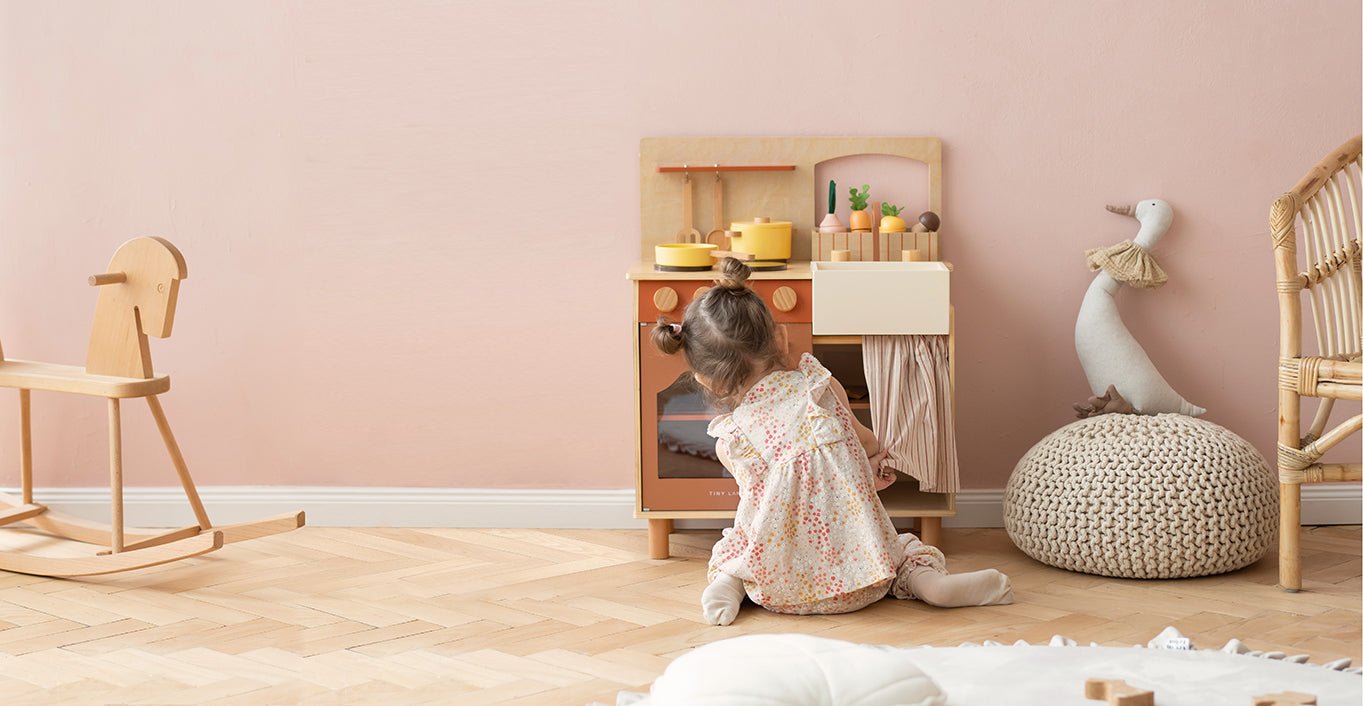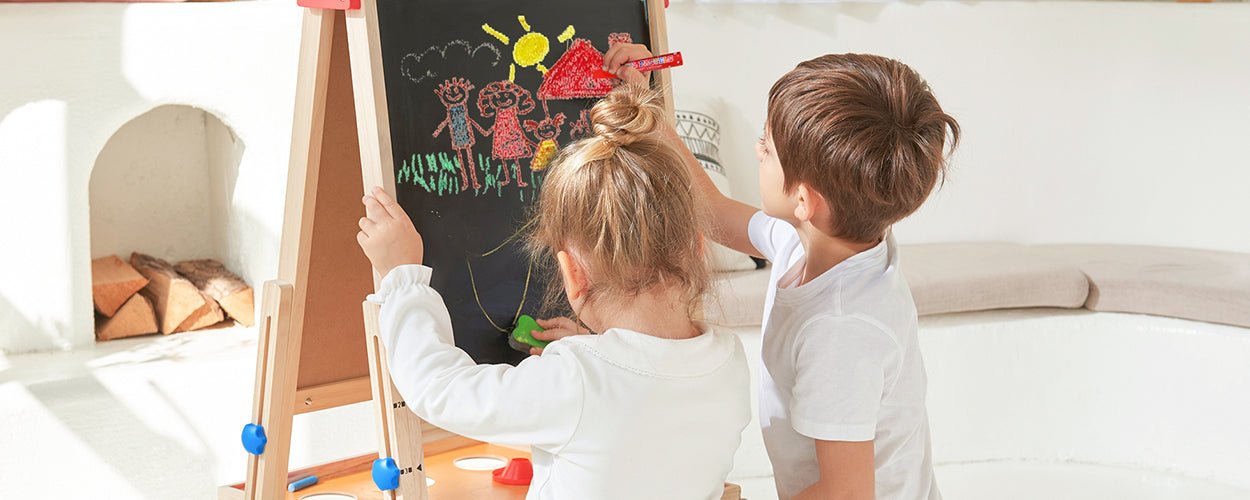Cooking and baking are important life skills that everyone should learn, and it's never too early to start teaching children. Children's kitchens are a great way to help and educate children about their childhood while also teaching them important life skills. In this blog, we'll explore the benefits of children's kitchens and introduce you to our product, the Luxury Play Kitchen from Tiny Land.
- Encourage Imaginative Play
Children's kitchens encourage imaginative play, allowing kids to pretend to be chefs, bakers, or even restaurant owners. This kind of play helps children develop their creativity and encourages them to think outside the box. They can also use their imagination to come up with new recipes and experiment with different ingredients.
- Develop Fine Motor Skills
Playing with children's kitchens can help develop fine motor skills. Children can practice using utensils, pouring, and measuring ingredients. They can also practice their hand-eye coordination by stirring, whisking, and chopping play food.
- Learn About Nutrition
By using pretend food and play utensils, children can learn about nutrition and healthy eating. Parents can use this opportunity to talk about different food groups, explain the importance of a balanced diet, and even show how certain foods can be prepared.
- Practice Math and Science Skills
Cooking and baking involve a lot of math and science, and children's kitchens can be a fun way to introduce these concepts. Kids can practice counting, measuring, and weighing ingredients. They can also observe how ingredients mix and react to each other during the cooking process.
- Promote Independence
Children's kitchens allow kids to take charge and be independent. They can make their own decisions about what to cook and how to prepare it. This kind of independence can boost their self-confidence and encourage them to take on more responsibility.
Introducing the Luxury Play Kitchen from Tiny Land
If you're looking for a high-quality children's kitchen, look no further than the Luxury Play Kitchen from Tiny Land. This play kitchen is made from durable and non-toxic materials, making it safe for children to play with. It comes with realistic features like a sink, stovetop, and oven, and plenty of storage space for play food and utensils. Plus, it's easy to assemble and has a sleek, modern design that will look great in any playroom.
In conclusion, children's kitchens can help and educate children in many ways. They encourage imaginative play, develop fine motor skills, teach nutrition, practice math and science, and promote independence. If you're looking for a high-quality children's kitchen, check out the Luxury Play Kitchen from Tiny Land. With this play kitchen, your child can start learning important life skills while having fun in their own play space.


